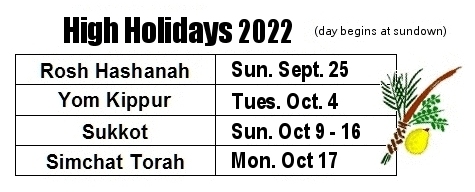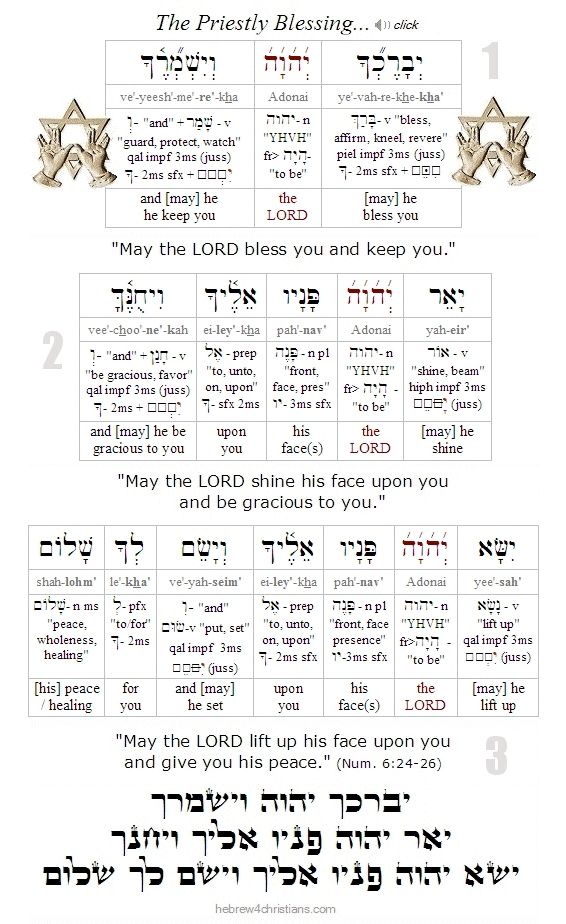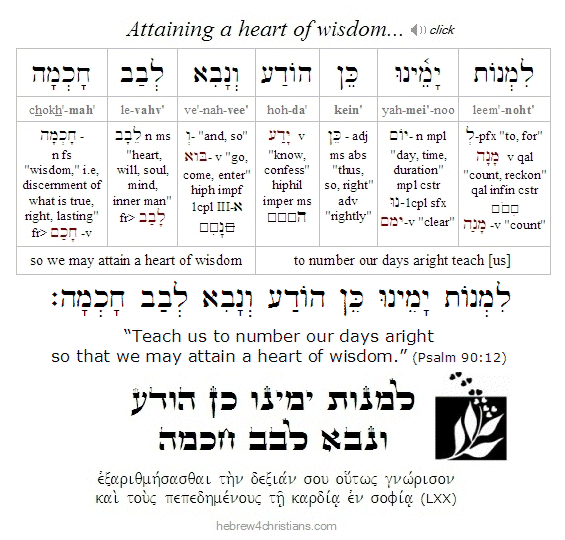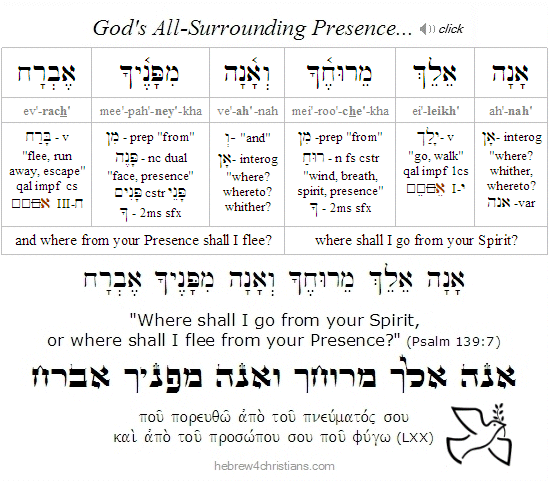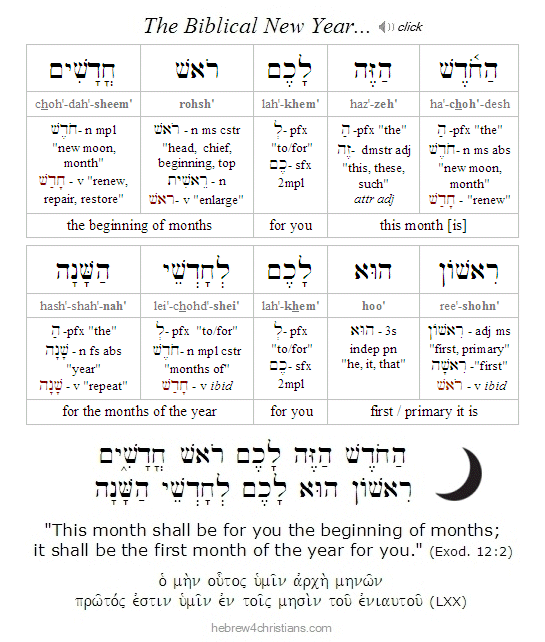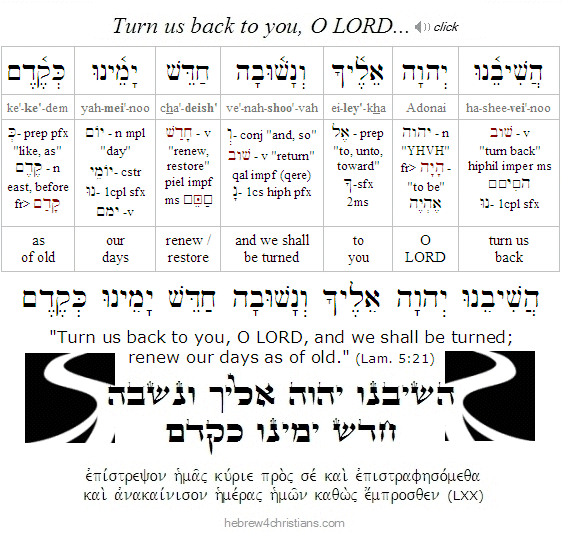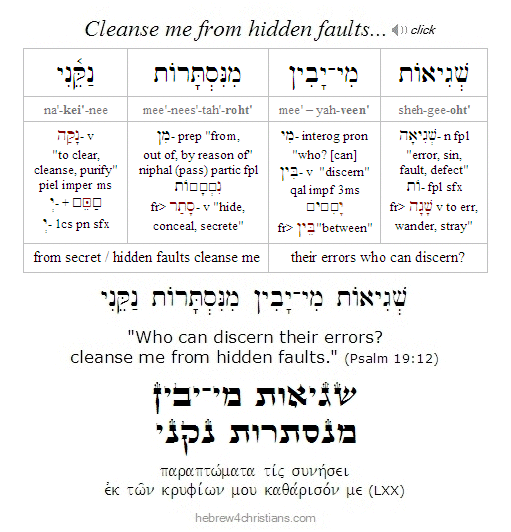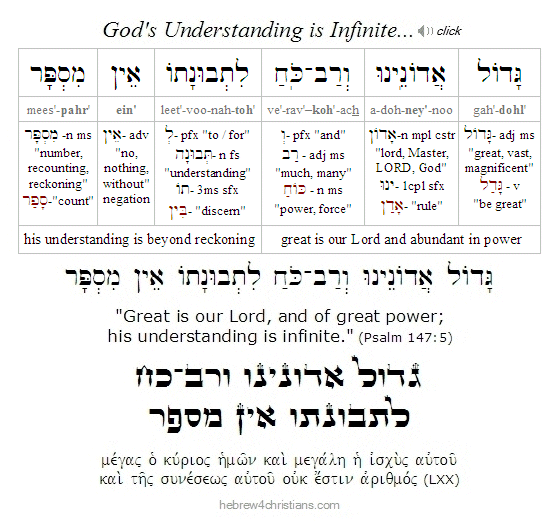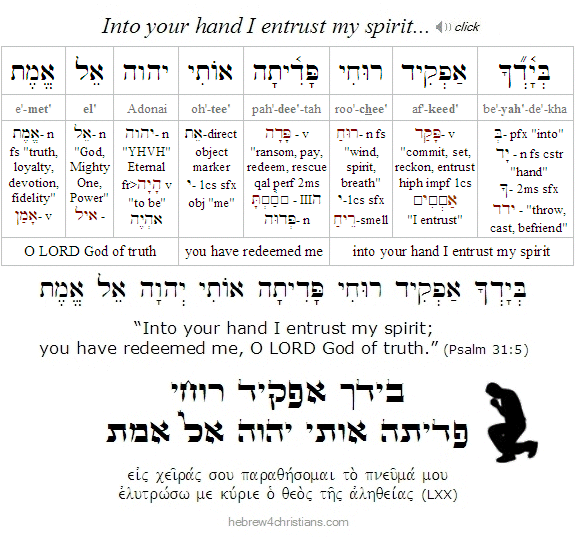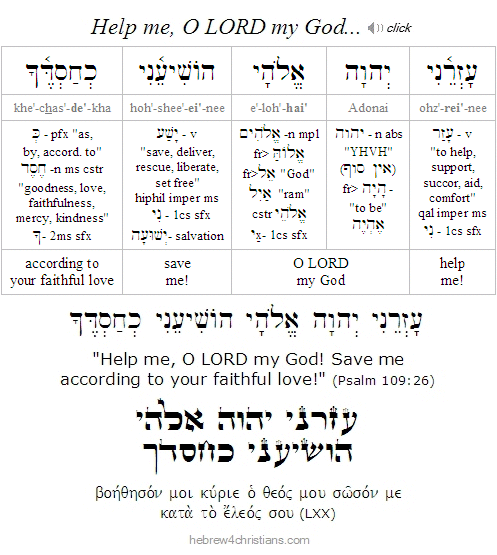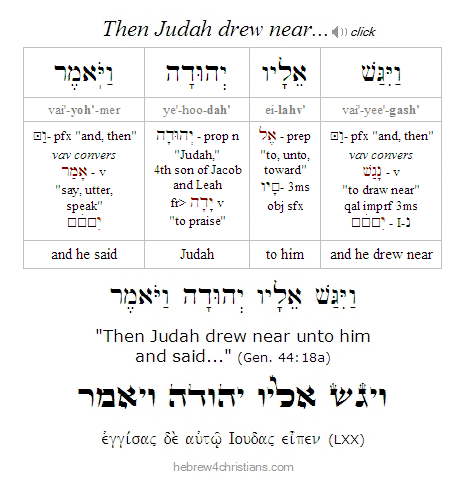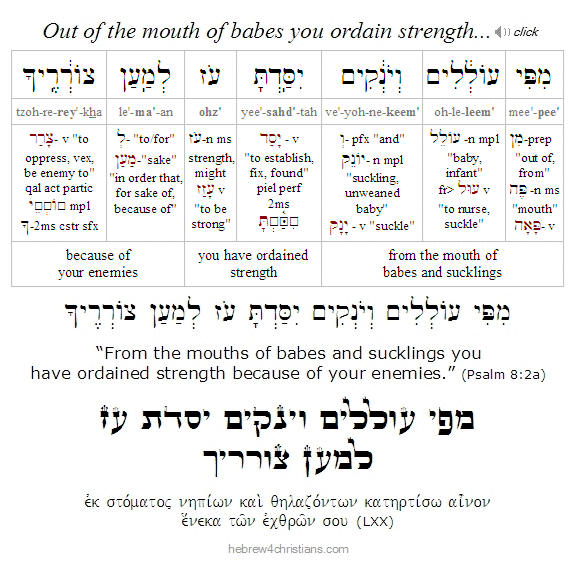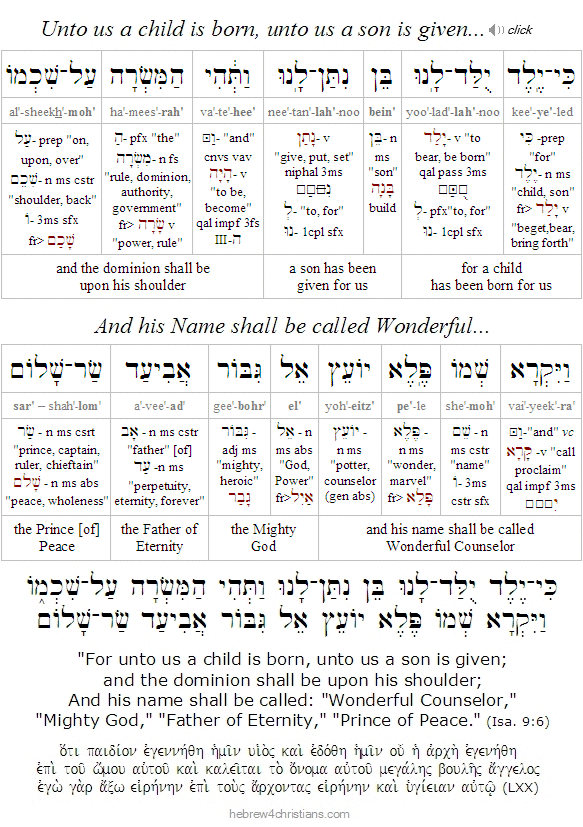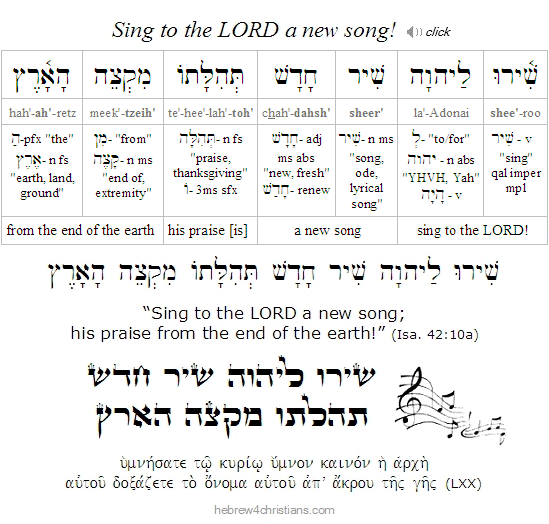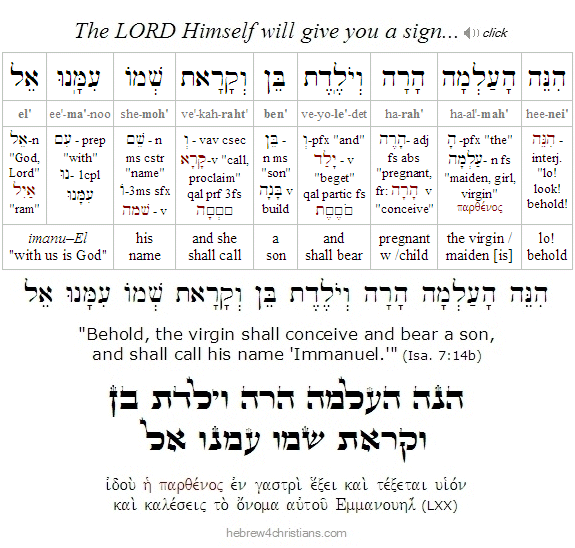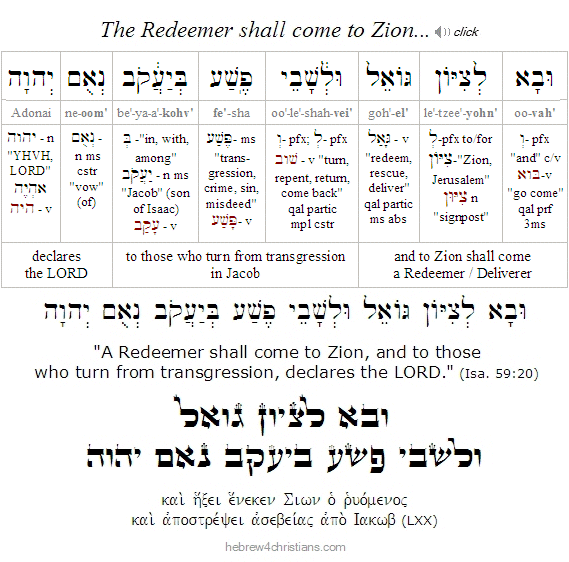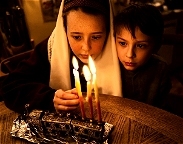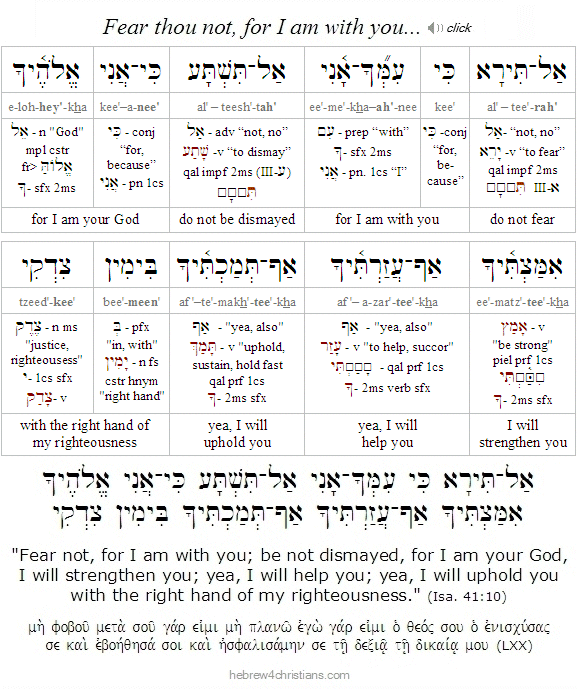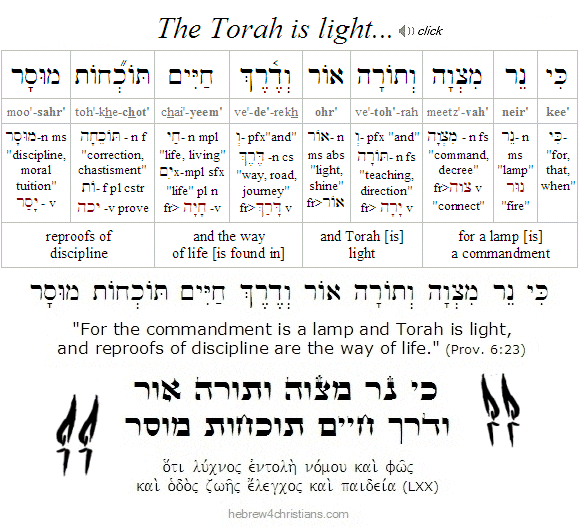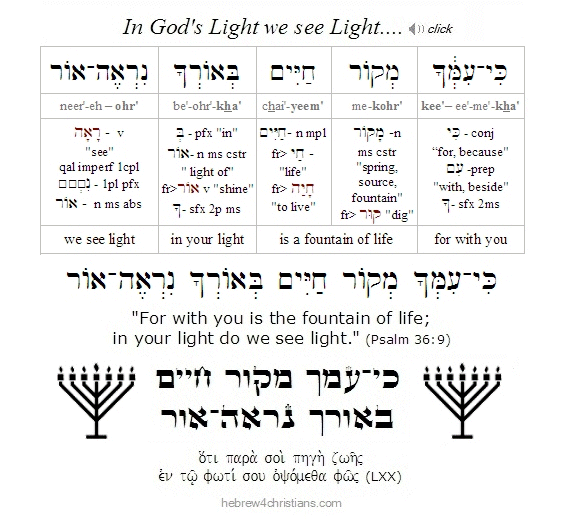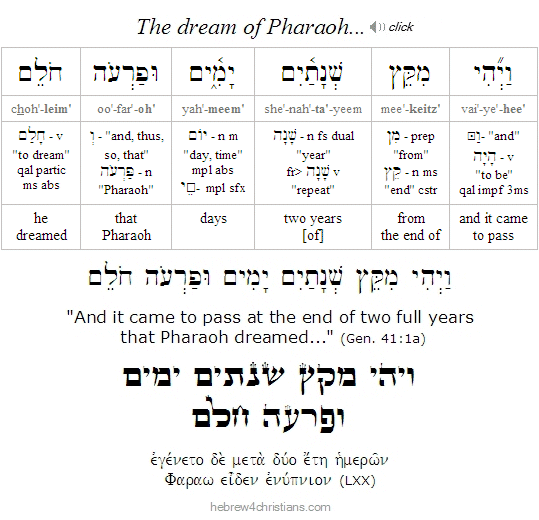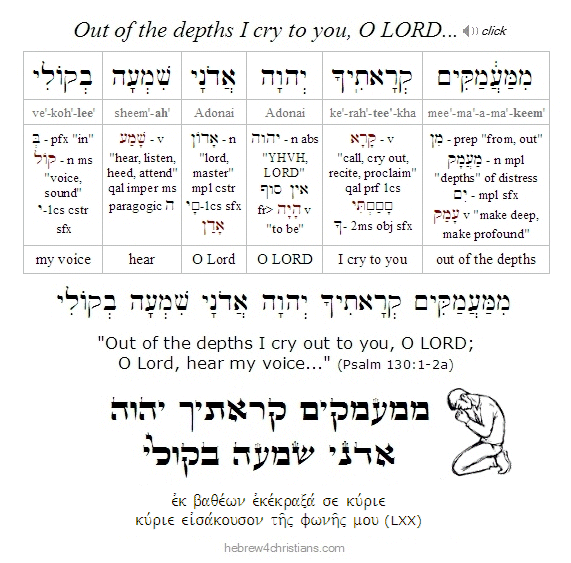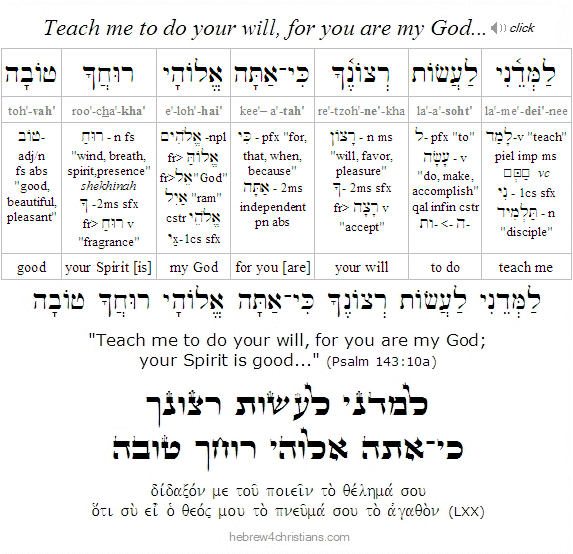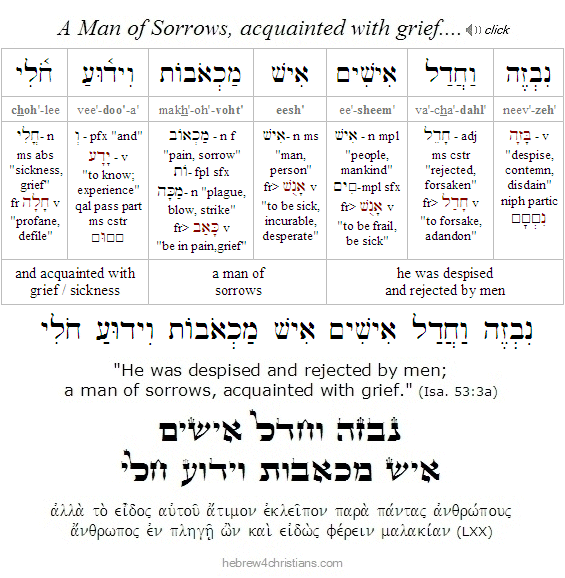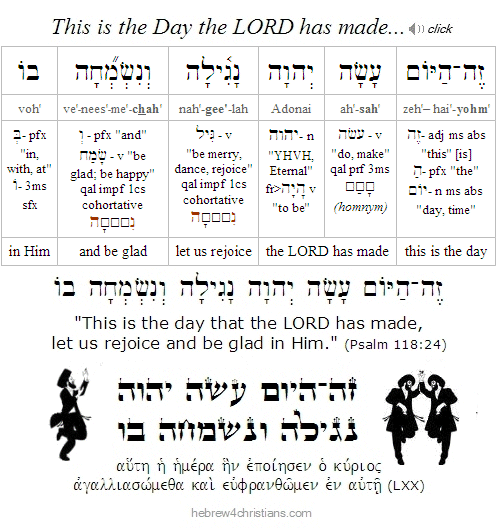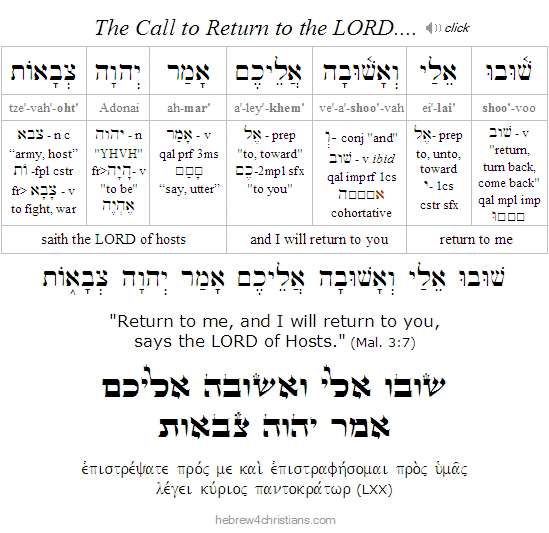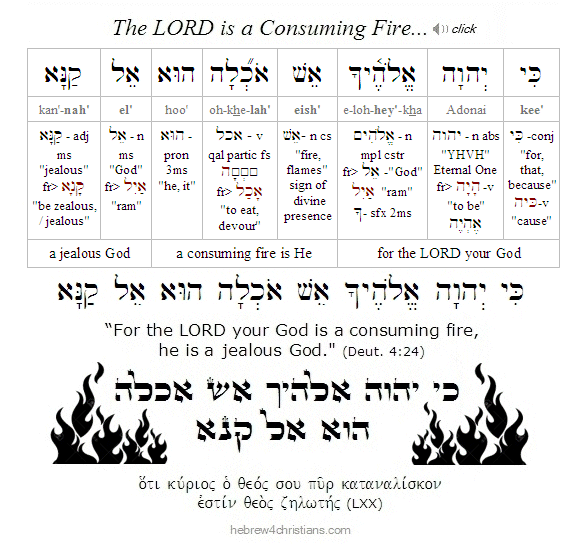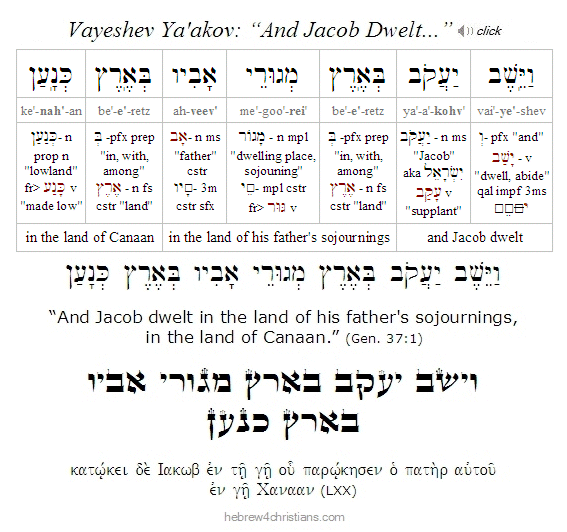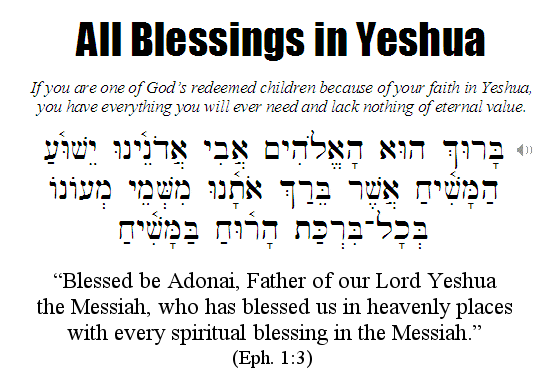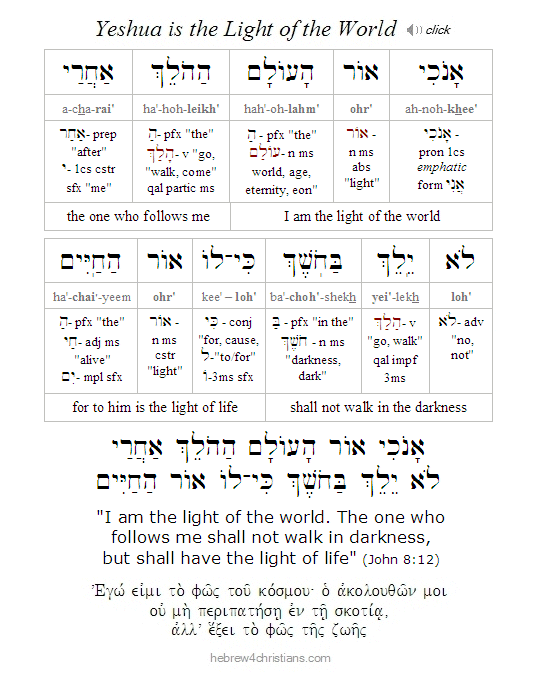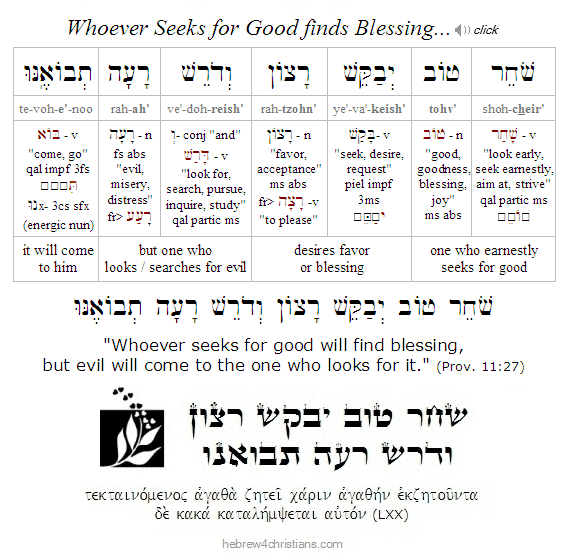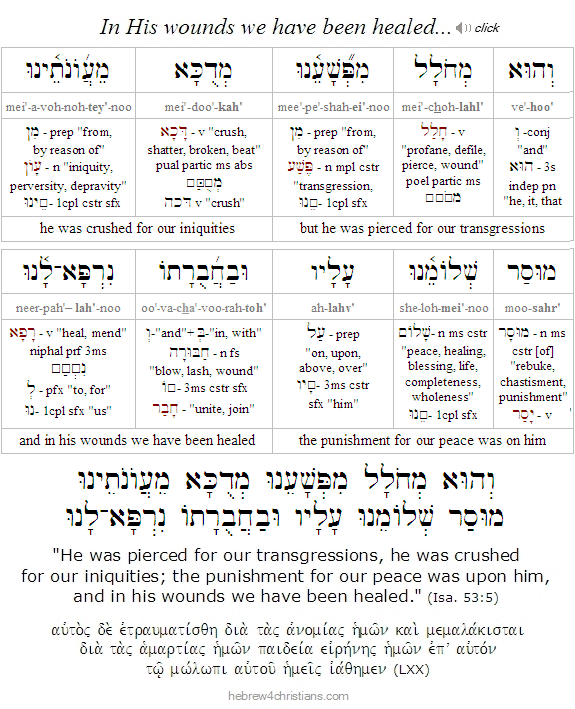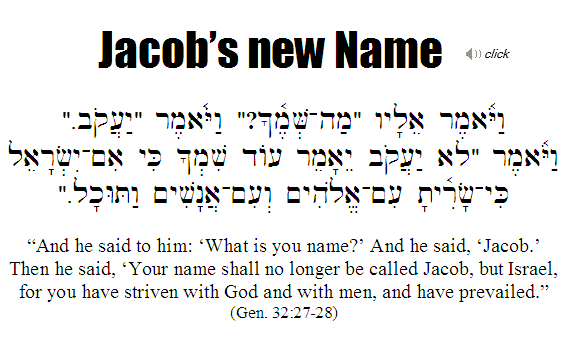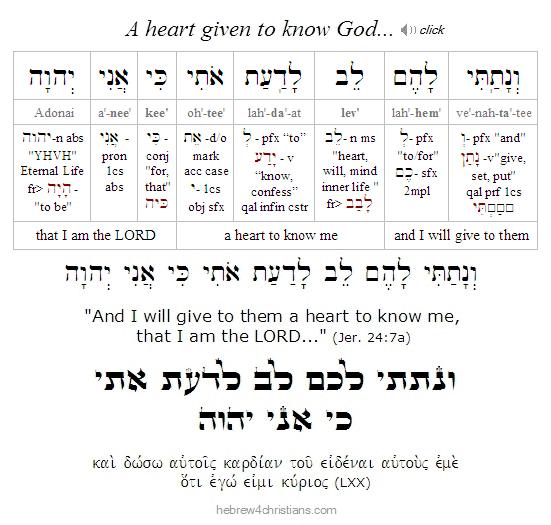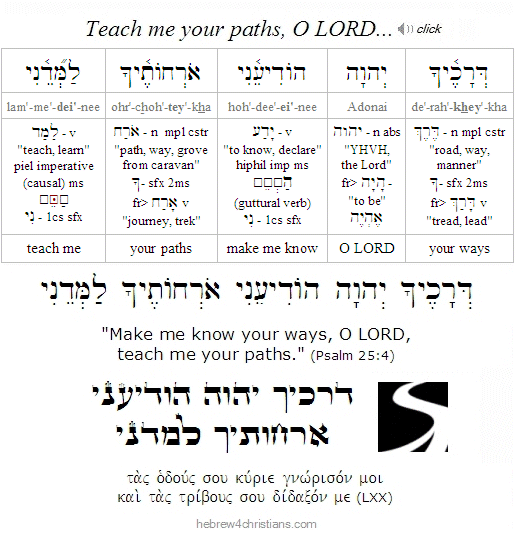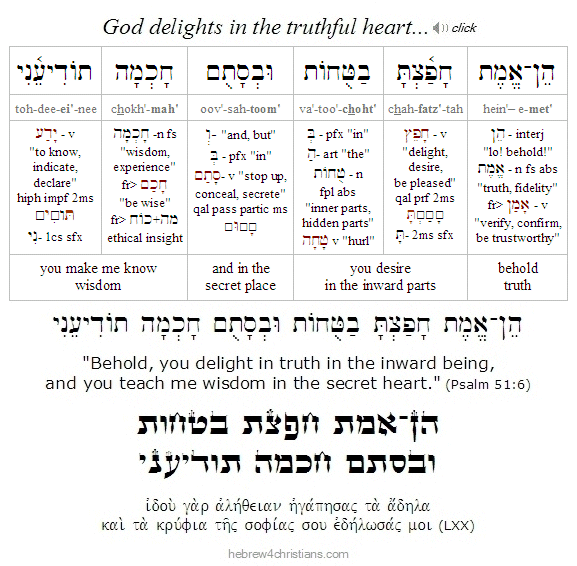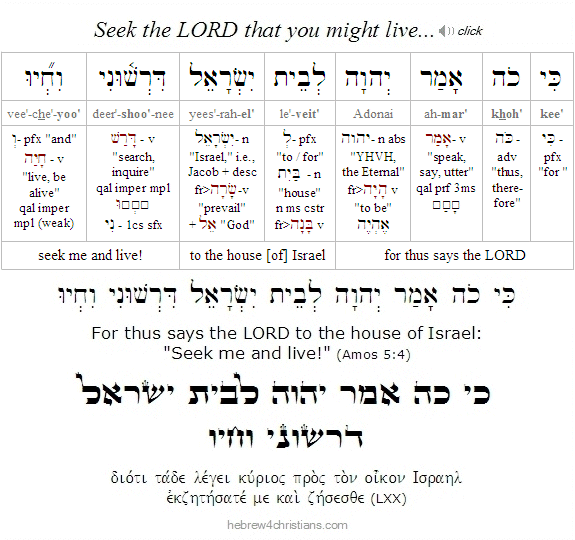|
Jewish Holiday Calendar
For December 2022 site updates, please scroll past this entry....
The Torah divides the calendar into two symmetrical halves: the Spring and the Fall, indicating the two advents of Messiah. The Biblical year officially begins during the month of the Passover from Egypt (called Rosh Chodashim, see Exod. 12:2), and the spring holidays of Passover, Unleavened Bread, and Firstfruits both recall our deliverance from Egypt and also our greater deliverance given by means of the death, burial, and resurrection of the Messiah, the great Passover Lamb of God. Yeshua was crucified on erev Pesach, buried during Unleavened Bread, and was resurrected on Yom Habikkurim (Firstfruits). The holiday of Shavuot (i.e., "Pentecost") both commemorates the revelation of the Torah at Sinai as well as the revelation of the Ruach HaKodesh (Holy Spirit) at Zion, in fulfillment of the promise given by our Lord....
The intermediate months of summer end with the advent of the sixth month of the calendar, called the month of Elul, which recalls the time Moses interceded on behalf of Israel after the sin of the Golden Calf. To commemorate this time of our history, we likewise focus on teshuvah (repentance) in anticipation of Rosh Hashanah and especially in anticipation of Yom Kippur, the great "Day of Atonement." In Jewish tradition the 30 days of Elul are combined with the first ten days of the seventh month (called the "Days of Awe") to set apart "Forty Days of Teshuvah" leading up to the Day of Forgiveness for Israel. Immediately following Yom Kippur, the mood changes as we begin preparing for a joyous week-long celebration called Sukkot (i.e., "Tabernacles") that concludes with the holiday of Simchat Torah.
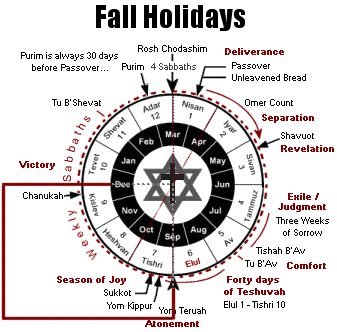 |
The Fall Holidays:

The fall festivals prophetically indicate the Day of the LORD, the second coming of Yeshua, the great national turning of the Jewish people, and the establishment of the reign of the Messiah upon the earth during the Millennial Kingdom in the world to come.
Note that in accordance with tradition, holiday dates begin at sundown. Moreover, some holidays may be postponed one day if they happen to fall on the weekly Sabbath:
1. Month of Elul (Fri. Aug. 26th [eve] - Sun. Sept. 25th [day])
2. Month of Tishri (Sun. Sept. 25th [eve] - Mon. Oct. 24th [day])
3. Month of Cheshvan (Mon. Oct. 24th [eve] - Wed. Nov. 23rd [day])
- Four Sabbaths: Noach, Lekh-Lekha, Vayera, Chayei Sarah
- Yom Ha'Aliyah - Honoring Israel's immigrants (Tues. Nov. 1st; Cheshvan 7)
- Sigd - 50th day after Yom Kippur; Ethiopian Jewish holiday (Tues. Nov. 22nd)
4. Month of Kislev (Wed. Nov. 23rd [eve] - Fri. Dec. 27th [day])
- Four Sabbaths: Toldot, Vayetzei, Vayishlach, Vayeshev
- Winter Solstice: Wed. Dec. 21st (Kislev 27)
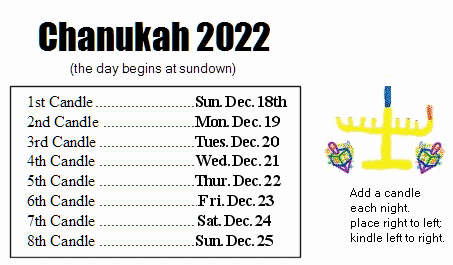
- Dates for Chanukah 2022 (5783):
- 1st Chanukah candle - Sun. Dec. 18th [i.e., Kislev 25]
- 2nd Chanukah candle - Mon. Dec. 19th [i.e., Kislev 26]
- 3rd Chanukah candle: Teus. Dec. 20th [i.e., Kislev 27]
- 4th Chanukah candle: Wed. Dec. 21st [i.e., Kislev 28]
- 5th Chanukah candle: Thurs. Dec. 22nd [i.e., Kislev 29]
5. Month of Tevet (Fri., Dec. 23rd [eve] - Sun. Jan. 26th [day])
- Four Sabbaths: Miketz, Vayigash, Vayechi, Shemot
- Dates for Chanukah (continued):
- 6th Chanukah candle: Fri. Dec. 23rd [i.e., Kislev 30]
- 7th Chanukah candle: Sat. Dec. 24th [i.e., Tevet 1]
- 8th Chanukah candle: Sun. Dec. 25th [Tevet 2] Zot Chanukah
- Christmas - Sat. Dec. 25th (Tevet 2, 5783)
- Asarah B'Tevet - Tues. Jan. 3rd (dawn), 2023; fast over the seige of Jerusalem
- Secular New Year: Sun. Jan. 1st, 2023 (Tevet 8, 5783)
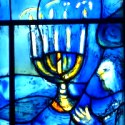 |
Note: For more about the dates of these holidays see the Calendar pages....
December 2022 Updates
Blessing for a New Year...

12.30.22 (Tevet 6, 5783) At the outset of the new civil year, let us recall the ancient priestly blessing, the great expression of hope and grace that transforms us into "name bearers" of God. The blessing of the LORD guards us from illusion, directing our hearts to focus on what matters most; His radiance changes us, revealing the miracle of grace. As God "lifts up his face," he discloses his Presence within all things, and imparts to us his healing peace. God's Name is "put upon" us so that we become vessels that carry redemptive love and healing to the world. We are endowed with divine energy to be made fruitful; we are empowered to serve God in the truth. The consciousness of our blessedness touches every moment, and we begin to see all of life as sanctified, sacred, full of wonder and meaning.
יְבָרֶכְךָ יְהוָה וְיִשְׁמְרֶךָ
יָאֵר יְהוָה פָּנָיו אֵלֶיךָ וִיחֻנֶּךָּ
יִשָּׂא יְהוָה פָּנָיו אֵלֶיךָ וְיָשֵׂם לְךָ שָׁלוֹם
ye·vah·re'·khe·kha' · Adonai · ve·yeesh'·me·re'·kha
ya·eir · Adonai · pah·nav · e·ley'·kha · vee·khoon·ne'·kah
yee·sah · Adonai · pah·nav · e·ley'·kha · ve·yah·seim · le·kha · shah·lohm

"May the LORD bless you and keep you;
May the LORD shine his face upon you and be gracious to you;
May the LORD lift up his face upon you and give you his peace."
(Num. 6:24-26)

Hebrew Study Card
Note that the text of this great "priestly blessing" (i.e., birkat kohanim) begins with three words, is comprised of three parts, invokes the divine Name three times, and is therefore quite appropriately called "the three-in-one blessing." Note further that each of the three phrases begins with the Hebrew letter Yod (י), suggesting the threefold hand of YHVH (יהוה) that touches you: the Father blesses you (יְבָרֶכְךָ); the Word of God shines upon you (יָאֵר), and the Spirit of God lifts you up and carries you in the way of life (יִשָּׂא). The threefold blessing is One, of course, just as Adonai echad: יְהוָה אֶחָד, the LORD is One (Deut. 6:4), and the essence of the blessing is to partake of healing and wholeness as expressed in the Hebrew word shalom (שָׁלוֹם). Amen. Without oseh shalom, without peace made within our hearts, any other blessings are only apparent and without substance...
Hebrew Lesson:
Numbers 6:24-26 reading (click):
Faith in God's Plan...
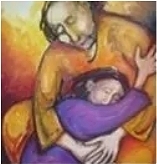
[ The following is related to our Torah reading for this week, parashat Vayigash... ]
12.30.22 (Tevet 6, 5783) After Joseph dramatically revealed his true identity to his brothers, he asked them to draw near to him and then reassured them saying: "Do not be distressed or angry with yourselves because you sold me here, for God sent me before you to preserve life to preserve for you a remnant on earth, and to keep alive for you many survivors. So it was not you who sent me here, but God" (Gen. 45:4-8). Here we see that Joseph was completely assured that everything that had happened to him up to this moment in time was by divine design, and that even his brothers' cruel betrayal was used by God to elevate him so that he would save many lives and to preserve the future of Israel.
The brothers still wrestled with the shame of their past, however, not fully realizing that Joseph's elaborate charade as a disguised Egyptian was designed to give them opportunity to confess their sin and find healing. Because Joseph was so confident in the providential plan of God, however, he bore no ill-will or grudge against his brothers. The sages note that after the burial of their father Jacob, however, the brothers were fearful that Joseph would finally seek retribution for what they had done to him, so they sent a fabricated message to him which said: "Your father gave this command before he died: 'Say to Joseph, "Please forgive the transgression of your brothers and their sin, because they did evil to you."' And now, please forgive the transgression of the servants of the God of your father'" (Gen. 50:16-17). Joseph wept when he heard this because he realized that his brothers did not believe in his love for them. He repeated that God had sent him there to save lives, and for that he was grateful.
In this connection it is interesting to wonder how Jacob might have reacted after he had discovered the truth that his sons had lied to him after they had maliciously sold his beloved firstborn son into slavery. Perhaps Jacob would have identified with the plight of Joseph because they had much in common. After all, Jacob, like Joseph, had experienced slavery through the betrayal and animosity of his brother Esau. He may also have reviewed his own complicity with his mother when he treacherously "stole" the blessing" from his brother... Perhaps he blamed himself for showing partiality to Joseph after the death of his chosen wife Rachel, too... And we wonder: Did Jacob recall the vision of the ladder that ascended to heaven with the LORD standing above, proclaiming his promise to give him the land, and that in his descendants, all the families of the earth would be blessed. and moreover that the LORD God would never leave nor forsake him? (Gen. 28:12-15). Did he remember wrestling with the Angel, agonizing in his struggle to surrender his life to God's care by holding him to his promise? (Gen. 32:24-28). And how did he understand his beloved Joseph after he realized that he had been alive all along? When he was released from Pharaoh's dungeon, surely he could have sent messengers to inquire of his father and to tell him that he was alive? The story is bittersweet throughout.
Though we are not told of Jacob's emotional reaction to all of this, we later read in the Torah that he blessed all of his sons, both Joseph (and his sons Ephraim and Manasseh) and his other sons, despite having grieved his heart for over 22 years because of their cowardice and duplicity. But like Joseph, Jacob believed that God had orchestrated the affairs of his life - both the good and the evil - according to His sovereign will. Jacob would affirm Joseph's words to his brothers: "It was not you who sent me here, but God," though he also would confess his struggles and suffering along the way: "Few and evil have been the days of my life" (מְעַט וְרָעִים הָיוּ יְמֵי שְׁנֵי חַיַּי) he had told the Pharoah (Gen. 45:8).
Despite the ambivalence he undoubtedly felt, Jacob did not question God's justice or impugn God's character, nor did he blame his sons for his heartache. Jacob's silence in the face of his grief teaches us how to endure by faith, even in the midst of our own fears, struggles, and losses along the way.
And there remains a blessing to impart to others, despite all the troubles that beset our way, too. Our wounds are wounds borne within a heart of faith that refuses to let go of hope and healing. We may have made a mess of our lives; we may have hurt others and betrayed the duty to love, but we do not give up, we do not let our fear be the last word, we do not consign ourselves to despair. We find our consolation in the promise of God. As the book of Job teaches, we receive both the evil and the good from God's hand while affirming his justice, so that even though we return to the dust, we will keep our hope in him (Job 13:15).
We suffer, and life hurts. Often we are afraid. And if suffering is part of God's overarching plan for creation, if it is part of the "divine idea," then how do we learn to emotionally accept it without becoming bitter? We earnestly desire the love and blessing of God, but we are shaken when terrible things happen. We are told not to be afraid, that we are not alone, but we often do feel afraid and alone in our suffering...
First we must find faith that God's decision to create us is for our blessedness rather than for evil, or minimally that it is better for us to have been created than never to have been born (Jer. 29:11). In that sense trusting God represents an affirmation of our life and its value. Whether this is the "best of all possible worlds" is an abstract question for speculative theology, but where we live, in the raw and messy struggles of life, in the midst of our joys and elations, but also in our darkness and pain, we need faith to believe that our existence has some meaning and purpose, that our lives carry some significance, and that not everything is hevel havalim, "vanity of vanities."
The late Frederick Buechner reminds the heart of faith: "The worst isn't the last thing about the world. It's the next to the last thing. The last thing is the best. It's the power from on high that comes down into the world, that wells up from the rock-bottom worst of the world like a hidden spring. Can you believe it? The last, best thing is the laughing deep in the hearts of the saints, sometimes our hearts even. Yes. You are terribly loved and forgiven. Yes. You are healed. All is well." Amen.
So never yield to despair, since that leads to further darkness and fear. Press on and keep fighting the "good fight" of faith (1 Tim. 6:12). Remember that you infinitely matter to heaven; your life has great value; you are significant and you are truly loved by our Heavenly Father. There is a "future and a hope" reserved for you; there is "a white stone, and on that stone will be written a new name that no one can understand except the one who receives it" (Rev. 2:17). May "the trial of your faith, being much more precious than of gold that perishes, though it be tested with fire, be found to result in praise and glory and honor at the revelation of Yeshua the Messiah" (1 Pet. 1:7).
Hebrew Lesson
Jeremiah 29:11 reading (click):
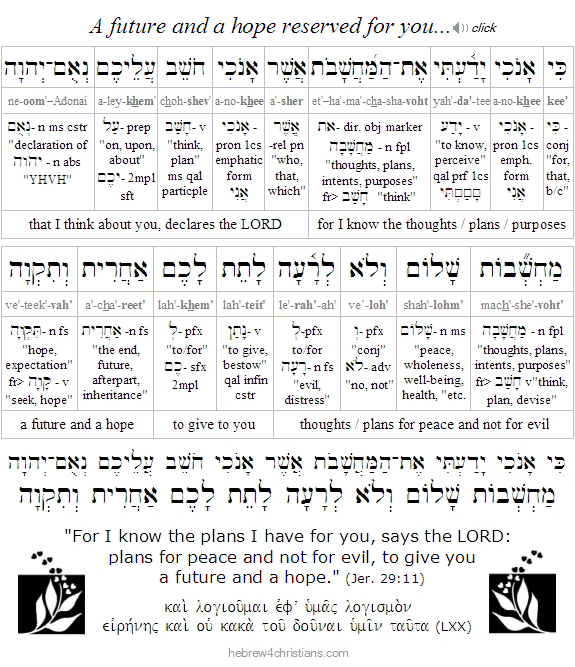 |
In Quietness and Confidence...

[ The following is related to our Torah reading for this week, parashat Vayigash... ]
12.30.22 (Tevet 6, 5783) From our Torah reading this week we read: "Then Judah approached him and said, 'If you please, my Lord, may your servant speak a word in my Lord's ear'" (Gen. 44:8). Abraham Twerski notes that Judah sought to speak privately and softly to the Egyptian vizier (i.e., disguised Joseph) to ensure that his intercession would be heard. "A soft voice can drown out a shout," and indeed truth is best expressed in quietness and confidence of the heart. Raising your voice in anger causes people to get defensive and to think about how to protect themselves. Anger is a giveaway that your argument is weak, but wisdom is expressed in peace (James 3:17), as it says: דִּבְרֵי חֲכָמִים בְּנַחַת נִשְׁמָעִים- "the words of the wise in quietness are heard" (Eccl. 9:17); and "a gentle reply will turn away wrath, but a harsh word will arouse anger" (Prov. 15:1).
Hebrew Lesson
Proverbs 15:1 reading (click):
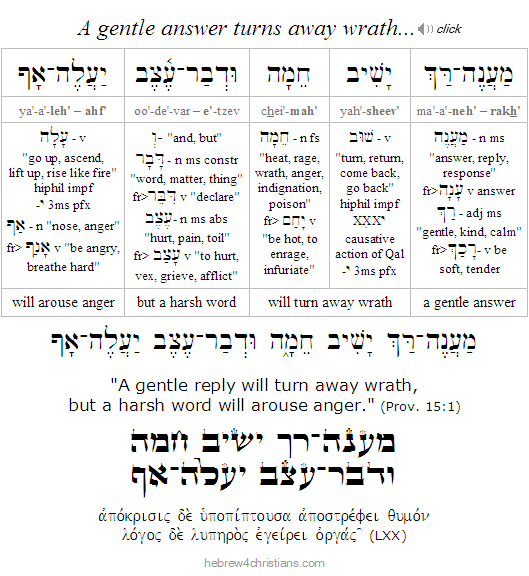 |
Trust in Dark Hours...
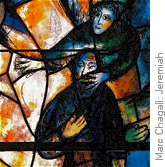
12.29.22 (Tevet 5, 5783) The Spirit of God encourages the downcast: "Let him who walks in darkness and has no light trust in the Name of the LORD (יִבְטַח בְּשֵׁם יְהוָה) and lean upon on his God" (Isa. 50:10). Spiritual darkness is permitted by God for his own sovereign purposes, perhaps as a means to teach us to abandon ourselves to his care. Trusting in God (i.e., bittachon - בִּטָּחוֹן) does not mean that we are obligated to affirm that this is "the best of all possible worlds," though it does mean we believe that eventually God will wipe away every tear and make all things right. Bittachon is a word for this world, which says, "Though he slay me, I will trust in him..." We do not need to trust for what is seen in this world but for an unseen good (Rom. 8:24). Those who call upon the LORD can trust not only in concealed good behind ambiguous appearances ("all things work together for good") but also in a future, real, substantive good that will one day be clearly manifest for us all... We fight the "good fight" of faith, which is a worthy struggle that eventually is realized for blessing. Meanwhile, we pray to God to be kept from such depth of sorrow that leads to sickness, darkness and despair.
מִי בָכֶם יְרֵא יְהוָה שׁמֵעַ בְּקוֹל עַבְדּוֹ
אֲשֶׁר הָלַךְ חֲשֵׁכִים וְאֵין נגַהּ לוֹ
יִבְטַח בְּשֵׁם יְהוָה וְיִשָּׁעֵן בֵּאלהָיו
mee · vah·khem · ye·rei · Adonai · shoh·mei'·a · be·kohl · av·doh?
a·sher · hah·lakh · cha·shei·kheem · ve·ein · noh'·gah · loh?
yeev·tach · be·shem · Adonai · ve·yee·shah·ein · be·loh·hahv

"Who among you fears the LORD and obeys the voice of his Servant?
Let him who walks in darkness and has no light
trust in the Name of the LORD and lean upon on his God."
(Isa. 50:10)
Hebrew Study Card

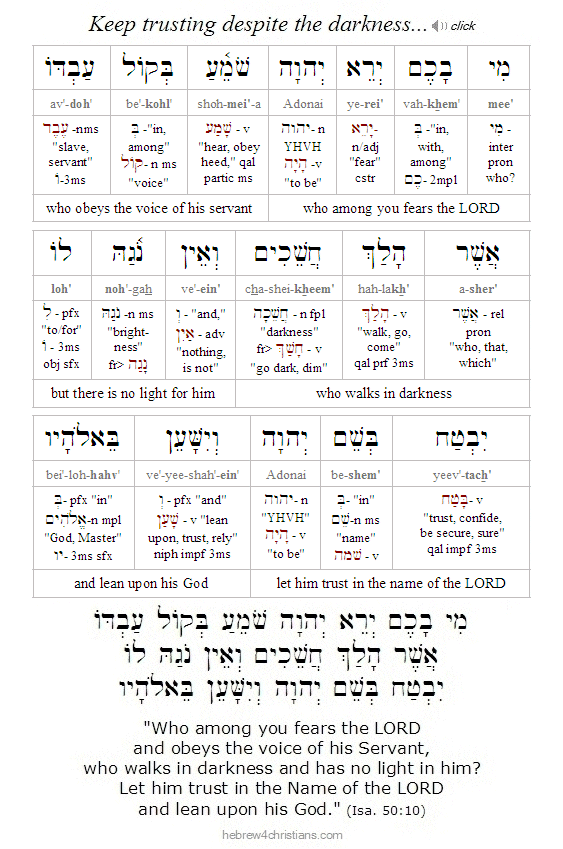
If you ask for bread, your heavenly Father will not give you a stone... Only God can deliver us from our "disordered loves" to take hold of what is truly essential. All we can do is ask, and keep on asking - even as we struggle on, despite ourselves, despite our losses... And we often revisit our sins over and over until we become "sick of our sickness," that is, until we begin to understand what our heart really needs. It's as if we are constantly being asked, "Is this what you want?" and our choices confess the truth... Only God does the miracle of real change within the human heart - only God can give life from the dead!
Wisdom for a New Year...

[ "Man is like to vanity: his days are as a shadow that passeth away." - Psalm 144:4]
12.29.22 (Tevet 5, 5783) It is tragic that so many people go about their lives as if God doesn't exist... Instead of soberly acknowledging that their days are numbered in this world, they subconsciously assume they will live forever, and they steadfastly ignore any idea of judgment to come. Yeshua warned us, however, that "nothing is hidden except to be made manifest; nor is anything secret except to come to light" (Mark 4:22). We should tremble before such words. Each of us will give account for what we have done with the time given us (Heb. 9:27; 2 Cor. 5:10; Matt. 12:36).
Moses therefore prayed to God: "Teach us to number our days, that we may apply our hearts unto wisdom" (Psalm 90:12). Each soul is given a finite amount of time in this world, and therefore Moses asked God to teach us how to live in light of our ultimate end... For this we need wisdom, which primarily consists of knowledge of the holy (דַעַת קְדשִׁים) and the experience of the awe of the LORD (יִרְאַת יְהוָה, Prov. 9:10). Note then the connection between learning to "number our days" and apprehending the sacredness of life. As we learn to esteem our days, so we discover wisdom for our sojourn to eternity. Reflecting on the brevity of life awakens us to consciously reflect upon the course of our lives and to distill the ultimate concerns of our hearts.
Hebrew Lesson:
Psalm 90:12 Hebrew reading (click):
Consider, then, the "measure of your days..." Your life in this world will end far sooner than you expect, and then what will become of you? I am not here thinking of the end of "the" world, but rather the end of your world - when you will die and face the light of eternity. Today, this moment, you are on the way, going someplace; your "latter days" are already come upon you... If you are not prepared today, how will you be better prepared tomorrow? Today is the day of salvation, the hour that matters most. Learn to die to the world now, to let go of what presently holds you captive, so that you are free to meet that which forever shall come. Don't put off genuine teshuvah: turn while there is still time. As Jim Elliot once said: "He is no fool who gives what he cannot keep, to gain what he cannot lose." And may God give us mercy to say from the heart: "For me to live is Messiah, and to die is gain" (Phil. 1:21).
Yet how many of us take all this to heart? How many of us "number our days" that we might attain wisdom? Do we appreciate the brief amount of time we are given in this life? When we are young we believe we will live forever. King David prayed, "make me know my end and what is the measure of my days; let me know how fleeting I am!" (Psalm 39:4).
Surrendering to God's Care...

[ "When the prophet Elijah performed miracles, we are told the people proclaimed: יְהוָה הוּא הָאֱלֹהִים, "the LORD is God!" But nowadays people become infatuated with miracle workers and entirely forget to say: "the LORD is God!" - R' Baruch of Medziboz ]
12.29.22 (Tevet 5, 5783) "Dear God, grant me the serenity to accept what I cannot change - including the insanity of this world, the corruption of godless politicians, the prevalence of sickness and death, the welfare of my family and friends, and so on. O precious Lord, grant me the faith I need to know your sovereign care, and to firmly believe that "all is well and all manner of thing shall be well." Amen.
So much of what happens in this world humbles us and reminds us of our powerlessness and frailty... Getting sick, for example, is a humbling venture, a "kenosis" of sorts -- wherein our flesh, which dies hard, and our inherent pride that vainly seeks to control outcomes, is emptied from us and we are rendered helpless. It is then that God's promise to be our strength in our weakness can be heard, though receiving that is a transaction of the heart that has its good days of faith and bad days of lament and questioning...
I refuse to be anxious over matters that lay completely outside of my control, such as whether some virus (man-made or otherwise) may sicken or even kill me. As a believer in the LORD, I understand that my life is not my own, and I willingly surrender it to His good will and care. I will die exactly when God says I will die, and not a moment sooner or later. "For whether we live, we live unto the Lord; and whether we die, we die unto the Lord: whether we live therefore, or die, we are the Lord's" (Rom. 14:8). Amen.
Hebrew Lesson
Psalm 23:4a reading (click):
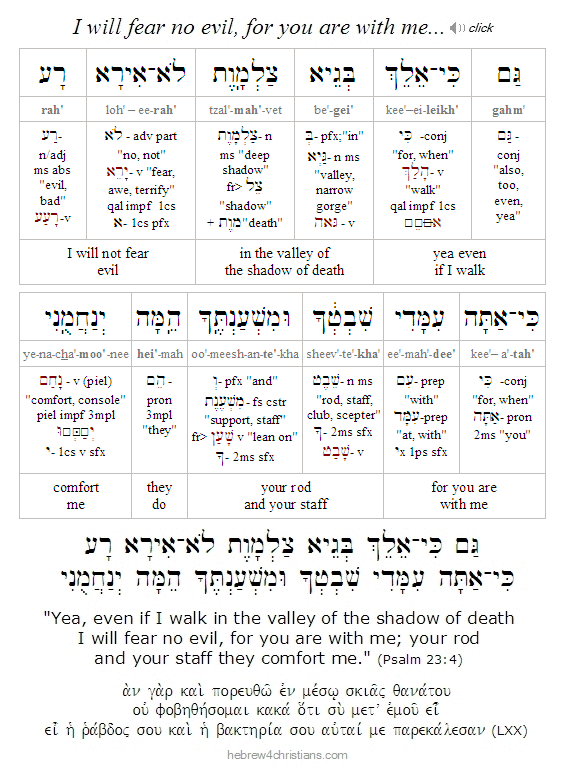 |
The Providential Prince...

12.28.22 (Tevet 4, 5783) Though Joseph was given great wisdom to interpret Pharaoh's dreams and to serve as Egypt's regent, his foresight did not prevent the famine from coming in the first place, and the testing that came was part of God's hidden plan. The role of the true prophet is to bear witness to God's truth and to shepherd God's people through the unfolding vision. Joseph could not control the outcome, though he worked within the context of revelation to bring about deliverance. In both the "fat times and the lean" we look to God for comfort and strength: We "show up" every day to ready ourselves for what is coming, even if we currently find ourselves in darkness. We refuse fear because we trust that the LORD our God is guiding our way...
The term hashgachah pratit (הַשְׁגָּחָה פְּרָטִית) refers to God's personal supervision of our lives (hashgachah means "supervision," and pratit means "individual" or "particular"). Since He is the Master of the Universe, God's supervision and providence reaches to the smallest of details of creation - from subatomic particles to the great motions of the cosmos. God not only calls each star by its own name (Psalm 147:4), but knows each particular wildflower and sparrow (Matt. 6:28-30, 10:29). Each person created in the likeness of God is therefore under the direct, personal supervision of God Himself -- whether that soul is conscious of that fact or not. As Yeshua said, even the hairs on your head are all numbered (Matt. 10:30). The God of Israel is also called אלהֵי הָרוּחת לְכָל־בָּשָׂר / Elohei ha-ruchot lekhol-basar: "The God of the spirits of all flesh" (Num. 16:22), and that means that he has providential purposes for every human being brought into this world (John 1:4).
Hebrew Lesson
Psalm 139:7 reading (click):
About the Secular New Year...

12.28.22 (Tevet 4, 5783) In most countries of the world, "New Year's Day" is usually celebrated as a "revelry" on January 1st, though this date comes from the arbitrary decree of the consuls of ancient (and pagan) Rome -- certainly not from anything taught in the Torah and the Hebrew Scriptures. Nevertheless, some Christian churches plan their own celebrations, offering a religious service to make resolutions and to offer up special prayers. (and because it falls eight days after December 25th, some liturgical church tradtions observe this date as the "Festival of Christ's Circumcision.") Some of these churches plan "midnight" communion services so that the sacraments could be taken just before the start of the "new year." Now while all this might be encouraging and helpful on some level, it needs to be stressed that the civil New Year that the world celebrates is not a Biblical holiday at all, and in fact is contrary to the Biblical Calendar that was revealed in the Torah and Scriptures.
As I have mentioned over the years, according to Torah there are two mirroring "New Years" observed during the year. The first occurs two weeks before Passover (Nisan 1) and the second occurs ten days before Yom Kippur (Tishri 1). The first is called Rosh Chodashim (see Exod. 12:2), which commemorates the month of the redemption of the Jewish people (i.e., the month Yeshua was sacrificed for our sins), whereas the second is called Yom Teru'ah that is associated with the "Feast of Ingathering" at the "end of the year" (Exod. 23:16, 34:22). Later Yom Terua'h became known as Rosh Hashanah ("the head of the year") which began a ten-day "trial" of humanity climaxing on the Day of Atonement (Yom Kippur).
The two "new years" of the Jewish calendar mirror each other and reveal the two advents of Messiah. For more information about the secular New Year and its relationship to the calendar of Torah, see the H4C article:
Hebrew Lesson:
Exodus 12:2 Hebrew reading lesson (click):
Note about "Hyperreality"
"Hyperreality" is a term used to refer to the impairment of mind, conditioned by postmodern culture, to sometimes fail to distinguish between what is real and what is "virtually real." This has led to various techniques of "mass media" that invent a sort of "Disney world" effect in which people "enter into" illusory social constructs and passively regard them as realities. Such "fake depictions" create illusions that cater to people's fears, desires, and imaginations. It is the "technological mediation" of experience, and it is commonplace today, so commonplace, in fact, that it is the manufactured interpretation of what is "real."
Some examples of hyperrealities include: mass media "news"; the Internet; "reality TV"; TikTok; advertising of all kinds; fake "science," Facebook "friends," sexual "identity," HDR photography; faux antiques; pornography; Disney World; the music industry; fast "food," professional sports; fiat currency; and "Neo's noodles" (from the Matrix), among others...
Turning to a New Year...

12.28.22 (Tevet 4, 5783) The Book of Lamentations is an acrostic (i.e., alphabetical) poem that begins with the Hebrew letter Aleph (א) in the word "eichah" (אֵיכָה), which also marks the Hebrew name of the book. "How (eichah) lonely sits the city that once was full of people!" (Lam. 1:1). The sages note that this word "how" (i.e., eichah) could also be read as "where are you?" (i.e., ayeka: אַיֶּכָּה), God's first word spoken to Adam after he broke covenant in the Garden (Gen. 3:9).
Note that God's question is often our own: "Where are you? Where are you, God? Are you here, in the midst of this tedious moment? Do you know my loneliness, my ache for love? Do you understand the troubles of my heart?" And yet how many people have faith that God's call is one of comfort and restoration? God uses our loneliness ("how lonely...") to search our hearts, asking each of us, ayeka – "Where are you?" Return to Me. "Why have you turned away from me and chosen a state of exile?" Our haunting sense of God's absence impels us to seek for him... God awaits our only possible response, "Hashivenu!" -- an imperative (urgent appeal) for the grace to repent: "Turn us back to yourself, O LORD, so that we may return to you; renew our days as of old" (Lam. 5:21).
Hebrew Lesson
Lamentations 5:21 Hebrew reading (click):
Our response to the questioning love of the LORD is called teshuvah ("turning [shuv] to God"). Teshuvah is an "answer" to a shelah, or a question. God's love for us is the question, and our teshuvah – our turning of the heart toward Him – is the answer. As Jeremiah confessed in the hour of great trouble: "I called upon thy name, O LORD, from the depths of the pit; Thou hast heard my voice: hide not thine ear at my breathing, at my cry. Thou drewest near in the day that I called upon thee: thou saidst, Fear not" (Lam. 3:55-57).
Healing from hidden faults...
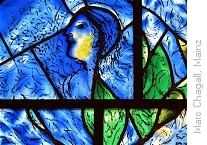
[ "We know that if God should put to the test our faithfulness to him, we know well that at the moment of testing, he himself must hold on to us, that is, we know that at bottom we are unfaithful, and that every instant it is he who at bottom holds us." - Kierkegaard ]
12.28.22 (Tevet 4, 5783) All of us have unhealed parts, "hidden faults" (נסתרות) of which we are not fully aware. Therefore king David prayed, "Who can discern his errors? cleanse me from secret faults" (Psalm 19:12). We are cleansed by confession, that is, by looking within our hearts to uncover deeper motivations... If we are honest with ourselves we may discover, for example, that we are angry or fearful people, despite how we otherwise wish to regard ourselves. If you find yourself unable to let something go, for instance, some pain or failure of the past, remind yourself that you must do so if you want to move on with your life. Focusing on how things could have been different is to be enslaved to the past. The goal of teshuvah (repentance) is to turn us back to God for life, but to do this, we must be willing to let go of what makes us sick.
Note that the Hebrew word translated "errors" (i.e., שְׁגִיאוֹת) comes from a root word (שָׁגָה) that means to wander, stray, or transgress. The question raised by David is rhetorical: "Who can discern his errors?" No one – apart from divine intervention... David asked to be cleansed from his "secret faults," which are not those that were performed by him "in secret," but rather those that were unknown, unseen, and unconscious to his own sense of awareness. These are "mindless" sins, unthinking offenses, hidden dispositions, character defects and actions that a person unwittingly performs, perhaps because of deep forces of which he was oblivious. These are the "secret sins" set in the light of God's face (Psalm 90:8); the "sluggish darkness" of the human heart that leads to death and ruin: "The heart is deceitful above all things, and incurably sick; who can understand it?" (Jer. 17:9). How many of us, after all, are fully aware of what we are doing when we are doing something? How many of us are completely transparent both to ourselves and before God, with no unclear motives, etc.? We must always be vigilant... There is always the force of habit, or the subconscious desires or conflicts of the inner life, that work on us, not to mention the trauma of our past and the present devices from the enemy of our souls. May the LORD give us the willingness to be healed, even if there are parts of ourselves that seem to resist that healing. Amen.
Hebrew Lesson:
Psalm 19:12 Hebrew reading:
Mystery and Humility...

[ "God has chosen the foolish things of the world to shame the wise, and God has chosen the weak things of the world to shame the things which are mighty, and the base things of the world and the things which are despised God has chosen, and the things which are not, to bring to nothing the things that are, so that no flesh should glory in His presence." - 1 Cor. 1:27-29 ]
12.27.22 (Tevet 3, 5783) Though it is important to guard our sincere convictions and to be passionate about what we believe, we must nevertheless be careful to walk in humility before the mystery of life... After all, much is inscrutable to us, much is beyond our understanding, and therefore, if we are honest, we should be reverent before the "sacred secrecy" of everything. Fanaticism and intolerance (whether secular or religious) is motivated by willful ignorance of the marvelous complexities that pervade existence. The fanatic invariably seeks to reduce life to a simple formula, recipe, and a generalization. The humble person, on the other hand, freely confesses that they "walk by faith, not by sight" -- by hearing the Word of God and heeding what the Spirit of God is saying to the heart...
For now we "see through a glass darkly," which literally means "in an enigma" (ἐν αἰνίγματι). An enigma (or riddle) is an analogy given through some resemblance to the truth, though quite often the correspondences are puzzling and obscure. Hence, "seeing through a glass darkly" means perceiving obscurely or imperfectly, looking "through" something else instead of directly apprehending reality. We see only a reflection of reality, and our knowledge in this life is indirect and imperfect. This is contrasted with the "face to face" (פָּנִים אֶל־פָּנִים) vision and clarity given in the world to come, when our knowledge will be clear and distinct, and the truth of God will be fully manifest and no longer hidden. Being "face to face" with reality means being free of the riddles, the analogies, the semblances, etc., which at best adumbrate our way..
Such reflection should make us humble whenever we share our faith. "Now we know in part, but then shall we know in whole" (1 Cor. 13:12). Let therefore repeat that an honest theology must find a place for mystery, for "seeing through a glass darkly," and for the apprehension of awe and wonder.
"There was a time when I had all the answers. My real growth began when I discovered that the questions to which I had the answers were not the important questions.... A genuine faith must recognize the fact that it is through a dark glass we see; though by faith we do penetrate sufficiently to the heart of the mystery so as not to be overwhelmed by it. A genuine faith resolves the mystery of life by the mystery of God. It recognizes that no aspect of life or existence explains itself, even after all known causes and consequences have been traced. All known existence points beyond itself. To realize that it points beyond itself to God is to assert that the mystery of life does not dissolve life into meaninglessness...." (Reinhold Niebuhr)
Since the LORD God is called the Infinite One (אֵין סוֹף) whose understanding is without limit (Psalm 147:5), we must use analogies, metaphors, symbols, allusions, parables, poetry, and other linguistic devices (as well art and music) to convey spiritual truth and meaning. We compare (συγκρίνω) spiritual things with spiritual (1 Cor. 2:13). Some of the classical "mystics" have said the way to God is through the transcendence of words altogether, though most of them use imagery and poetry to speak about "ineffable" reality. Others, like Soren Kierkegaard, use "indirect communication" to evoke the decision to believe, to find hope, and to walk by faith. The truth can be found, not by means of humanistic learning, but by special revelation and encounter with the Truth of God.
Hebrew Lesson
Psalm 147:5 Hebrew reading:
For more on this topic, see "Mystery and Humility: Living in the Divine Connection."
The Good Eye of Faith...

[ The following is related to this week's Torah reading, Parashat Vayigash... ]
12.26.22 (Tevet 2, 5783) Among other things, the story of Joseph reveals how God's hidden hand moves for good in our lives. Despite the terrible betrayal of the pit, the unjust suffering of the prison house, and the sorrow of losing his family, there was light, exaltation, and joy to come forth. God knows how to take our emptiness to yield "storehouses in Egypt..." As Joseph later told his brothers, "you meant evil against me, but God meant it for good" (Gen. 50:20). Resist the temptation to judge by mere appearances. Forbid your sorrow to blind the eyes of faith. Do not unjustly judge God's purposes or try to understand His ways; accept that He works all things together (συνεργέω) for good -- making even the very wrath of man to praise Him...
Faith "sees what is invisible" (2 Cor. 4:18) and understands (i.e., accepts) that the "present form of this world is passing away" for purposes that are good (1 Cor. 7:31). It affirms that underlying the surface appearance of life (chayei sha'ah) is a deeper reality (chayei olam) that is ultimately real, abiding, and ultimately designed for God's redemptive love to be fully expressed. In this world we must "see through" a mirror (i.e., indirectly) to begin to see the dawn of our eternal home; but one day we will behold God panim el panim (פָּנִים אֶל־פָּנִים), "face to face" (1 Cor. 13:12). In the meantime, faith beholds the invisible light, the truth of God's love that overcomes all the powers of darkness, hate, and fear.... "I believe. I believe in the sun even when it is not shining; I believe in love even when feeling it not; and I believe in God, even when God is silent" (from an anonymous poem found on the wall of a cellar in Cologne, Germany, where some Jews hid from the Nazis).
"Faith in divine providence is the faith that nothing can prevent us from fulfilling the meaning of our existence. Providence does not mean a divine plan by which everything is predetermined, as in an efficient machine. Rather, providence means that there is a creative and saving possibility implied in every situation, which cannot be destroyed by any event. Providence means that the demonic and destructive forces within ourselves and our world can never have an unbreakable grasp upon us, and that the bind which connects us with the fulfilling love can never be disrupted." - Paul Tillich
Hebrew Lesson:
Psalm 31:5 Hebrew reading (click):
For more on this important topic, see "Joseph and the Good Eye."
Blessed Discontent...
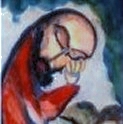
12.26.22 (Tevet 2, 5783) "Love not the world, neither the things that are in the world. If any man love the world, the love of the Father is not in him" (1 John 2:15). The way of faith always represents collision with the world (κόσμος) and its philosophy of the "good life." Happy are those who "hunger and thirst" for righteousness, who refrain from this world and make themselves poor because of inner heartache. For them no amount of the world's pleasures can obscure the difference between what is and what ought to be... This world is at best a corridor to the world to come, a "valley of decision" about what we ultimately choose to believe and to love...The heart of faith looks forward to "the city that has foundations, whose designer and builder is God" (Heb. 11:10).
There is a great danger to become so assimilated into this world that there is no longer any collision, no longer any protest, but merely the whimper of the soul that begs to be left alone from the general toil and troubles of this age... Conscience is seared; natural affections have been abandoned; and the "life" of the soul becomes a mere cipher, a phantom, a ghost... This is the scheme of the worldly dialectic that traps the human soul into living and dying for the sake of sheer vanity. May God help us not to so waste our days... The core prayer of the godly soul is always, "Help me, O LORD my God! Save me according to your steadfast love" (Psalm 109:26). Empty our hearts from vanity, O LORD, and afflict us with hunger and thirst for You, for you alone are what we really need....
עזרני יהוה אלהי
הושׁיעני כחסדך
ohz·rei'·nee · Adonai · E·loh·hai
hoh·shee·ei'·nee · khe·chas·de'·kha

"Help me, O LORD my God!
Save me according to your faithful love!"
(Psalm 109:26)

Hebrew Lesson:
Psalm 109:26 Hebrew reading lesson (click):
The Intercession of Judah...

12.26.22 (Tevet 2, 5783) Happy holidays, chaverim! In our Torah portion for this week (i.e., Vayigash: Gen. 44:18-47:27) we read about Joseph's dramatic revelation of his identity to his long lost brothers. Recall that Benjamin had been falsely accused of stealing the Viceroy's chalice and was arrested and brought before Joseph for immediate judgment. Judah then "drew near" (vayigash) and offered to bear the penalty for his brother, pleading with Joseph to spare his aged father the loss of yet another son. Joseph was so moved by Judah's act of mesirat nefesh (self-sacrifice) that he decided the time had finally come for him to reveal his identity to his brothers. After clearing the room, he began speaking in Hebrew and said, אֲנִי יוֹסֵף הַעוֹד אָבִי חָי / ani Yosef, ha'od avi chai / "I am Joseph; is my father alive?" When the brothers drew back in dismay, Joseph said, "Draw near to me, please" (from the same verb nagash) and explained how God providentially brought him to Egypt to save the family's life....
Hebrew Lesson:
Genesis 44:18a reading (Vayigash):
The revelation of Joseph and his reconciliation with his brothers is a prophetic picture of the acharit hayamim (end of days) when the Jewish people will come to understand that Yeshua is indeed the One seated at the right hand of the majesty on high as Israel's Deliverer. At that time Yeshua will speak comforting words to His long lost brothers and restore their place of blessing upon the earth. Indeed, the entire story of Joseph is rich in prophetic insight regarding our Lord and Savior. Vayigash (וַיִּגַּשׁ) means "and he drew near," referring first to Judah's intercession for the sins of his brothers, and then to Joseph's reciprocal desire for the brothers to draw near to him (Gen. 44:18, 45:4). Joseph initiated the reconciliation by saying, גְּשׁוּ־נָא אֵלַי / ge'shu na elai - "Please draw near to me," and indeed there is a play on the verb nagash (נָגַשׁ), "draw near," throughout this story.
Yeshua is depicted both in Judah's intercession (as the greater Son of Judah who interceded on behalf of the sins of Israel) and in Joseph's role as the exalted Savior of the Jewish people in time of tribulation. When Joseph disclosed himself and asked, "Is my father alive," we hear Yeshua evoking the confession of faith from the Jewish people: "I am Yeshua: do you now understand that My Father is alive?" Upon His coming revelation, all Israel will confess that indeed God the Father is "alive" and has vindicated the glory of His Son.
Humility of the Messiah...

12.23.22 (Kislev 29, 5783) Though the world system corrupts the message of the birth of Messiah for the sake of avarice and greed, take a moment to reflect on its ongoing spiritual significance, namely, that God emptied Himself (κένωσις) of His regal glory and power to become your Savior and High Priest, able to fully sympathize with your weakness, frailty, shame, and chronic sinfulness (Heb. 4:15-16; Phil 2:7-8). Almighty God, the Presence of Love, the Heart of Reality, clothed himself in human flesh and bone to become Immanu'el (עִמָּנוּ אֵל) - "God with us" - so that we could be touched by Him, healed by Him, and redeemed by Him... In light of this, it is only fitting we should join the refrain of heavenly host: "Glory to God in the highest, and upon earth peace, good will among all people!" (Luke 2:14). Amen! Yeshua is the Eternal Sign and Wonder of the LORD God Almighty...
Hebrew Lesson
Luke 2:14 reading (click):
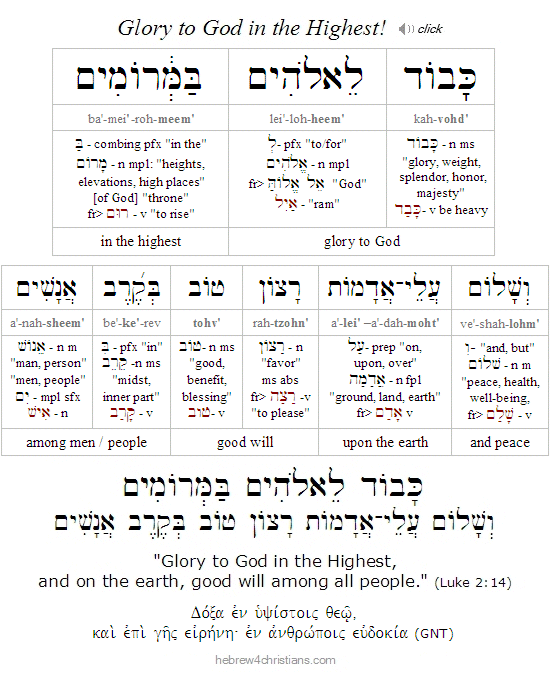 |
Consider the absolute humility of God as He chose to enter into this world as "baby Jesus." Meditate on the glory and sheer paradox of God's love! "Baby Jesus" is the perfect disguise to hide the truth from the proud eyes of the flesh, though the humble of heart can see... "For since in the wisdom of God the world by its wisdom did not know God, God was pleased to save those who believe by the foolishness of preaching" (1 Cor. 1:21). For "who comprehends the mind of the LORD, or gives him instruction as his counselor?" Through his great plan to redeem people from the dominion of Satan and his agents in this evil world, God emptied Himself to become clothed in the frailty human flesh, born in a manger as the great Lamb of God, and born to die as the ransom for all who will believe. Ah, what would we do without the gift of God, friends? What hope would we have? Regardless of the exact date of his birth of His birth, let's thank God that our Moshia (Savior) was willing to be born into this dark world to offer Himself as our sacrificial Redeemer! "For from him and through him and to him are all things. To him be glory forever. Amen" (Rom. 11:36).
Hebrew Lesson
Psalm 8:2a reading lesson (click):
But what to do, then, if you sincerely want to follow the Torah's calendar in light of entrenched Christian customs? Well, we certainly may commemorate the birth of Messiah during the holiday of Sukkot (or Shavuot, etc.), though we must be careful to show charity and use the "good eye" toward those who may adhere to the traditional date for "Christmas." Likewise we commemorate the death and resurrection of Messiah during Passover and Firstfruits, respectively, though we do not begrudge those of good faith who honor these great events of salvation during what they call the "Pascha" or even the "Easter" season. Often we are tested in exactly this way, chaverim! We must not miss the "weightier matters" of extending grace to others, as Yeshua clearly taught (Matt. 23:23). As it is written, "Let every man be fully persuaded in his own mind" (Rom. 14:5; Col. 2:16).
Friends, we must test the spirits -- and that particularly includes our own! How do we treat the "stranger" among us? How do we regard the "weaker brother?" Do we demand that our doctrine be esteemed, or do we allow room for others to seek the Lord and his wisdom? Ask yourself: Does this person (or group) honor Yeshua as God the Son, the Redeemer of Humanity who died for our sins and rose from the dead? If so, then keep your heart warm and soft toward him or her, even if he or she has yet to discover the Jewish roots of their faith. "Strive for peace with everyone" (Heb. 12:14). "Let those of us who are mature think this way, and if in anything you think otherwise, God will reveal that also to you" (Phil. 3:15). Though we desire unity with one another (John 17:11), we cannot reasonably insist on doctrinal uniformity, especially in light of the frailty of our shared human condition... The truth of God is known in humility and love.
Yom Kippur and Christmas...

12.23.22 (Kislev 29, 5783) If the priest Zechariah was performing the Yom Kippur avodah when he was visited by the angel Gabriel (as seems to be the case given the context, see Luke 1:8-23), and if his wife Elizabeth conceived about that time (see Luke 1:24, that is, sometime in the middle of the month of Tishri), and her cousin Mary was then told of the incarnation six months later, during Passover season (Luke 1:26, 36), then the birth of Yeshua could have been sometime during the middle of the month of Tevet, which is indeed close to the traditional December 25th date observed by the majority of Christians...
After all, as you read the the prophetic announcement of the birth of John given in Luke, it certainly seems that Zechariah was performing the Yom Kippur ritual at the Temple, offering incense before the parochet before he entered the sacred chamber of the Holy of Holies. Indeed, one implication of this interpretation is that the Lamb of God (שׂה הָאֱלהִים) was conceived during Passover, which seems appropriate as the time of the Incarnation...
ὁ λόγος σὰρξ ἐγένετο καὶ ἐσκήνωσεν ἐν ἡμῖν -- "The Word became flesh and dwelt among us" (John 1:14) -- which of course is the essence of the gospel message. As it is written concerning the birth of Messiah: "For unto us a child is born, unto us a son is given: and the dominion shall be upon his shoulder; and his name shall be called 'Wonderful Counselor,' 'the mighty God,' 'the everlasting Father,' 'Prince of Peace'" (Isa. 9:6).
Hebrew Lesson:
Isaiah 9:6 Hebrew reading lesson (click):
Of course the exact date of Yeshua's birth is existentially irrelevant, apart from the fact that he indeed was born into this world as our Savior, and indeed, the New Testament stresses the significance of his death more than his birth (1 Cor. 2:2; 1 Cor. 15:3-4). And while we may be uncertain about the date of Yeshua's birth, we certainly know that He was crucified on the afternoon before Passover as the Lamb of God. Nevertheless, we use the "good eye" to regard our Christian friends who honor this time to remember the birth of Yeshua, even if we have convictions that may lead us to think Messiah was born during Sukkot. For some hopefully peaceful discussion about the birth date of the Messiah Yeshua, see the article, "Christmas: Was Jesus really born on December 25th?"
Note: The point of this entry was to explore the traditional date as a possibility, not to be dogmatic and intolerant. You certainly do not have to agree with the traditional date, of course, though if you disagree, then you should at least address the pertinent question of what Zechariah was doing in his service when the prophecy of the birth of John was made. Follow your own convictions and walk in peace toward all people (Heb. 12:14). Shalom.
The Meaning of Life...
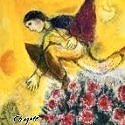
12.23.22 (Kislev 29, 5783) Every human culture engages in the art of storytelling to explain its origin, its values, and its destiny. Ancient myths, fables, and folklore were devised to serve that purpose, as were various religious dramas, legends about saints, and other sagas. Since art imitates reality, however, this implies that people everywhere intuitively understand that their individual roles find meaning in the context of a larger story of which they are part... In other words, people invariably tell stories because life itself is a great story, namely, God's story (i.e., His-story), and they sense a profound need to "find themselves" in the story line. Without an ultimate story about the meaning of life as revealed in the Scriptures, however, people are left to their own imaginations and will be unsure about who they really are, why they exist, and where they are inevitably going...
Since people need to find the meaning of life in order to cope with the chaos, suffering, and apparent pointlessness of this world, they invent stories to help them find some provisional comfort. However, the story we tell ourselves - namely, where we come from, who we are, and where we are ultimately going, has profound yet very practical consequences for the development of our inner character. For instance, to instill courage we must find meaning in suffering, but that implies that we see our personal suffering as part of a larger story. Even the pagan philosopher Nietzsche said that he could withstand any "how" in life as long as he had a "why," or a reason. The heart of faith takes this a step further, however, as when the Berditchev Rebbe prayed, "O God, I don't ask you to tell me why I suffer, but only whether I suffer for Your sake." If we fail to find any real purpose for our lives, or if we are unable to believe there is a "cosmic story" behind all things, namely, God's own story, then we will surely lose heart, because the suffering we experience will seem irredeemably pointless... Indeed, secular people today are notable for their practiced heartlessness (i.e., cowardice) because they refuse to see their lives as part of God's great redemptive story. In the intellectual wasteland of the postmodern age, there is no "grand narrative" we are allowed to tell ourselves, there is no objective truth about what is objectively right or wrong, and there is no personal God that directs the history of the universe toward an end. Because of this propaganda, secular people today have lost the ability to discern between good and evil, and therefore they are unable to see any real difference between righteousness and unrighteousness, between villains and heroes, and consequently they are devoid of moral fiber, ethical strength, and honor of soul. Contrary to the spirit of this age, as followers of Messiah we must be resolute regarding our identity as God's redeemed children. We are in the midst of a great spiritual war, called to fight the good fight of faith, and we will overcome the world by the blood of the lamb and the word of our testimony.
Dear friends, "after you have suffered a little while, the God of all Grace (אלהֵי כָל־הַחֶסֶד), who has called you to his eternal glory in the Messiah, will himself restore, confirm, strengthen, and establish you" (1 Pet. 5:10). "So let us not lose heart... For this light momentary affliction is preparing for us an eternal weight of glory beyond all comparison, as we look not to the things that are seen but to the things that are unseen. For the things that are seen are transient, but the things that are unseen are eternal" (2 Cor. 4:16-18). May God be the strength of your heart and your portion forever (Psalm 73:26).
To ask for the "meaning of life" is to ask for the means to life, for the way to find its purpose and significance... According to the Torah of Yeshua, there is a supreme "end of life," an overarching reason for all things, a superlative purpose for the existence of the universe and all that is in it, and that end is found in the greatest story ever told, namely, the story of the glory of God and His redemptive love for us all. This is the true message of Christmas: "For God so loved the world, that he gave his only Son, that whoever believes in him should not perish but have eternal life" (John 3:16). Let's not miss the point of the story - that God chose to enter this space-time as "one of us" so that we could be touched by Him, healed by Him, saved by Him... That's the real miracle, and it's a real miracle for every day of our lives.
Hebrew Lesson
Psalm 73:24 reading (click):
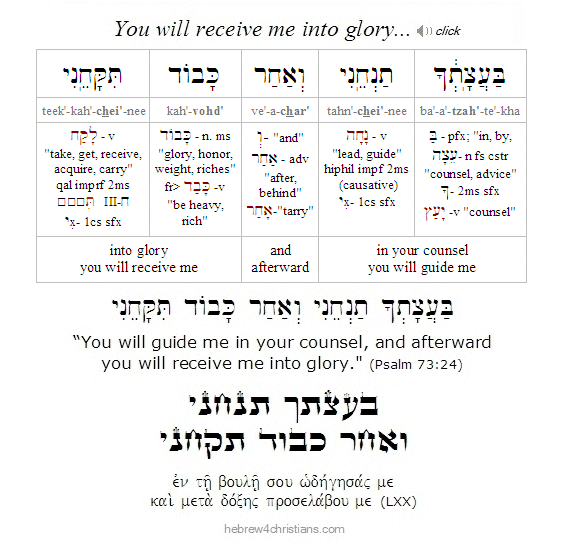 |
Faith's New Song of Praise...

12.22.22 (Kislev 28, 5783) Dietrich Bonhoeffer once famously wrote: "When Christ calls a man, he bids him come and die," and while that is of course true, it is also important to remember that he also bids him come and live, too... "Unless the seed dies, it abides alone, but if it dies, it brings forth much fruit" (John 12:24). We descend in order to ascend. The "infinite resignation" of putting off the old nature is meant to be supplanted by Yeshua's overcoming life within our hearts. Soren Kierkegaard likens the life of faith to Abraham's heart that was able to receive back his son Isaac after he offered him up in sacrifice. After we take the step of surrender we receive back from the LORD, though everything is made new...
Hebrew Lesson
Isaiah 42:10a Hebrew reading (click):
The Word Made Flesh....

[ This time of year provides an opportunity to one again focus on the truth of incarnational theology, to celebrate the revelation of God in Yeshua, and to proclaim the miracle that God "emptied Himself" by being clothed in human flesh as the great Lamb of God.... ]
12.22.22 (Kislev 28, 5783) At Mount Sinai we heard the voice of God (קוֹל אֱלהִים) speaking from the midst of the Fire (Deut. 4:33), an event that foreshadowed the great advent of the King and Lawgiver Himself, when the Eternal Word (דְבַר־יְהוָה) became flesh and dwelt with us (Phil. 2:6-7; John 1:1,14). Any theology that regards God as entirely transcendent (i.e., God is beyond any analogy with the finite) will have a problem with divine immanence (i.e., God is inherent and involved within the finite), since the highness, holiness, and perfection of God will make Him seem distant, outside of us, far away, and unknown...
Incarnational theology, on the other hand, manifests the magnificent humility and nearness of God to disclose the divine empathy. Indeed, the LORD became Emanu'el (עִמָּנוּ אֵל), "God with us," to share our mortal condition, to know our pain, to experience the wounds of sin, and to be abandoned, alienated, forsaken. It is God's own bittul hayesh (בִּטּוּל הַיֵּשׁ) - his "self-nullification" for the sake of love and truth. The "Eternal made flesh" bridges the gap between the realm of Ein Sof (אין סוף), the "infinitely transcendent" One, and the finite world of people lost within their sinful frailty. Of course we believe Adonai Echad (יְהוָה אֶחָד) - that the "LORD is One" - both in the sense of being exalted over all things but also in the sense of being compassionately involved in all things (Rom. 11:36). We therefore celebrate the giving of the Torah both at Sinai and especially the at Bethlehem with the birth of Messiah. We celebrate that God is indeed the King and Ruler over all, but we further affirm that God's authority and rule extends to all worlds - including the realm of our finitude and need...
As I've mentioned elsewhere, the climax of Sinai was the revelation of the Sanctuary. The two tablets of the law, summarizing the Ten Commandments, were stored inside the famous Ark of the Covenant (אֲרוֹן בְּרִית־יְהוָה), a sacred "three-in-one" box placed in the innermost chamber of the Tabernacle called the Holy of Holies (קדֶשׁ הַקֳּדָשִׁים). As such, the Ark served as kisei ha-kavod (כִּסֵּא הַכָּבוֹד), the Throne of Glory itself. Upon the cover (or crown) of the Ark (i.e., the kapporet) were fashioned two cherubim (i.e., angel-like figures) that faced one another (Exod. 25:17-18). According to the Talmud (Succah 5b), each cherub had the face of a child - one boy and one girl - and their wings spread heavenward as their eyes gazed upon the cover (Exod. 25:20). It was here that God's Voice would be heard during the Yom Kippur service, when sacrificial blood was sprinkled upon the crown to symbolize the atonement of sin secured through Messiah, the Word that became flesh for us... In the very heart of the Sanctuary, then, we see the Word of God and the sacrficial blood.
The LORD God Almighty was clothed with human skin: our flesh, our bones... The miracle of the incarnation is the "Absolute Paradox," as Soren Kierkegaard once said, wherein the infinite and the finite meet in the inscrutable mystery of the Divine Presence. Here God "touches a leper," eats with sinners and prostitutes, sheds human tears, and suffers heartache like all other men... The gloriously great God, the very Creator of the cosmos, has "emptied Himself" to come in the form of a lowly servant (δοῦλος) - disguised to the eyes of the proud and hardhearted, but is revealed as High Priest to those who are genuinely broken and in profound need. The LORD God is God over "all possible worlds," and that includes both the celestial realms of the heavens but also the world of the fallen, the ashamed, the alienated, and the lost... God's infinite condescension reveals and augments the majesty of His infinite transcendence. There is no world - nor ever shall there be such - where the LORD God Almighty does not reign and have preeminence.
Do not suppose for a moment that the Torah of Moses does not teach "incarnational" theology. Since God created human beings in his image and likeness, the "anthropomorphic language" of Scripture is meaningful. The LORD reveals himself in human terms - using human language, expressing human emotions, and so on, as it says: Moses spoke to God panim el panim - "face to face" (Deut. 34:10). The Torah always has to take on human form - the Word made flesh - for the sake of human beings who live in flesh and blood reality...
The greatest expression of God's word is found in the Presence of Yeshua. This is the Word of God that "tabernacles" with us, full of grace and truth (John 1:14). Yeshua is the "Living Torah" who empties himself to enter our world to rescue us from death. Our Scriptures state that "in these last days God has spoken to us by his Son, whom He appointed the Heir of all things, through whom also He created the worlds" (Heb 1:2). Note that the Greek construction for the phrase translated, "by his son" is ἐλάλησεν ἡμῖν ἐν υἱῷ, which literally means "he spoke to us in Son" -- that is, in the language or voice of the the Son of God Himself... God speaks the language "of Son" from the midst of the fire revealed at Zion. "Therefore, since we are receiving a kingdom that cannot be shaken, let us be thankful, and so worship God acceptably with reverence and awe (μετὰ αἰδοῦς καὶ εὐλαβείας) - for our God is Esh Okhelah - a Consuming Fire" (Heb. 12:28-29).
Hebrew Lesson:
Isaiah 7:14b Hebrew reading lesson (click):
Addendum: Consider further the metaphorical and anthropomorphic language of the Scriptures: God "sees," God "hears," the "hand of the LORD" saves, etc. Without an implied incarnational theology, there would be no language that we could comprehend about God who is the Infinite One that transcends all things... God gets angry; God feels sorrow; God is jealous; God is a lover, etc. all these metaphors bring the language of heaven into the world of humanity... The Spirit that imparts revelation does so inside a human brain and is translated into human apprehension. Yeshua is the Substance of the shadowy talk of analogical language; he embodies God-life before us.... Yeshua is the Word of God made flesh -- able to touch us, know us, share in our suffering, heal us of our sin-sickness, etc.
H4C Podcast:
Joseph and his brothers...
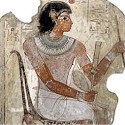
[ The following is related to our Torah portion for Chanuakah week, parashat Miketz... ]
12.21.22 (Kislev 27, 5783) The Torah says that "Jacob loved Joseph more than all his other sons" (יִשְׂרָאֵל אָהַב אֶת־יוֹסֵף מִכָּל־בָּנָיו), since he was the son of his old age, and the firstborn son (bechor) of his beloved wife Rachel (Gen. 37:3). Indeed, Jacob and Joseph shared a lot in common: Both had infertile mothers who had difficulty in childbirth (Rebekah and Rachel); both of their mothers bore two sons (Rebekah: Esau/Jacob; Rachel: Joseph/Benjamin); both were hated by their brothers, and perhaps most significantly, both had lost their mothers (Joseph was present when his mother died, whereas Jacob never saw his mother again after he fled from his brother Esau). Perhaps this explains why Jacob favored his Joseph and made for him the ketonet passim (כְּתנֶת פַּסִּים), a full-sleeved robe or ornamental tunic that set him apart from his other sons, and perhaps this also explains Joseph's juvenile boasting about his "dreams of preeminence" over his brothers.... Indeed, the story of Joseph is, among other things, a story about his dreams. As a young man, his dreams centered on himself, which led to his betrayal and fall; after being humbled in prison, he focused on the dreams of others, which led to his exaltation...
There is a lot of mystery surrounding the life of Joseph ben Yisrael. Like his father who fled from the hatred of his brother Esau, Joseph became a victim of his brothers' malice. After being betrayed and sold into slavery as a teenager, Joseph later seemed to abandon his family identity, perhaps like his estranged uncle Esau. He had no "Bethel" experience along the way, however. Indeed, upon his release from prison he was thoroughly "Egyptianized." Joseph wore Egyptian clothes, spoke fluent Egyptian, married an Egyptian wife, assumed an Egyptian name, and named his firstborn son "Manasseh" (מְנַשֶּׁה), a word that comes from the verb nasah (נָשָׁה), meaning "to forget." It's clear that Joseph wanted to forget his past life. After all, despite his ascendancy in Egypt -- when he had the means to reconnect with his long-lost family (including his father and brother Reuben who were deceived into thinking he was dead) -- he did nothing to contact them. (For more on this, see "The Heart's Truth.")
The truth (i.e., aletheia: ἀ+λήθεια) cannot be forever forgotten, however. When his brothers finally reappeared in his life seeking help, it had been 22 long years since they had last seen him (incidentally, the very same amount of time Jacob had been away from his family as well). Joseph was now forced to deal with his past life. But he played the part of a "stranger" and withheld his true identity... As part of his charade, Joseph bound and imprisoned Simeon (who, according to tradition was the brother who originally threw Joseph into the pit). It was then that the brothers remembered what they had done to Joseph when they betrayed him as a child. Here the Torah adds a detail not originally given in the story of Joseph's betrayal, namely, that the brothers had ignored Joseph's desperate cries for help (Gen. 42:21-24). Perhaps the shock of seeing their helpless brother Simeon bound before them reminded the brothers of the terrible pain they had once caused Joseph...
If you are familiar with the drama, you recall how Joseph then demanded that his brother Benjamin be brought from Canaan in order to corroborate the brothers' story. Benjamin - the last link to Jacob's deceased wife Rachel and full brother to Joseph - had surely taken Joseph's place as Jacob's favorite son, and Jacob was unwilling to part from him. The famine, however, forced the issue and Judah swore to his father to take personal and eternal responsibility for the welfare of his beloved son... Jacob finally relented in a state of fearful resignation.
So the brothers, this time with Benjamin, trekked back to Egypt. Although the sages argue about the exact chronology, it is clear that Benjamin was not a child when Joseph was thrown into the pit at age 17. When he finally saw his brother again, Joseph was so overcome with emotion that he left the room to weep. A midrash tells of the conversation between Joseph and Benjamin that brought tears to Joseph's eyes. Joseph asked Benjamin, "Have you a full brother, one who has the same mother as you?" "I had a brother," answered Benjamin, "but I do not know where he is." "Do you have sons?" asked Joseph. "I have ten." "What are there names?" "I named them all after my brother and the troubles that befell him. One is called "Bela" because my brother was nivlah - swallowed up - and disappeared. Another is called "Bechor" because he was the bechor (firstborn) of his mother. A third is called "Achi" because he was achi, my brother, and a fourth is called "Chuppim" because he did not see my chuppah (i.e., wedding day)." So Benjamin explained the names of his ten sons and Joseph was full of love for his brother and sadness for the time they had not shared together.
Another midrash tells the story about how Joseph seated his brothers from youngest to oldest (Gen. 43:33). He wanted to have Benjamin sit next to him but was unsure how to arrange the seating without arousing suspicion. Picking up his goblet and pretending that it had magic powers, Joseph called out the brothers names: "Reuben, Simeon, Levi, Judah," and so on from oldest to youngest. When he came to Benjamin, he said, "He has no mother and neither do I. He had a brother who was separated from him at birth, and so did I -- let him sit next to me!" The fivefold portion given to Benjamin was meant to test the brothers to see how they would react to a brother being shown preferential treatment.
When Joseph later "framed" Benjamin for stealing the "divination goblet," he was masterfully recreating a situation similar to the one in which he was sold by his brothers. Had they changed? Would his brothers abandon Benjamin as they had abandoned him in his hour of need? In order for there to be genuine reconciliation, Joseph needed to see if his brothers had really undergone teshuvah. When Judah stepped forward to take the place of his brother, he willingly accepted the guilt of them all. When Judah said, "What can we say, my lord; God has found out our sin" (Gen. 44:16), he was not confessing to the theft of the divination cup, but rather to the brothers' crime of throwing Joseph into the pit and selling him as a slave...
The Hebrew word "Miketz"(מִקֵּץ) means "at the end of" and points to prophetic future (i.e., the "end of days" or acharit ha-yamim). Just as Joseph was a "dreamer" who was betrayed by his brothers but was promoted to a place of glory by the hidden hand of God, so Yeshua was betrayed by his people yet was exalted over all the nations (מֶלֶךְ הַגּוֹיִם). And just as Joseph later disguised himself as a "stranger" and an "Egyptian" to his brothers but was finally revealed to be their savior, so will the Jewish people come to see that Yeshua is the true Savior of Israel. Then will come true the hope of Rav Sha'ul (the Apostle Paul) who wrote, "And so all Israel shall be saved: as it is written, There shall come out of Zion the Deliverer who shall turn away ungodliness from Jacob" (Rom. 11:30). Amen. Let that day come!
Hebrew Lesson
Isaiah 59:20 reading (click):
Waking Up to the Light...
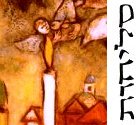
[ The following is related to the holiday of Chanukah... ]
12.20.22 (Kislev 26, 5783) Some people seem to sleepwalk through their days, without ever waking up... They miss life's wonder; they close their eyes to the Divine Presence; they shun asking the "big questions" because this disturbs their prejudices; indeed, they would rather be entertained, mesmerized, and rendered unconscious. Many people prefer to be put under a hypnotic spell than to be brought back to reality; they actually want their illusions and virtual lives! The first step of deliverance is to confess that we are asleep, and that we prefer sleep to opening our eyes to the truth. As it is written, "it is light that makes everything visible; therefore it says, "Awake, O sleeper, and arise from the dead, and the Messiah will shine on you" (Eph. 5:14). Arise and shine, for your light has come!
Recall that the holy menorah (מְנוֹרָה) was formed from one piece of pure beaten gold weighing 3,000 shekels of silver (nearly 100 pounds). It was a highly decorative work that had seven branches (with seven lamps), nine flower blooms, eleven fruits, and twenty two cups. According to the Talmud, the menorah measured eighteen tefachim (i.e., "palms") in height (from the base to the start of the lamps), or roughly 5.25 feet. It is called the "lamp of God" (נֵר אֱלהִים) in the Scriptures (1 Sam. 3:3).
The "lamp of God" was to be made by hammering a single piece of solid gold into shape (Exod. 25:36). Note that the word translated "hammered" or "beaten" (מִקְשָׁה) comes from the word for "difficult" in Hebrew (קָשֶׁה). According to midrash, the method for constructing the menorah was difficult for Moses to comprehend, so the LORD first showed him one in the fire and told him: "This is how you will make it." Moses was unable to do so, however, so the LORD told him to take a block of gold and have Betzalel (the carpenter from Judah) throw it into the fire. After a flash of dazzling light, a glorious menorah came out formed by God Himself.
The lamps of the menorah were lit daily, "from evening until morning," starting from the central lamp (the shamash) and then moving right to left (Exod. 27:21). According to the Talmud (Shabbat 22b), while all the lamps received the same amount of olive oil, the "westernmost" lamp (according to Rashi, the center lamp, due to its orientation) miraculously never ran out of oil, even though it was kindled first in the sequence. In other words, when Aaron would rekindle the lamps every evening, he found the shamash still burning, so he simply refilled it with oil and trimmed its wick. This miracle is also said to have occurred during the Temple period, though it abruptly ended about 40 years before the destruction of the Second Temple (c. 30 AD), after the death of Yeshua the Messiah, the true Servant and Branch of the LORD. As it is attested in the Talmud: "Our Rabbis taught: During the last forty years before the destruction of the Temple the lot ['For the Lord'] did not come up in the right hand; nor did the crimson-colored strap become white; nor did the westernmost light shine" (Yoma 39a).
The light from the menorah is a spiritual light. It was not seen from the outside of the Tabernacle, but only while inside the holy chamber, before the holy place of sacrificial atonement. It enabled service to God to be performed, though it was not a light to be used for profane purposes. Notice that the six lamps faced the central lamp -- a picture of Yeshua, the Light of the World whose arms and legs were "hammered" for our sins.... He is the suffering servant (shamash) who lightens everyone in the world. He is the center, the supporting trunk for the other branches (John 15:5).
The light itself came from the burning of pure olive oil - a symbol of anointing and the Holy Spirit (רוּחַ הַקּדֶשׁ). It was kindled by the hand of a man of peace and humility. Likewise, when we are given light to behold the sacrifice of Yeshua for our atonement (כַּפָּרָה), we are filled with the divine light (John 8:12; 1 John 1:7, Eph. 5:8). When we come to the cross, we can behold the truth of God's unfailing love that draws us to be united with Him.
Hebrew Lesson
Psalm 119:105 reading (click):
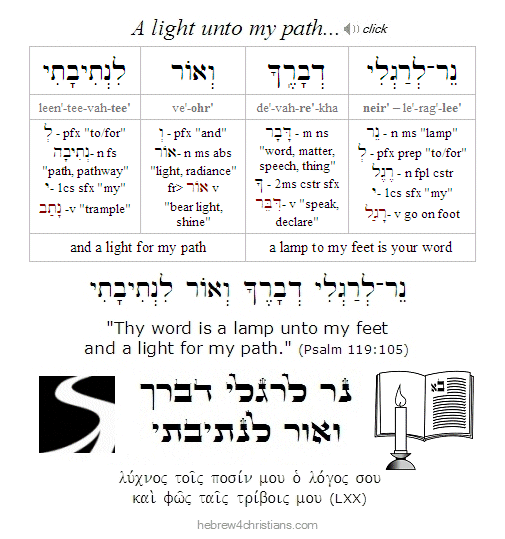 |
It is not easy to wake up, to rouse ourselves, to find focus, concentration, "kavanah," - and yet spiritually speaking it is essential. Hence Yeshua repeatedly asked his disciples: "Do you now believe?" May God have mercy upon us and help us arise to behold His glorious light!
click for larger picture
Keep the Flame Burning...
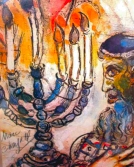
[ "Faith is the strength by which a shattered world shall emerge into the light." - Helen Keller ]
12.20.22 (Kislev 26, 5783) Keep the flame within your heart burning, friend... A sage once told a person struggling with his faith: "It is written that all creation was brought into being because of people like you. God saw there would be people who would cling to our holy faith, suffering greatly because confusion and doubt would plague them. God perceived that such would overcome these doubts and troubles of heart and remain strong in their belief. It was because of this that God brought forth all creation." Indeed, it was because of this that Yeshua our LORD suffered and died for you... Amen. Therefore never yield to despair, since that leads to further darkness and fear. Press on and keep fighting the "good fight" of faith (1 Tim. 6:12). Remember that you infinitely matter to heaven; your life has great value; you are significant and you are truly loved by our Heavenly Father. There is a "future and a hope" for you; there is "a white stone, and on that stone will be written a new name that no one can understand except the one who receives it" (Rev. 2:17). May "the trial of your faith, being much more precious than of gold that perishes, though it be tested with fire, be found to result in praise and glory and honor at the revelation to come" (1 Pet. 1:7).
"I am sure of this, that he who began a good work in you will bring it to completion (ἐπιτελέω) at the Day of Yeshua the Messiah" (Phil 1:6). The LORD is able to guard you (φυλάξαι) from stumbling and to present you blameless before the presence of His glory with great joy (Jude 1:24). "The LORD upholds all who are falling and raises up all who are bowed down" (Psalm 145:14). "He will sustain you to the end, guiltless in the Day of our Yeshua the Messiah" (1 Cor. 1:8). He who calls you is forever faithful; He will surely do it (1 Thess. 5:24). Yea, "the Lord is faithful (נֶאֱמָן הוּא): He will establish you and guard you against the evil one" (2 Thess. 3:3). The Spirit says, "Fear not, for I AM with you always."
Hebrew Lesson:
Isaiah 41:10 Hebrew reading (click):
Priests of His Light...
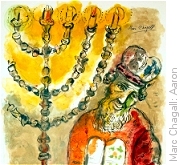
[ "All truth and understanding is a result of a divine light which is God Himself." - Augustine ]
12.19.22 (Kislev 25, 5783) The Chanukah holiday is upon us, friends, and may we all rededicate the "Temple" of our lives to serve the Lord and walk in His light wholeheartedly... Indeed, we are called to be a "kingdom of priests," a set-apart people, and a light to the nations (Exod. 19:6; Isa. 42:6; 1 Pet. 2:9). Note that the very first responsibility given to the priests of Israel was to care for the ner tamid (נר התמיד), the light of the Menorah (Exod. 27:20-21), to signify our consciousness of the Divine Presence (Psalm 18:28; 36:9).
The challenge we all face is to remain "in the light as God is in the light" and not to be seduced by the world of fleeting appearances (Isa. 2:5; 1 John 1:7, 2:17). God's eternal light radiates through all things (Isa. 6:3; Psalm 139:11-12), just as the great "yehi ohr" (יְהִי אוֹר) - "let there be light" - is the first word spoken to creation (Gen. 1:3). To be a priest means being so filled with the truth of God that you radiate peace; your inner light shines and you glorify your Father in heaven (Matt. 5:16). That is how we draw others to the truth, by first receiving the beauty of the LORD (Psalm 27:4).
Of course being a "witness to the light," that is, being a "priest," does not mean you are a "perfect person" who walks about with a blissed-out attitude despite the various trials and tests we all face in this life. No, we all still sin, and we therefore need to confess the truth of our condition to abide in the light (1 John 1:9; James 5:16). Like everything else in Scripture, here we encounter paradox, as Yeshua taught: "Blessed are the impoverished in spirit (πτωχοὶ τῷ πνεύματι), for theirs is the kingdom of heaven; blessed are the ones who mourn (οἱ πενθοῦντες), for they shall be comforted; blessed are the meek (οἱ πραεῖς), for they shall inherit the earth" (Matt. 5:3-5). Yea, "God chose what is foolish in the world to shame the wise; God chose what is weak in the world to shame the strong, God chose what is low and despised in the world, even things that are not, to bring to nothing things that are, so that no human being might boast in the presence of God" (1 Cor. 1:27-29).
The Hebrew word for priest (i.e., kohen: כּהֵן) may come from the word ken (כֵּן) meaning "yes" and the word kivun (כִּווּן) meaning to "direct" or "lead," implying that a priest helps direct a person toward affirming the Reality and Truth of God. The role of a priest is to draw us to God, then, but how is that possible if the mediator cannot genuinely understand our sorrows and struggles? What draws others to God is his love, but how can we come to believe in that love were it not for the priesthood of the leper, the priesthood of the outcast, the priesthood of the reject? Even so Yeshua was afflicted with our infirmities and therefore sympathizes with our brokenness and frailty (see Heb. 4:16).
As a priest of brokenness, you are called to be a wounded healer, and you can testify of God's saving grace and love for you despite your sorrow, anger, weaknesses, and failures... Accepting God's compassion for you - just as you are - allows you to show grace and kindness to others who are also hurting, and therefore you can serve as a priest of God.
Be encouraged, friends... "For the commandment is a lamp and Torah is light, and the reproofs of discipline are the way of life" (Prov. 6:23). Here we may understand the "reproofs of discipline" as the (ongoing) process of consciously turning away from darkness (of fear, anger, etc.) to the behold the divine light. We have to start here, after all... The way of life is teshuvah (repentance, turning to God), which is a painful process to the lower nature, but is necessary to walk in the light. Confession brings light into our hearts (James 5:16; 1 John 1:5-9), and the end of our struggle is healing and life.
Hebrew Lesson:
Proverbs 6:23 Hebrew reading lesson (click):
Love not the World...

[ "You and I have need of the strongest spell that can be found to wake us from the evil enchantment of worldliness." -- C.S. Lewis ]
12.19.22 (Kislev 25, 5783) Regarding the verse, "And the earth was without form and void (תהוּ וָבהוּ), and darkness was upon the surface of the deep" (Gen. 1:2), the midrash comments: "Darkness – these are the Greeks who darkened the eyes of the Jewish nation with their evil decrees." The utter darkness of Hellenistic thought came disguised as an angel of light, as "enlightened" thinking, but whenever such humanism usurps the authority of divine revelation, the result is exile and darkness. Indeed, the very worst kind of exile is to be unaware that you are in exile, to be so blinded that you do not see that you do not see... As Yeshua said, "If the light in you is darkness, how great is the darkness!" (Matt. 6:23); and "be careful lest the light in you be darkness" (Luke 11:35). In the end, the world and its blind lusts will pass away, for it is "tohu" (תּהוּ) - confusion and unreality - but whoever does the will of God abides forever (1 John 2:15-17).
The realm of this "fallen world" -- understood in terms of the "fellowship" (κοινωνία) of darkness -- is something from which we are delivered and of which we are no longer to be enslaved. As it is written, "God has delivered us from the domain of darkness and transferred us to the kingdom of his beloved Son" (Col. 1:13). Likewise Yeshua said, "If you belonged to the world, the world would love you as its own" (John 15:19). In other words, we are "in" but not "of" this world (John 17:15), and though we physically coexist with others in this time-space, we are no longer citizens of this fallen world and its underlying value system. We are not to love this world, nor the things this world values, since doing so embraces a philosophy of life that is at war with the Father and contrary to the truth of eternity (1 John 2:16; James 4:4). The fallen world values "the flesh" and the "desire of the eyes" that is patterned according to the "arrogance of life." In other words, it is a "beauty pageant" that esteems others based on their accidental qualities instead of their inner and essential qualities. In this connection, let me quote from Henri Nouwen regarding slavery to the world and its perverse value system:
At issue here is the question: "To whom do I belong? God or to the world?"... As long as I keep running about asking: "Do you love me? Do you really love me?" I give all power to the voices of the world and put myself in bondage because the world is filled with "ifs." The world says: "Yes, I love you if you are good-looking, intelligent, and wealthy. I love you if you have a good education, a good job, and good connections. I love you if you produce much, sell much, and buy much." There are endless "ifs" hidden in the world's love. These "ifs" enslave me, since it is impossible to respond adequately to all of them. The world's love is and always will be conditional. As long as I keep looking for my true self in the world of conditional love, I will remain "hooked" to the world - trying, failing, and trying again. It is a world that fosters addictions because what it offers cannot satisfy the deepest craving of my heart." (Nouwen: Return of The Prodigal Son; p42-43)
"Love not the world, neither the things of this world" (1 John 2:15). We see then the connection between worldliness and idolatry, since idolatry essentially involves trying to find your identity, your worth, your satisfaction, and your ultimate fulfillment in the realm of the transitory and the finite rather than in God.... We are (rightly) warned against the vices of "worldliness" and are admonished to abstain from popular culture and its spurious values, but note well that worldliness extends well beyond all this, since it concerns understanding the identity and nature of the person as a whole. The fruit of worldliness is the result of being rooted in this world rather than in God's kingdom. The various desires of the human heart - even the desire for "normal things" like personal happiness in this world - may be regarded as entirely "worldly" if they are devoid of submission to God and His rule....
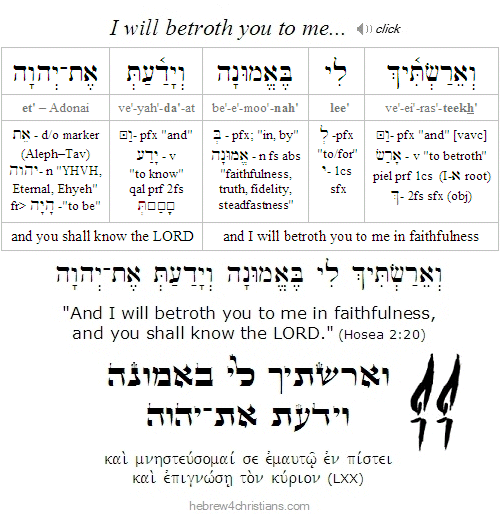 |
A principle of spiritual life is that the "inner is not the outer," and vice-versa. People are easily deceived by mere appearances, yet the eye of faith must be trained to look beyond surface phenomena to discern the underlying Reality that upholds the world. This is perhaps most evident in the case of the cross of Yeshua, which the carnal eye regards as a matter of shame and defeat, but the eye of faith regards as the very wisdom, power, and love of Almighty God Himself... Of Yeshua it is said, "he [Messiah] grew up before him like a young plant, and like a root out of dry ground; he had no form or majesty that we should look at him, and no beauty that we should desire him."
Those who rely on mere appearances will invariably find themselves confounded. The LORD therefore commissioned the prophet: "Go, and say to this people: 'Keep on hearing, but do not understand; keep on seeing, but do not perceive'" (Isa. 6:9). Where it is written, "God gave them over to their stubborn hearts, to follow their own devices" (Psalm 81:12; Rom. 1:24); and "they went backward and not forward" (Jer. 7:24), we learn there is no place of "neutrality" or studied indifference toward God... We are either going forward with Him or going backward; we are either drawing near or pulling our hearts away (Rev. 3:16).
Essence of Chanukah...
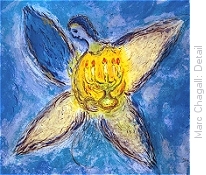
[ The eight-day Festival of Chanukah runs from Sun. Dec 18th - Sun. Dec. 25th this year... ]
12.19.22 (Kislev 25, 5783) The essence of Chanukah is simply to receive the light, to bear witness of the radiance of God's victory. We celebrate the work of God, his salvation, and the triumph of his love. Therefore its message is "wake up, open your eyes, and believe" the good news: darkness and despair will not prevail; your mourning will find comfort, your grief its solace. Your heart's deepest longing shines brightly, even now, if you will but believe... With God's help, fight the darkness of fear...
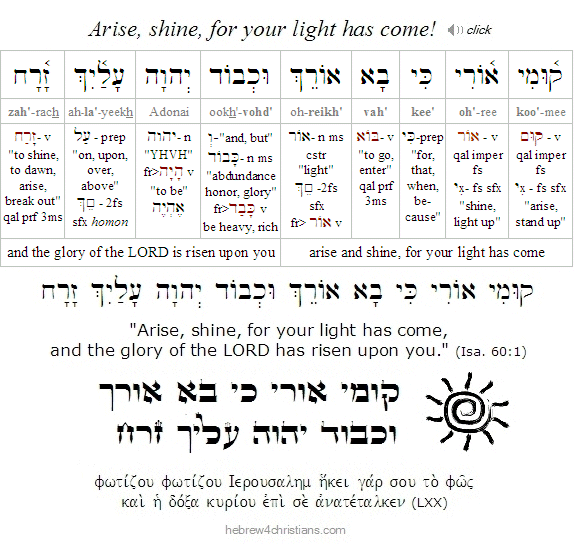 |
The LORD said to Moses from the midst of the shining flame: 'Take off your sandals from your feet, for the place on which you stand is holy' (Exod. 3:5). The Chofetz Chaim comments: We all need to rise higher... Never say, I will be able to lift myself up at another time or different place. By faith see that this place, right now, is holy ground, and awaits your response. May God open the "eyes of your heart" to help you see (Eph. 1:18-19).
The Source of Light...
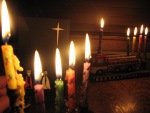
[ Chanukah begins this evening after sundown... Happy Holidays, friends! ]
12.18.22 (Kislev 24, 5783) Did you know that Yeshua observed the Chanukah festival? "Now it was the Feast of Dedication (i.e., chag Chanukah) in Jerusalem, and it was winter, and Yeshua walked in the Temple, in Solomon's porch. Then the Judeans surrounded Him and said to Him, "How long do You keep us in doubt? If You are the Messiah, tell us plainly...." And Yeshua answered them: "I have told you, but you do not believe. The works that I do in My Father's name, they bear witness of Me. But you do not believe, because you are not of My sheep, as I said to you. My sheep hear My voice, and I know them, and they follow Me. And I give them eternal life, and they shall never perish; neither shall anyone snatch them out of My hand. My Father, who has given them to Me, is greater than all; and no one is able to snatch them out of My Father's hand. "I and My Father are one" (John 10:22-30).
Those of faith see the light of God. "But you are a chosen generation, a royal priesthood, a holy nation, His own special people, that you may proclaim the praises of Him who called you out of darkness into His marvelous light" (1 Pet. 2:9).
"God is Light; in Him there is no darkness at all" (1 John 1:5). Yeshua said: "I am come a light into the world, that whoever believes in me should not abide in darkness" (John 12:46). The ultimate message of Chanukah is eschatological and full of hope. This world is passing away and the Kingdom of Heaven will one day be established upon the earth. We live in light of this blessed hope (Titus 2:11-13). The world's rulers are "on notice" from God Almighty: their days are numbered and they will surely face the judgment of the LORD God of Israel (Psalm 2). We must stand against evil by refusing to conform to the world around us (Eph. 6:11-18).
Now is the time. "Let your light so shine before others that they may see your good works and give glory to your Father who is in heaven" (Matt. 5:16). Followers of Yeshua are made part of His Dwelling - extensions of His Presence in this dark world - and during this Chanukah season may we remember the call to rededicate our lives to Him! יְהִי אוֹר - May your light shine!
Hebrew Lesson:
Psalm 36:9 Hebrew reading (click):
Psalm 36:9 page (pdf)
Happy Chanukah!
Parashat Miketz - מקץ
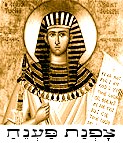
[ The eight days of Chanukah run from Sun. Dec. 18th (i.e., Kislev 25) at evening through Sun. Dec. 25th this year. The weekly Torah reading is not suspended for Chanukah (as it is for Passover and Sukkot), though additional Torah readings are read for each of the days of the holiday... ]
12.18.22 (Kislev 24, 5783) In our Torah portion for Chanukah week, parashat Miketz (i.e., Gen. 41:1-44:17), we will read how imprisoned Joseph successfully interpreted Pharaoh's dreams and suddenly rose to power in Egypt. Because of a famine in the land of Canaan, however, his brothers (who had earlier betrayed him) came to Egypt in search of food. A disguised Joseph then tested his brothers to see whether they were the same people who had callously sold him into slavery, or whether they had undergone teshuvah (repentance).
The eventual revelation of Joseph and his reconciliation with his brothers is a prophetic picture of acharit ha-yamim (the "End of Days") when Israel, in Great Tribulation, will come to accept Yeshua as Israel's true deliverer. Presently, the veil is still over the eyes of the Jewish people and they collectively regard Yeshua as an "Egyptian" of sorts. In this connection, I list some of the ways that Joseph is a "type" or foreshadowing of the coming Yeshua as the Suffering Servant (see "Mashiach ben Yosef").
Hebrew Lesson:
Genesis 41:1a Hebrew Reading (click):
Israel's Rejected Prince...

12.18.22 (Kislev 24, 5783) Shavuah tov chaverim! From the beginning of last week's Torah portion (Vayeshev) until the very end of Sefer Bereshit (the Book of Genesis), the focus shifts from the patriarch Jacob to his twelve sons, and particularly to his beloved son Joseph (יוֹסֵף). Recall that Joseph's jealous brothers had stripped him of his "coat of many colors" and then mercilessly threw him into a pit -- a providential event that eventually led to the deliverance of the Jewish people by the hand of a "disguised savior." Indeed, story of Joseph's ordeal is a story of divine hashgachah (providential supervision) that foretells the glory of Yeshua our Messiah, both as the Suffering Servant and as a national deliverer of Israel.
Parashat Vayeshev begins, "Jacob settled (vayeshev Ya'akov) in the land of his father's sojourning, in the land of Canaan" (Gen. 37:1), but then immediately turns to the story of Joseph, who was seventeen years old at the time: "And these were the generations of Jacob: Joseph being seventeen years old..." (Gen. 37:2). Why does the toldot (genealogy) of Jacob begin with Joseph rather than Reuben (the firstborn son of Leah) here? Was the Torah suggesting that Joseph was regarded by Jacob as his (chosen) "firstborn" son?
 |
Jacob and Joseph undoubtedly shared a lot in common, and this surely caused Jacob to prefer his firstborn son (of Rachel) over his other sons. For instance, both men had infertile mothers who had difficulty in childbirth; both mothers bore two sons; and both were hated by their brothers. In addition, the Torah states that Jacob loved Joseph more than all his other sons since he was the son of his old age, and was the firstborn son (bechor) of his beloved wife Rachel. Indeed, Jacob made him an ornamented tunic (ketonet passim) to indicate his special status in the family.
At any rate, the Talmud (Sanhedrin 106a) notes that whenever the word vayeshev (וַיֵּשֶׁב) is mentioned in Torah, it introduces a painful episode. Immediately following the statement that "Jacob settled (vayeshev Ya'akov) in the land of his father's sojourning," the Torah states that Joseph brought an "evil report" about his brothers to his father. This act ultimately led to the selling of Joseph into slavery and to further heartache for Israel. The Jewish sage Rashi notes that whenever someone called by God wants to "settle down" and live at ease, God orchestrates events to keep him free from complacency. This certainly happened in the case of Jacob, where sibling rivalry and baseless hatred (called sinat chinam: שִׂנְאַת חִנָּם) so disrupted the peace of the family that his children were eventually led into exile and slavery.
But there is redemption and healing, even in the midst of betray and loss... We note that Joseph was sent by his father from the "depth of Hebron" (מֵעֵמֶק חֶבְרוֹן) to seek the welfare of his brothers (Gen. 37:14). Hebron (חֶבְרוֹן) is one of the very first places Abraham lived after he entered the Promised Land (Gen. 13:18). The word itself comes from a root (ח.ב.ר) that means "union," or "friendship," suggesting that from the depth of family union would come struggle but eventual deliverance. The "depths of Hebron" therefore suggests that Joseph's assignment was ultimately redemptive in nature - to restore love to the family by means of God's providential salvation...
Hebrew Lesson
Psalm 130:1-2 reading (click):
Chanukah and Vigilance...

[ The festival of Chanukah runs from Dec. 18th until Dec. 25th at sundown this year... ]
12.16.22 (Kislev 22, 5783) The message of Chanukah is to resist being "assimilated" into this dark world and its benighted culture. As it says, "Do not be conformed to this world, but be transformed (i.e., transfigured by the light) through the renewal (ἀνακαίνωσις) of your mind, that by testing you may discern what is the will of God" (Rom. 12:2). Notice that the Greek word translated "conformed" is a passive verb (συσχηματίζω, derived from σύν, "with," + σχῆμα, "matrix") which means that we must consciously resist being lulled into accepting this world's various ideologies (matrix) that are crafted to ignore Divine the Presence and Truth. In the realm of the spiritual, there is simply no place of neutrality, and if we are not going forward, then it's likely we are going backward... Therefore we are repeatedly commanded to test the spirits and to examine truth claims. We ask God for wisdom and use the discernment that comes from the Holy Spirit.
Hebrew Lesson:
Psalm 143:10a Hebrew Reading (click):
We must exercise diligence to ensure we are not taken captive by the world and its seductive deceptions. Both Passover and Chanukah celebrate spiritual freedom, and indeed the very first word given at Sinai was "I AM the LORD thy God who brought you out (הוֹצֵאתִיךָ)... of the house of slavery" (Exod. 20:2). God's first concern is to be known as your Deliverer, the God of your freedom. Therefore the Spirit of God says, "Thou shalt be free" (2 Cor. 3:17; Gal. 5:1). Set your focus, then, on the Divine Presence and refuse to live in fear of mere men and their political schemes. God has an appointment scheduled with the princes of this world, though we trust he is our Good Shepherd who will keep us from the wrath to come...
No Followers at Secondhand...

12.16.22 (Kislev 22, 5783) Soren Kierkegaard reminds us that there are no followers of Yeshua "at secondhand," and that all of us are therefore truly "contemporaries" of the resurrected Messiah. God is not a respector of persons, and there remains the same proximity between Yeshua's contemporaries and those of us who are living today, near the end of this age. No one can "follow Jesus" by reading the abstract speculations of theologians, just as no one can learn about Him as an archaeologist might study a relic of the past... No, the Name of God, the Tetragrammaton (יהוה), means: "God is Present" (i.e., it is a play on the Hebrew verb hayah [הָיָה], "to be"), and therefore we only come to know God through living faith - just as Yeshua's first disciples came to realize who He was...
The same may be said regarding our spiritual "adoption" in heaven: Each person, whether Jew or Gentile, must be adopted into God's family... Our identity is a matter of faith in God's promises, not on race, DNA, or family lineage. If you are truly one of God's children, understand that God is your Heavenly Father and that relationship takes priority over the seeming way of the flesh in this world... Just as there are no "secondhand" disciples so there are no secondhand children. God doesn't have any grandchildren in heaven, only children: He is not your "heavenly grandfather" but your heavenly Father (אֲבִיכֶם בַּשָּׁמַיִם).
Dwight Moodly once said, "God sends no one away empty except those who are full of themselves." Similarly, Matthew Henry observed that "many ask good questions with a design rather to justify themselves than inform themselves, rather proudly to show what is good in them than humbly to see what is bad in them." It is rarely the "professor" or even the "admirer" who evidences real faith, since they are often moved by motives that disclose something other than the heart of the Father:
"Loftiness is naturally an easy thing, and to feel oneself drawn to it is easy enough. But Christ who from on high draws all men to Himself does not take them out of the world where they live, and therefore to everyone who is drawn unto Him in the heights will experience lowliness and humiliation as a matter of course.
This Christ knows very well; and He knows also that the permission to begin with the easiest, or with what seems the easiest, is a necessary deceit in the process of education, and that the fact of it's becoming harder and harder is in order that life may become in truth a probation and examination… A man has to be handled carefully, and hence it is only little by little that his task is made clear to him, little by little he is screwed tighter and tighter by the greater and greater and greater effort of probation and examination. So little by little it becomes for the individual a serious truth that to live is to be examined, and the highest examination is this: whether one will be in truth a Christian or not." (Kierkegaard, Training in Christianity)
While many people may "admire" Yeshua's ethical teachings, they stumble when they are confronted with His cross... Yet this is the heart of the message of God's love: the greatest good is revealed in the suffering of Yeshua for our sins (1 Cor. 2:2). The Master of Life was "despised, rejected of men, a man of sorrows and acquinted with sickness" from whom people turned away their faces in disgust (Isa. 53:3) -- and we are called to take up the cross and follow Him... "When Christ calls a man, he bids him come and die..." We identify with the mission of God's love and smolder through the days and nights under constant self-examination our heart's motivation. Following Yeshua means being a witness to His truth, and retaining the message of His love in a world of ambiguity, pain, and testing....
For those who are God's children, testing in this age is designed to impart the character and image of God's son within our hearts. As C.S. Lewis once remarked, "God doesn't love you because you are good, but He will make you good because He loves you." He shows us a "severe mercy..." It is a fearful thing to fall into the hands of the Living God (אֱלהִים חַיִּים), though I would rather be corrected by our LORD than to be judged along with this world.
Hebrew Lesson
Isaiah 63:16b reading (click):
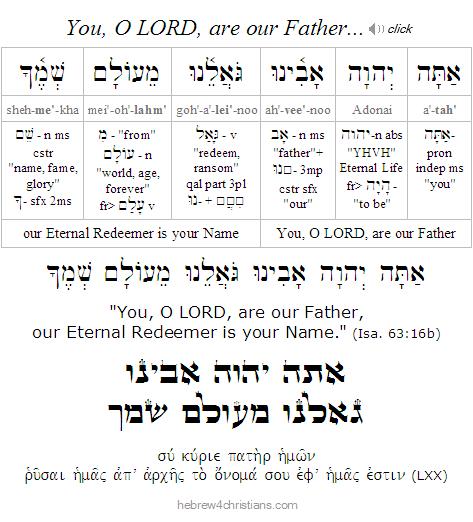 |
The Chanukah Prophecies...

[ The eight day holiday of Chanukah begins Sunday, Dec. 18th at sundown... ]
12.16.22 (Kislev 22, 5783) Many Bible scholars infer that the prophet Daniel (6th Century BC) foresaw the rise of Alexander the Great centuries beforehand in the vision of a "male goat running from the west" that had a conspicuous horn between its eyes (see Dan. 8:1-12; 21-22). This goat destroyed the power of the kings of Media and Persia (symbolized by two horns on a ram, see Dan. 8:20). Though the "goat" (Alexander) became exceedingly great, eventually its horn was "broken into four [kingdoms]," and out of these four horns arose a "little horn" (i.e., the Seleucid king Antiochus "Epiphanes," c. 175-163 BC) who had authority over "the glorious land" (i.e., Israel). This "little horn" (קֶרֶן מִצְּעִירָה) greatly magnified itself, cast down some of the stars (i.e., righteous souls), took away the sacrifices, and defiled the very Sanctuary in Jerusalem. As we will see, Chanukah ultimately is a prophetic message regarding the End of Days and the victory of our Messiah...
Antiochus is perhaps most notorious for setting up an altar to Zeus over the altar of burnt offering in Temple compound and sacrificing a pig within the Sanctuary of the Temple itself. This sacrilege is otherwise known as the "abomination of desolation" (שִׁקּוּץ מְשׁמֵם) that was decreed to occur 2,300 days into Antiochus' reign (Dan. 8:13-14). Notice, however, that Daniel's prophecy has a "dual aspect" to it, and the description of the rise of the "little horn" (in Dan. 8:9-10) suggested something far more portentous than the reign of a local tyrant. This horn "grew exceedingly great toward the south, toward the east, and toward the glorious land. It grew great, even to the host of heaven. And some of the host and some of the stars it threw down to the ground and trampled on them."
In light of other New Testament scriptures, it is clear that this "exceedingly great horn" refers to future world leader (sometimes called the "Antichrist") who would one day attempt to "assimilate" all of humanity into a "New World Order" (Dan. 9:26-27, 2 Thess. 2:3; Rev. 13:7-9, etc.). It is likely that it was this sense of the "abomination that makes desolation" that Yeshua referred to in Matt. 24:15 and Mark 13:14, and it is this "abomination that makes desolation" that will be overthrown by Yeshua at the end of the Great Tribulation period (Dan. 8:23-25; Matt. 24:30; Rev. 19:11-16; 20:2, etc.).
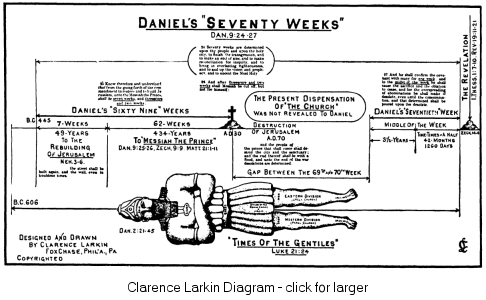 |
The intertestamental Book of Maccabees (c. 2nd Century BC) tell us more about this "little horn" and his vicious oppression of the Jewish people. Antiochus installed Hellenistic Jews to the priesthood and demanded the adherence to Hellenistic cultural ideals. He established edicts that prohibited observing the weekly Sabbath and the other biblical festivals. The reading of the Torah was outlawed and all copies of it were ordered to be burned. Temple sacrifices were forbidden; circumcision was outlawed and the penalty for disobedience was death. Women who disobeyed the edict by circumcising their sons were paraded about the city with their babies hanging at their breasts and then thrown down from the top of the city wall (2 Macc. 6:1-11). Many Jews fled and hid in the wilderness and caves and many died kiddush HaShem - as martyrs (see Heb. 11:36-39). Eventually Jewish resistance to this imposed Hellenization meant war. In 164 BC, in Modin, a small town about 17 miles from Jerusalem, Mattityahu (Matthias), a Hasmonean priest, and his five sons took refuge. When Antiochus' soldiers arrived at Modim to erect an altar to Zeus and force the sacrifice of a pig, Mattityahu and his sons rose up and killed the Syrians. They then fled to the Judean wilderness and were joined by other freedom fighters. After some organizing, they soon engaged in successful guerrilla warfare against their Syrian/Greek oppressors. The three-year campaign culminated in the cleansing and rededication of the Temple (for more on this subject, see Chanukah and Spiritual Warfare).
 |
Hebrew Lesson
Isaiah 60:1 Hebrew reading (click):
Note: For more on this subject, see "Why Christians should celebate Chanukah."
Happy Chanukah!
Joseph and Messiah...

[ The following is related to this week's Torah reading, Parashat Vayeshev... ]
12.15.22 (Kislev 21, 5783) Shalom chaverim. More chapters of the Torah are devoted to the life of Joseph than to the account of creation, the story of Adam and Eve, the flood of Noah, the call of Abram to the promised land, the miraculous birth and (near) sacrifice of Isaac, the transformation of Jacob into Israel, and so on. Perhaps Joseph is given such prominence in Scripture because his life depicted both the Suffering Servant (Yeshua's first advent) and the One who reigns at the right hand of the power on high and delivers Israel (Yeshua's second advent). The life of Joseph provides a "prophetic outline" of Yeshua the Lord, the One who is both Mashiach ben Yosef (מָשִׁיחַ בֶּן־יוֹסֵף), "the Messiah son of Joseph," as well as Mashiach ben David (מָשִׁיחַ בֶּן־דָוִד), "the Messiah the Son of David."
Hebrew Lesson
Isaiah 53:3 Hebrew reading (click):
For more on this subject, including 60 ways in which Joseph prefigured the advent of Yeshua the Messiah, see "Mashiach ben Yosef."
Celebrating Chanukah...

[ The eight-day Festival of Chanukah begins at sundown on Sunday, Dec. 18th this year... ]
12.15.22 (Kislev 21, 5783) Celebrating Chanukah is an easy and enjoyable experience that does not require a lot of cost or effort. All you will need is a Chanukah menorah, a box of 44 Chanukah candles, and a blessings sheet (available free from Hebrew for Christians). Optionally you can get a dreidle to spin for amusement and some Chanukah decorations. Traditionally we eat some simple foods that are cooked in oil, such as potato latkes, kugel, jelly donuts, etc. Overall the mood of the holiday is festive and joyful - a time to remember how God performs miracles for his people as he did for Israel when the holy Temple was recaptured and restored from Greek-Syrian oppressors during the second century B.C.
For each of the days of Chanukah we light candles, kindling one for the first day, two for the second, and so on until we reach the climactic eighth day, when all shine together. Some of the sages say the word "Messiah" (i.e., mashiach: מָשִׁיחַ) may be regarded as an acronym for the phrase "we light throughout the eight days of Chanukah," i.e., מַדְלִיקִין שְׁמוֹנָה יְמֵי חֲנוּכָּה: madlikin (מ) shemonah (שׁ) yemei (י) Chanukah (ח). Indeed, the central lamp of the Chanukah menorah is called the shamash (שַׁמָש), the "Servant" that bears the original flame that kindles all the others. The salvations, wonders, and solace that God performed for us "in those days, at this time" therefore prefigure the greater deliverance we have in Yeshua, the Suffering Servant and Light of the World...
Hebrew Lesson:
Psalm 36:9 Hebrew reading:
תשובה של רחמים
Teshuvah of Mercy...

12.15.22 (Kislev 21, 5783) It's been said that grace is getting what you don't deserve, whereas mercy is not getting what you do... Yeshua said, "Blessed are the merciful (μακάριοι οἱ ἐλεήμονες), for they shall receive mercy" (Matt. 5:7). This is not a reciprocal law like karma, i.e., you get in return what you first give, since we cannot obtain God's mercy as reward for our own supposed merit (Rom. 4:4). No, we are able to extend mercy to others when we are made merciful ("full of mercy"), that is, when we first receive mercy from God. After all, you can't give away what you don't have, and if we have no mercy for others, it is likely that we have not received it ourselves, as the parable of the Good Samaritan reveals (Luke 10:25-8). Your forgiveness is your forgiveness: as you forgive, so you reveal your heart. What you do comes from what you are, not the other way around. We are first transformed by God's grace and then come works of love. We are able to judge others mercifully, with the "good eye," because we come to believe that we are beloved by God.
Hebrew Lesson
Psalm 103:8 reading (click):
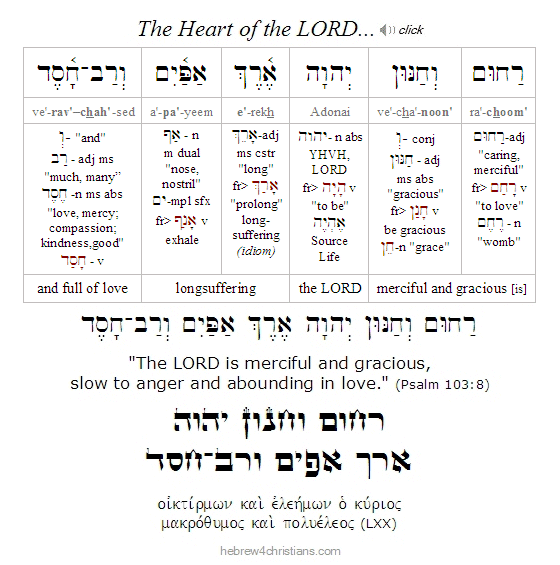 |
The pattern therefore abides: First you realize you are broken, impoverished of heart, and you therefore mourn over your sinful condition. Then you hunger and thirst for God's righteousness, for his healing and deliverance, and you learn to trust the mercy of God, that is, you come to accept that you are accepted despite your unacceptability. You begin to show yourself mercy; you learn to "suffer yourself" and forgive your own evil, and then you extend this mercy to others who are hurting around you... The failure to extend mercy, to demand your "rights" or hold on to grudges, implies that you are relating to God as Judge rather than as Savior (James 2:13). If we condemn what we see in others, we have yet to truly see what is within our own hearts; we have yet to see our desperate need for God's mercy for our lives. If you don't own your own sin, your sin will own you. Being merciful is a response to God's love and therefore is essential to genuine teshuvah... Ask the LORD to help you let go of the pain of the past by being full of mercy toward yourself and others.
תורה לב שבור
Torah of Brokenness...
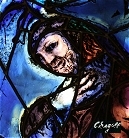
12.15.22 (Kislev 21, 5783) The conventional idea that "God helps those who help themselves" is completely wrong, since it relies upon the wrong source for strength. On the contrary, the truth is found the other way around: God helps those who cannot help themselves. Therefore spirituality necessarily involves an ongoing sense of irremediable brokenness, a feeling that you are not whole, that you are a mess, and that your need for God's healing is constant and relentless...
Contrary to the ideals of proud humanism, spirituality is a state of "blessed neediness," of being "poor in spirit," that aches with inner desperation for God's power of healing. Those who humbly cry out to the LORD understand the human condition: "Woe is me, for I am ruined..." (Isa. 6:5). God hides from the eyes of the proud but is seen by the lowly of heart (James 4:6). As Yeshua said, "Everyone who exalts himself will be humbled, but the one who humbles himself will be exalted" (Luke 18:14).
Take hold of hope, friend: It is surely the will of God for you to find strength in your weakness and comfort in your afflictions. His grace is sufficient (2 Cor. 12:9). As our Scriptures say, God is "the Father of Mercies and God of all comfort" (אַב הָרַחֲמִים וֵאלהֵי כָּל־נֶחָמָה). The Lord "comforts us" (lit., "calls us to His side," παρακαλέω) in our afflictions so that we may be able to comfort those who are afflicted with the same comfort with which we ourselves are comforted by God (2 Cor. 1:3-4).
קָרוֹב יְהוָה לְנִשְׁבְּרֵי־לֵב
וְאֶת־דַּכְּאֵי־רוּחַ יוֹשִׁיעַ
kah-rohv Adonai le-neesh-be-rei - lev
ve·et - dak-kei - roo'-ach yoh-shee'-ah

"The LORD is near to the brokenhearted
and saves the crushed in spirit."
(Psalm 34:18)
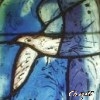
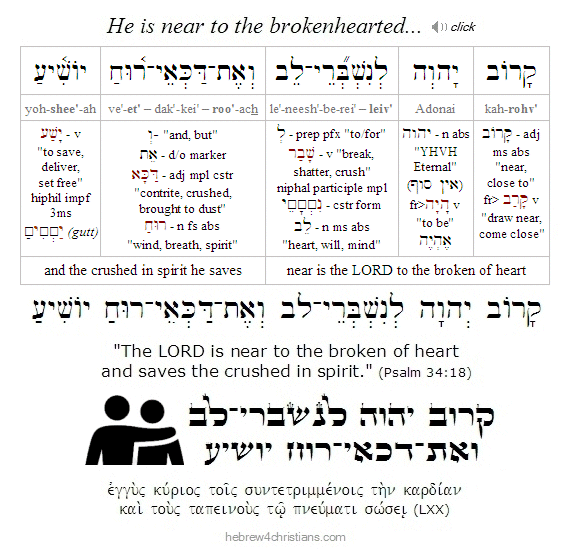 |
"The LORD is near to the brokenhearted and saves the crushed in spirit" (Psalm 34:18). The word translated "crushed" in this verse (i.e., דַּכָּא) is the same word used to describe the suffering and crucifixion of our Messiah in Isaiah 53:5, 53:10, which suggests that there is a connection between our Lord's suffering and our own.... The questioning heart asks why must we suffer, especially in light of the cross of Messiah. Are we not healed by his stripes? Are we not made new? Yes indeed, though we are all called to share in his suffering during this present age (Col. 1:24). "For we know that the whole creation has been groaning together in the pains of childbirth until now, and not only the creation, but we ourselves, who have the firstfruits of the Spirit, groan inwardly as we wait eagerly for adoption as children, the redemption of our bodies" (Rom. 8:22-23). "Though our outer self is wasting away, our inner self is being renewed day by day; for this light momentary affliction (ἐλαφρὸν τῆς θλίψεως ἡμῶν) works within us more and more surpassingly for an eternal weight of glory (ὑπερβολὴν εἰς ὑπερβολὴν αἰώνιον βάρος δόξης κατεργάζεται ἡμῖν) beyond all comparison, as we look not to the things that are seen but to the things that are unseen; for the things that are seen are transient, but the things that are unseen are eternal" (2 Cor. 4:16-18).
Meanwhile we are still broken vessels, we are slowly being turned to dust; our pains and our heartaches are real, and yet all these things are designed by heaven to help us grow for the glory and praise of God's Name. Brokenness distills the intentions of the heart by helping us to be more honest with ourselves. We begin to realize that we are more vulnerable than at first we thought; that our faith is not as strong as we imagined, and that our motives are often mixed and unconscious. Illusions are striped away; idols crumble; deeper levels of selfishness are uncovered; the gap between our words and our deeds is exposed... It is one thing, after all, to intellectually think about faith or to idealize spirituality, but it is quite another to walk out faith in darkness. Yet it is only there, in the rawness of heart, that we discover what we really believe and how our faith makes traction with reality. God uses momentary affliction to work within us an eternal weight of glory...
 |
The Blessing of Humilty...
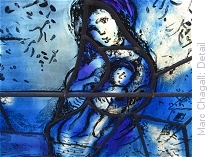
[ "We must at times give up our opinions for the blessing of peace. Furthermore, who is so wide that he can have full knowledge of everything? Do not trust too much in your own opinions, but be willing to listen to those of others." - Thomas a Kempis ]
12.14.22 (Kislev 20, 5783) Often we simply do not know what we are talking about, since matters are almost always more complex than we otherwise imagine. The ancient philosopher Plato regarded knowledge (γνῶσις) as something sacred, as that which is discerned through the careful use of reason that "sees beyond" the shadowy world of flux in order to apprehend what is real. What most people regard as knowledge, however, is what Plato would call "opinion" (δόξα), a supposition that serves only as a first step to knowledge of the truth. Opinion is something between ignorance and knowledge, a state of speculation or conjecture.
Plato illustrated this theory of knowledge by means of his famous "allegory of the cave" (found in his dialog called "The Republic"). The natural state of man is one of ignorance (ἄγνοια). People are yoked to their senses and biases to form prejudicial ideas and beliefs. Since the truth of an idea is constrained by its correspondence to reality, such ideas are based on illusions, whereas knowledge is based on truth that is disclosed by intuitive first principles and the light of reason. For Plato, then, ultimate reality is discovered by the right use of reason as it discerns the divine light that informs all things.
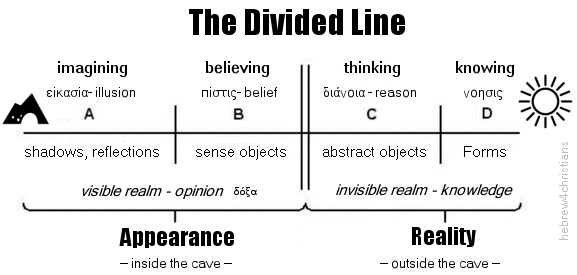 |
Opinion is usually based on unreflective habit or emotion more than a careful search for what is real, and this should admonish us to be humble whenever we make some claim or another that we "know" something. Differences of opinion can divide friends, family members, and even people who share a common faith in the salvation of God.
Left unchecked, cocksure opinions inflate the ego and feed the soul with pride and vanity. There is truth, after all, and there are opinions about the truth, but often we fail to make this distinction as we wrongly assume what whatever we believe is indeed the truth. But judging what is real is an arduous task, since it is difficult to suspend our biases and not to regard things as we wish them to be. Personal feelings can distort our perspective and lead us astray. Our fears, desires, biases, antipathies, and so on, can cloud our judgment. Peer pressure and our emotional desire for belonging to a crowd also impairs our ability to think clearly (think of the "scientism" that marks our age, for instance).
Yeshua warned us not to be quick to judge, especially when reasoning about mere appearances (John 7:24). We are apt to see what we want to see rather than what is real. In light of this, humility is essential: we are all frail people, error prone, full of imperfections, character faults, and so on, and each of us necessarily must make many inferences based on inconclusive evidence. We are finite beings that grope in our understanding of what is true, and because of this we ought to be cautious in our assertions. Therefore dogmatic opinions such as atheism are irrational. As Albert Einstein once said, "I do not share the crusading spirit of the professional atheist whose fervor is mostly due to a painful act of liberation from the fetters of religious indoctrination received in youth. I prefer an attitude of humility corresponding to the weakness of our intellectual understanding of nature and of our own being." We should not regard ourselves as immune from our limited and finite condition, though we should esteem others with face and honor (Phil. 2:3).
Self-deception is commonplace. Most of us don't know as much as we think we know, and our opinions are at best incomplete and often simply wrong. This is especially glaring in the case of the so-called intelligentsia of this world. Think, for instance, of the breathtaking arrogance that is behind various political opinions that have led to wars, propaganda campaigns and disinformation, concentration camps, and the invention of weapons of mass destruction. Or think of medical opinions that have falsified data, promoted injurious vaccinations, and abandoned ethical integrity in obeisance to pharmaceutical profiteering. Other examples could be cited, of course, such as the mandates made by "educators" regarding the indoctrination of metaphysical and sexual values, economic opinions that exploit others, and so on. We would be wise to take Karl Popper's statement to heart: "The more we learn about the world, and the deeper our learning, the more conscious, specific, and articulate will be our knowledge of what we do not know, our knowledge of our ignorance."
Genuine spirituality is grounded in humility. Consider, for example, the confession of our faith that Yeshua as the incarnation of Almighty God. Such paradox leads to mystery, and mystery is a matter of faith. We walk by faith and not by sight, trusting in the unseen presence of God to guide our way and to lead us to what is ultimately real and abiding. The LORD is infinite in understanding; he is beyond our finite thoughts (Psalm 147:5; Isa. 55:8). By faith, which is the necessary precondition for any knowledge whatsoever, we relate to God to find wisdom and grace for our hope.
"Abraham answered and said, "Behold, I have undertaken to speak to the Lord, I who am dust and ashes" (i.e., anokhi afar va'efer: וְאָנֹכִי עָפָר וָאֵפֶר, Gen. 18:27). This teaches that we cannot draw near to God apart from profound humility, since God's truth is revealed to the meek and lowly of heart but remains hidden from the proud (James 4:6). As it is written: "For this is what the high and lifted up One says, the One who abides forever, whose Name is Holy (קָדוֹשׁ): "I dwell in a high and holy place, but also with the broken and lowly of spirit, to revive the spirit of the lowly (i.e., ruach shefalim: רוּחַ שְׁפָלִים), and to revive the heart of the crushed" (i.e., lev nid'ka'im: לֵב נִדְכָּאִים) [Isa. 57:15]. Here we learn that God gives life (revives) to those who are "lowly in spirit" (שְׁפַל־רוּחַ), that is, to those who understand their own nothingness and complete dependence on Him for life...
Moreover, a humble person is an honest person, since honesty compels the soul to confess the truth that it is profoundly ignorant, incapable of understanding even the simplest matters of life, and entirely powerless to heal itself... People argue over words, concepts, and abstractions, inflating their opinions above even the Reality they purport to define, but the humble soul acknowledges that he doesn't really know much about anything... And if "all the efforts of the human mind cannot exhaust the essence of a single fly," then how is it that people get puffed up and proud regarding their supposed knowledge of God Himself? Far better to approach God in deep reverence, wonder, love, and childlike trust than to profess a theology based on pride and illusions...
Thomas Aquinas' most significant work was his Summa theologiae or 'Summary of Theology,' a massive book that attempted to "systematize" all of Christian theology. He worked on it for many years, but when he was nearly finished he underwent a spiritual experience that, as he himself explained, made everything he had written "seem like straw." He thereafter gave up writing about "theology" after he encountered the Reality itself. You may perfect doctrine and exist untruthfully, whereas you might not have perfect doctrine, but exist truthfully. The devil knows how to quote Scripture, and often does so, but is a devil still.
Of course truth is important, and we ask for God's revelation by the power of the Holy Spirit, but this means knowing from a place of real humility... We must follow the path of peace, even if that requires that we "overlook" some of our doctrinal convictions for the sake of love. I don't mean we should throw away our principles, God forbid, but we rather hold them with an inward passion that is at the same time willing to be overlooked, to suffer, to be misunderstood, and even to be mistreated by others. The key here is not be indulge in self-pity or resentment, which does no good. And above all we ask God for divine wisdom. God is faithful and true; if we ask Him for bread, he won't give us a stone (Luke 11:11).
Ezehu chacham (אֵיזֶהוּ חָכָם): "Who is wise?" The person who learns from everyone. Ezehu gibbor (אֵיזֶהוּ גִבּוֹר): "Who is mighty?" The person who conquers his impulses. Ezehu ashir (אֵיזֶהוּ עָשִׁיר): "Who is rich?" The one who is happy with his lot. Ezehu me'khubad (אֵיזֶהוּ מְכֻבָּד): "Who is to be honored?" The one who honors his Creator (Avot 4:1).
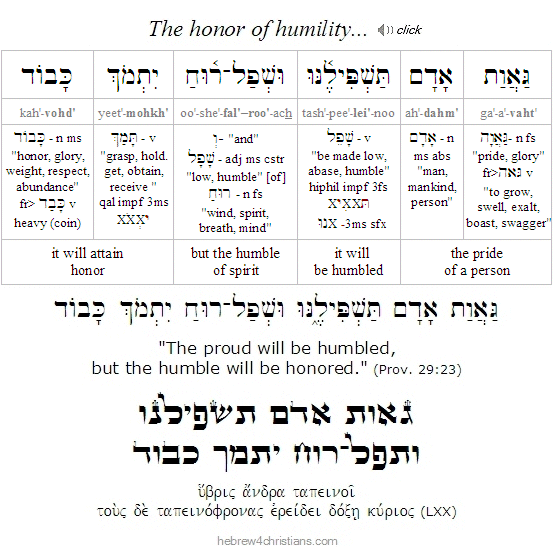 |
Sanctifying the Name...

[ "God, Who is everywhere, never leaves us. Yet He seems sometimes to be present, sometimes to be absent. If we do not know Him well, we do not realize that He may be more present to us when He is absent than when He is present." - Thomas Merton ]
12.14.22 (Kislev 20, 5783) The reason for what happens in our lives is often (always?) beyond our understanding, yet the righteousness of God's plan – even if undisclosed to us - must be accepted by faith. When Job was tested with trouble and suffering he said, "The LORD gives; the LORD takes away; blessed is the name of the LORD" (Job 1:21), and he later reaffirmed his conviction that God was to be trusted, despite the darkness and pain he was experiencing: "Should we receive what is good from God, but not receive what is evil?"he asked (Job. 2:10). The Torah of Job teaches us that all things - both the good and the evil - are under the sovereign control of the LORD, and since "all things work together for good" (Rom. 8:28), we trust God and bless Him for perceived evil as well as for perceived good. Despite appearances that sometimes seem to the contrary, we believe in an all-powerful, supreme LORD who has not abandoned the world, but who actively sustains and upholds it with benevolent intent. "We walk by faith and not by sight" (2 Cor. 5:7). When bad things happen to the righteous, we trust in God's personal care for their ultimate good, despite their present troubles (Jer. 29:11). As Job further said: "Though he slay me, I will trust in Him" (Job 13:15). This is the heart behind the Kaddish, the mourner's prayer, that expresses acceptance of God's world, despite the pain, sorrow, loss, and so on....
In this life we "see through a glass darkly" and therefore we must surrender our need to understand God's sovereign purposes: "As the heavens are higher than the earth, so are my ways higher than your ways and my thoughts than your thoughts" (Isa. 55:9). There is danger here, for if we refuse to accept what we cannot understand (or change), we wil find ourselves in further pain and exile. Indeed exalting our need to "understand" or justify suffering is a hopeless venture, and it is also a category mistake -- as if an intellectual "answer" could assuage the emotional pain and loss we experience... Faith goes beyond the realm of reason to trust in God's goodness and care, especially when we are enshrouded within a "dark cloud of unknowing." Surely our Lord understands the test (i.e., our need to practice trust) and therefore Spirit encourages us: "Let him who walks in darkness and has no light trust in the name of the LORD and rely on his God" (Isa. 50:10).
There are many people who find it difficult to accept the idea of God -- not because of the "problem of evil," that is, the puzzle of why an all-powerful and all-loving God would allow so much suffering and pain to be present in the world, but rather because of the problem of their own secret fears, their own personal heartaches, their own searing disappointments... A person who was abused or mistreated as a child might reason that if God wasn't there for them when they needed him most, that is, when they were in such a helpless state, how can they trust in him when facing the abandonment of their own death? The question is not intellectual but emotional; a matter of trust, not of rationalization. Comfort is what is needed, that is, the assurance that God is nevertheless for you, that he is your friend, your good shepherd, even if you were to be thrown into a fiery furnace... Bonhoeffer went through the death camps, trusting God to the day he was hanged. He never gave up hope, even in the midst of all that darkness. Bonhoeffer died kiddish HaShem, sanctifying the Name of the LORD: Adonai natan, va'Adonai lakach; yehi shem Adonai me'vorach (Job 1:21).
Hebrew Lesson
Job 1:21b reading (click):
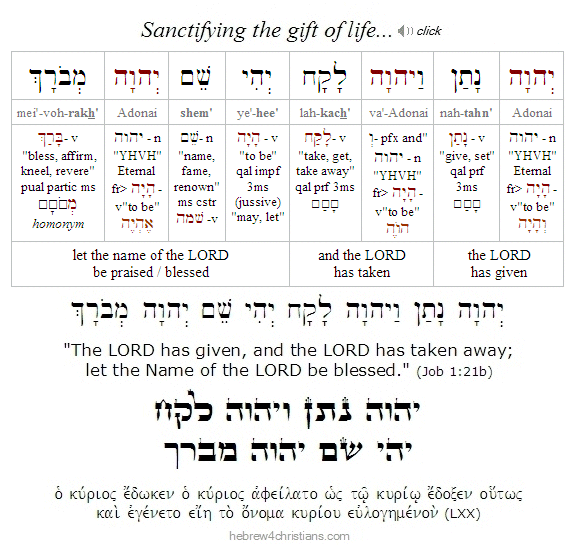 |
It is written, "Your eyes saw me when I was inside the womb. All the days ordained for me were recorded in your scroll before one of them came into existence" (Psalm 139:16). In light of God's providential ordering of our lives, Blaise Pascal asked, "What is left for us but to unite our will to that of God himself, to will in him, with him, and for him the thing that he has eternally willed in us and for us." The Mishnah says it this way: "Do His will as if it was your will that He may do your will as if it was His will" (Avot 2:4). In other words, what else can we do but learn to trust, accept, and to say "yes" to life -- even if at times we may feel like orphans, lost in a fatherless world... All our days are recorded in God's scroll.
Again, where it says, "Ve'ahavta et Adonai be'khol levavkha" – you shall love the LORD your God with all your heart" (Deut. 6:5) that includes both your "good heart" and your "bad heart" – that is, all of you, all of your being, all of your soul. So come as you are - broken, fragmented, divided within - and ask God to unify your heart by the miracle of his grace...
Hebrew Lesson
Job 2:10b reading (click):
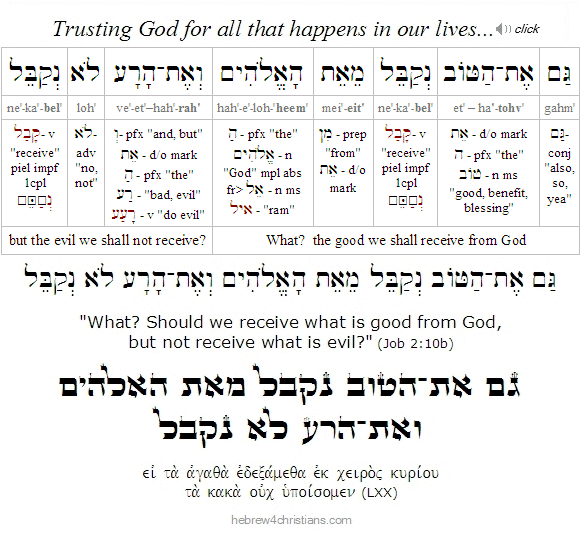 |
The War for Truth...
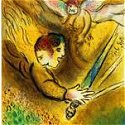
12.13.22 (Kislev 19, 5783) The holiday of Chanukah reminds us that we must remain committed to Torah truth in a godless, and therefore insane, world. After all, since reality is the "handiwork" (i.e., conscious design) of an all-powerful, all-knowing, all-loving, morally perfect, purposive, personal, and spiritual Agency who has been revealed in the Jewish Scriptures, those who deny this reality are living in a state of ongoing delusion. In a sense, the history of humanity - especially as it has been expressed philosophically and politically -- has been nothing less than the conscious design to redefine reality as something that it isn't. "The kings of the earth station themselves, and the dignitaries take counsel together against the LORD and His Messiah" (Psalm 2:1-3). Spiritual warfare is therefore the fight for sanity and truth in a world that prefers madness and self-deception.
In a prophetic sense the story of "Epihpanes" foreshadows the coming time of the "Messiah of Evil" (antichrist) who will one day attempt to "assimilate" all of humanity into a "New World Order" (Dan. 9:27, 2 Thess. 2:3; Rev. 13:7-9, etc.). At first he will appear to be a "world savior" who will broker peace for Israel and the Mideast, but after awhile, like his archetype Epiphanes, he will savagely betray the Jewish people and set up a "desolating sacrilege" in the Holy Place of the Temple (Matt. 24:15). His satanic rise will occur during acharit hayamim - the "End of Days" - otherwise called the period of the Great Tribulation (Matt. 24). The Final Victory of God will be established when Yeshua returns to destroy this Messiah of Evil at His Second Coming. The Holy Temple will then be rebuilt and dedicated by the hand of the true Mashiach of Israel.
The Gemara says that Javan, the descendant of Noah's son Japheth (Gen. 10:2), became the founding father of ancient Greece who inherited Japheth's blessing: "May God give beauty to Japheth (יַפְתְּ אֱלהִים לְיֶפֶת) and let him dwell in the tents of Shem" (Gen. 9:27). This blessing gave him the special ability to found the arts, philosophy, and science, though if these were exercised apart from the influence of Shem, that is, apart from a Torah perspective, such pursuits would ultimately become vain and even dangerous. In other words, even though "all truth is God's truth," human learning must be contextualized in light of the divine revelation. The humanistic mindset deifies knowledge and technique; it understands to believe, instead of believing to understand. For this reason, among others, the spiritual war between Zion and the secular world rages to this hour...
Hebrew Lesson
Psalm 27:1 reading (click):
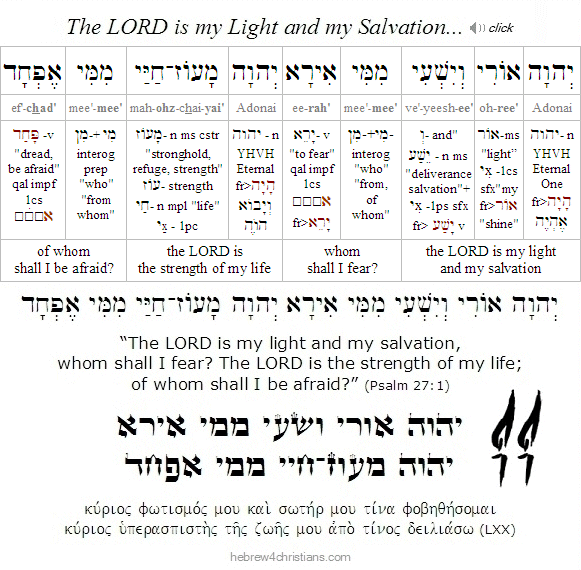 |
Note: For more on this enrty, please see "Chanukah and Spiritual Warfare."
This is the Day...

12.13.22 (Kislev 19, 5783) God's Name is "I-AM-with-you-always," Emanu'el (עִמָּנוּ אֵל) - always in the midst of you, your heart, your Center (Matt. 28:20; Isa. 41:10, Psalm 23:4, etc).... The LORD is so named because he is never without his own, and we are who we are in relation to his presence in our lives. Yeshua is not simply the Lord of the past or the Lord of the future, but the Lord of this moment, this "here" and this "now." He is the same yesterday, today, and forever - the breath of life, our sustaining hope, the Shepherd of our souls... Whatever else may come of this day, this is the day that the LORD has made, and we find peace in God's Presence... Let us look to Him in this hour!
Hebrew Lesson:
Our Seeking Shepherd...

[ "Grace is not looking for good men whom it may approve, for it is not grace but mere justice to approve goodness. [Rather] it is looking for condemned, guilty, speechless and helpless men whom it may save, sanctify and glorify." - C. I. Scofield ]
12.13.22 (Kislev 19, 5783) "Those who are well have no need of a physician, but those who are sick" (Matt. 9:12). Even though we are weak, sickly, broken, and sinful people, we must never lose hope and begin to fear that we are worthless in the eyes of heaven... Indeed, our infirmities are often a blessing in disguise, a gift that reveals our need...
If you are sinful and sick, you are invited to come before the Master for life and rescue from the power of sin. Take your place among the lepers, the tax collectors, the outcasts... you will never hear Him criticize you or shame you for sincerely coming to Him for healing of your sinful state... "For the Son of Man came to seek and to save the lost" (Luke 19:10).
Yeshua is the Good Shepherd (הָרעֶה הַטּוֹב) who leaves his "flock of 99" sheep to find the one sheep who is lost (Matt. 18:12-14). He is always like that – He is always seeking and saving the lost sinner; He is always offering life and healing to those who have been made sick with the plague of sin. Thank God we have a Savior who seeks us out in our desperate need!
Hebrew Lesson
Ezekiel 34:16a reading (click):
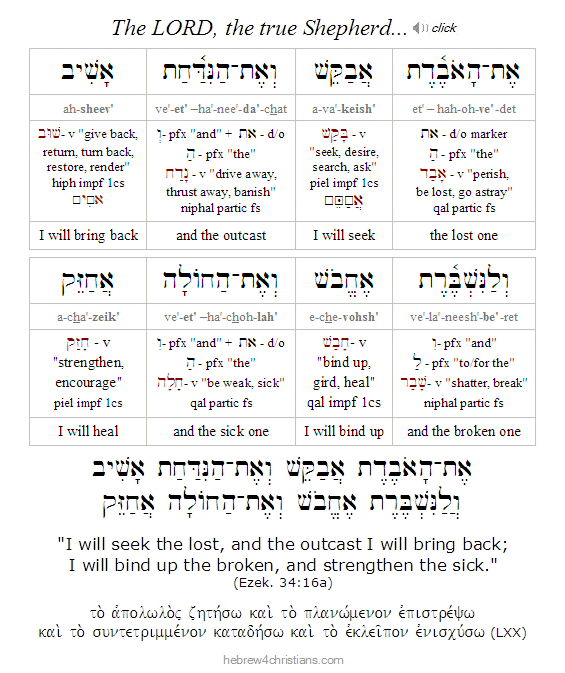 |
King David wrote, "You have given those who fear you a banner (נֵּס לְהִתְנוֹסֵס) for the sake of the truth" (Psalm 60:4), which Rashi interprets as, "You have given hardships and suffering to those who fear you to elevate them in the way." Indeed the word nes (נֵּס) can mean "banner" (as on the mast of a ship), a "sign" (or miracle), or a "test" (nisayon). God tests those who fear Him in order to help them become a miraculous sign to the world at large. Ultimately, the sign or miracle is the gift of Messiah's suffering on our behalf and His resurrection for our justification (Isa. 11:10). Even in the face of our enemies who have breached the land, we have the promise of victory in Adonai Nissi (יְהוָה נִסִּי), God my Miracle.
May you, broken and contrite one, hear the word of His hope calling out for your soul... He is your Shepherd, your Healer, and your Miracle. May you come beneath His banner of truth and love to find eternal refuge.... Amen.
Coming to yourself...
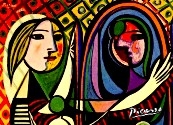
12.12.22 (Kislev 18, 5783) "And when he came to himself, he said, 'I will arise and go to my father'..." (Luke 15:17-18), yet behold! the father had remained all the while with his heart yearning for his lost child, eager to celebrate his homecoming when that day should come. His "address" (המקום) had not changed... But what if, then, the "prodigal" had left yet a second time? Would the heart of the father change toward his child? Would the father's heart turn cold? No, never! Every time the child would "come to himself" he would be welcomed back into the arms of his waiting father, unto "seventy times seven times" (Matt. 18:21-22). And therefore every time we remember the truth of who we are we rediscover the truth of God's love -- that God is ready to embrace us, to restore us, to robe us in splendor and celebrate the miracle of our lives...
"Come unto me, all who labor and are heavy laden, and I will give you rest" (Matt. 11:28), and that means we keep coming, despite the lonely wanderings we sometimes make into the darkness of our pain, our anger, our fear, and our sin... The heart of heaven beckons us to keep coming back; the Spirit invites us to turn again to face the light, to accept who we really are as God's child, and to receive the blessing of our place in God's heart. Therefore may you "come to yourself" and return to your father today.
Hebrew Lesson
Malachi 3:7 Hebrew reading (click):
Lonesome Visions...

[ "All truth passes through three stages. First, it is ridiculed. Second, it is violently opposed. Third, it is accepted as being self-evident." - Arthur Shopenhauer ]
12.12.22 (Kislev 18, 5783) People often resist when they are asked to face reality, and therefore a true prophet is often misunderstood... We see this, for instance, in the case of Joseph, the family's prophet, who, after he shared his visions, found the contempt of his brothers and the incredulity of his father (Gen. 37:10-11). This is the heartache of the prophet who is so impassioned about truth that it may lead him to lonely places, set apart from others, yet still burdened to share his vision with those who are willing to hear.
What good is prophecy, after all, apart from love? Or what good is knowledge, and even faith? (1 Cor. 13:2). The prophet "crosses over" and then is burdened with his vision. Rarely does he gain acceptance, since he asks us to see differently; unsettling our convictions, challenging our certainties. To a culture immersed in its delusions (including scientific, political, sexual, and religious delusions) the prophet will always be marginalized, since the "world" constantly seeks to escape from reality and therefore cannot tolerate voices of real conviction.
Deut. 4:24 Hebrew reading (click):
Parashat Vayeshev - וישב
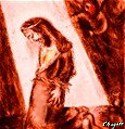
[ In our Torah for this week we read how Joseph's jealous brothers stripped him of his "coat of many colors" and threw him into a pit -- a providential event that eventually led to the deliverance of the Jewish people by the hand of a "disguised savior." Indeed, the life of Joseph foreshadowed the two advents of Yeshua our Messiah: first as Israel's Suffering Servant and second as the national deliverer of the Jewish people during the time of great tribulation... ]
12.11.22 (Kislev 17, 5783) Last week's Torah (i.e., parashat Vayishlach) recounted how Jacob had wrestled with a mysterious Angel before returning to the Promised Land to be reconciled with his brother Esau. This week's portion (i.e., parashat Vayeshev) begins with Jacob living back in the land promised to Abraham and Isaac with his 12 sons, but the narrative quickly turns to Jacob's favorite son Joseph, who was seventeen years old at the time. The Torah states that Jacob loved Joseph more than all his other sons since he was "the son of his old age," and he was the firstborn son of his beloved wife Rachel. Indeed, Jacob made him an ornamented tunic to indicate his special status in the family.
As the favored son, Joseph's job was to oversee the activities of Jacob's concubines sons (Dan, Naphtali, Gad, and Asher) and to bring "reports" about their activities back to Jacob. However, this role as the overseer and "favored son" was too much for the other brothers, and they became jealous of him and hated him. To make matters worse, Joseph related two dreams to his brothers that foretold that he was destined to rule over them, increasing their envy and hatred of him (the implication of the dreams was that all of Jacob's family would become subservient to him). Jacob rebuked Joseph for arousing his brothers' hatred, but he inwardly took note and waited for the fulfillment of the dreams.
The portion records that one day the brothers went out to pasture their herds, but when they saw Joseph coming to check on them, they conspired to kill him, though later they decided to sell him to some slave traders instead. The brothers then staged Joseph's death by dipping his special tunic into goat's blood and bringing it to their father, who was deceived into thinking that Joseph had been killed by a wild animal.
Meanwhile Joseph was purchased at a slave trade by Potiphar, a captain of Pharaoh's guard. The LORD was "with Joseph," however, and blessed everything he did. In fact, soon he was promoted to be the head of Potiphar's entire household affairs. Potiphar's wife then began enticing Joseph to have an affair with her, and though he steadfastly refused her advances, she later falsely accused him of attempted rape. Potiphar was understandably outraged (at his wife?) and threw Joseph into the royal prison, but again God showed him favor there and soon was appointed to a position of authority in the prison administration.
The portion ends with two prophetic episodes in Joseph's life that eventually would bring him to the attention of Pharaoh himself. While in prison, Joseph met Pharaoh's wine steward and chief baker, both incarcerated for offending their king (according to Rashi, a fly was found in the goblet prepared by the butler, and a pebble in the baker's confection). Both men had disturbing dreams which Joseph correctly interpreted; in three days, he told them, the wine steward would be released but the baker would be hanged. Joseph then asked the wine steward to advocate for his release with Pharaoh. Joseph's predictions were fulfilled, but the wine steward forgot all about Joseph.
Hebrew Lesson:
Genesis 37:1 Hebrew reading:
Holiday Alert: Chanukah...

This year the eight days of Chanukah begin on Sunday, December 18th at sundown (1st candle) and will run through Monday, December 26th (until sundown). The tradition is that on the first night of Chanukah one flame is lit, on the second night two, and so on until the eighth night when eight flames are lit. In this way we remember the 'growth' of the miracle.
The Torah of Wresting...
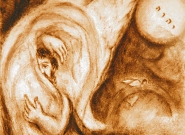
12.09.22 (Kislev 15, 5783) Yeshua warned those who professed faith: "Not everyone who says to me, 'Lord, Lord,' will enter the kingdom of heaven, but the one who does the will of my Father who is in heaven. On that day many will say to me, 'Lord, Lord, did we not prophesy in your name, and cast out demons in your name, and do many mighty works in your name?' And then will I declare to them, 'I never knew you; depart from me, you workers of lawlessness'" (Matt. 7:21-23). Despite the practice and profession of their faith, these people were strangers to God... They had a false sense of assurance, believing that they were "serving God" when they were not... So the essential question here is whether Yeshua truly knows you. You may know a lot about God, religion, spirituality, and yet you may remain unknown by him... So where do you find life? What are you loving? Where are you going?
"Not everyone who says to me, 'Lord, Lord,' will enter the kingdom of heaven, but the one who does the will of my Father who is in heaven" (Matt. 7:21). Yet what is the will of the Father but to trust in Messiah for life (John 6:40)? "What must we do, to be doing the works of God?" Yeshua answers: "This is the work of God (Τοῦτό ἐστιν τὸ ἔργον τοῦ θεου), that you believe in the One whom he has sent" (John 6:28-29). The Torah of God centers on trusting the Messiah (Titus 3:5-7).
On that day many will say to me, 'Lord, Lord, did we not ... do many mighty works in your name?' And then will I say to them, 'I never knew you; depart from me, you workers of lawlessness' (Matt. 7:22-23). From this we see that good works - even those done in the name of Messiah - are insufficient for life, and that something more is needed... That "something more" is the reality of relationship with him. However, even Yeshua's sacrifice on the cross can't bring you into relationship with him apart from receiving it for your healing... By faith you encounter Yeshua clothed in your flesh, your sin, and suffering death for you. "As long as Christ remains outside of us we are separated from him."
Some people feel frightened when they consider all this, but fear arises only if we miss Yeshua's point... Good works can't save you, even those performed in the Savior's name... What saves you is trusting in God's great love for your life. Again, "this is the work of God, to trust in the One whom God has sent [for you]" (John 6:28-29). Genuine salvation is "from the LORD" (יְשׁוּעָתָה לַיהוָה) that is, comes as a result of his loving intervention on your behalf (Titus 3:5-7; Eph. 2:8-10). This is the will of the Father, the true Torah of the LORD, namely, to honor the Messiah and know him by faith... You trust him for eternal life, you believe that he bears your sins, you seek to know his heart, and you desire to share your life with him. It is lawlessness to reject the Torah of the LORD that commands us to follow Messiah and know him in all our ways - including the ways of our struggles, our fears, and so on...
Each of us must wrestle alone, in the dark places of fear, to find our new name from God (Gen. 32:24). Is the blessing for you or not? The essential thing is to know (and more importantly) to be known by Yeshua.... It is a matter of trust, of sharing your heart, being real with him, walking with him, loving him... "This is the work of God, to trust in the One whom God has sent [for you]." Trusting in the Lord means accepting that you are truly loved (and made safe) because of who God is...
The gospel is "the power of God for salvation to everyone who believes, to the Jew first and also to the Greek" (Rom. 1:16). It is a miracle of being in a right relationship with God. We are pursued by his love, and he haunts us until we surrender to his will... Like Jonah we first must be "swallowed up" in consciousness of our own rebellion before we realize we are undone, that we are without remedy apart from God's intervention and deliverance. We start there - in the "belly of the fish" - and later are resurrected to go forth by God's mercy and grace. As we look to Yeshua, as we lean on him, he reveals more of himself to us. He gives us the grace and strength we need; he is always enough...
Whether Yeshua is living in you (and you are living in Him) is the most important question of your life upon which everything else turns. The great mystery is "Christ in you, the hope of glory" (Col. 1:27). As Ravenhill once said, "I don't ask people if they're saved anymore; I look them straight in the eye and say, "Does Christ live inside you?" Indeed, He is present right now -- for you -- in this very moment... Are you connected with Him in the truth? Are you drawing life from His life? Do you really live in Yeshua? "God is making his appeal through us. We implore you on behalf of Messiah, be reconciled to God" (2 Cor. 5:20).
So again I ask: Is the blessing for you or not? Are you willing to be loved and accepted by him? What is your name? What do you call yourself? You cannot know God apart from his love, yet for some people that is exactly where the struggle lies... Look within your heart; test yourself; do you believe God cares for you? Take hold of the promise and do not let go until you know who you are in his love. "To the one who conquers I will give some of the hidden manna, and I will give him a white stone, with a new name written on the stone that no one knows except the one who receives it" (Rev. 2:17).
Repeat these affirmations of faith:
The blessing is there for you, though you might need to wrestle in faith to fully take hold of your identity in Christ. May God help you answer to the new name he calls out to you...
Audio Podcast:
Matters of First Importance...
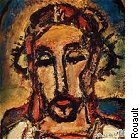
[ Please see the link at the end of this entry for the entire enrtry. Shalom chaverim. ]
12.09.22 (Kislev 15, 5783) The Apostle Paul summarized the message of the gospel by means of four empirical propositions, namely: 1) that Messiah died for our sins according to the Scriptures; 2) that he was buried; 3) that he was raised on the third day according to the Scriptures; and 4) that he was seen alive by various eyewitnesses after his death (see 1 Cor. 15:1-8). Paul went on to argue that the reality of the resurrection is the center of salvation, for if Yeshua had not been raised from the dead, his repeated declarations that he would suffer, die, and come back to life would be untrue, and therefore we would still be captive to our sins. The great fact that Yeshua was indeed raised from the dead, however, demonstrates that his mission to redeem humanity was successful, and that death has been "swallowed up" by means of his victory over the curse of sin (1 Cor. 15:36). This is the core message that Paul regarded as being of "first importance" and essential to salvation.
Now if we take a moment to reflect on Paul's summary, we soon realize that he had made certain assumptions that were presupposed in his description of the essential gospel message. First, of course, is that his summary declaration appeals to the reliability and trustworthiness of the Jewish Scriptures (as clearly indicated by the repeated phrase "according to the Scriptures" (κατὰ τὰς γραφάς). If someone were to question why they should believe what the Jewish Scriptures say, Paul would have had to provide "evidential reasons" for their authenticity, veracity, and credibility, since he couldn't just appeal to the Scriptures to establish their truth without begging the question. This in turn would have implied appealing to the historical experience of the Jewish people, including their origin as the descendants of the patriarchs Abraham, Isaac, and Jacob, their 400 year enslavement in Egypt, their deliverance from bondage during the Exodus, the awesome revelation of the Torah given at Mount Sinai, and so on.
As one trained in the learning of the Pharisees (Acts 22:3), it is likely Paul would have retold the grand narrative of the Jewish Scriptures, beginning with the creation of Adam and Eve, their transgression and exile from the original paradise, and the subsequent degeneracy of the human race. Paul would have explained the deliverance of Noah from the worldwide judgment of the flood and the subsequent genealogy of Noah's sons culminating in the advent of Abraham, the first patriarch of the Jewish people. The history of Abraham, Isaac, and Jacob would be retold particularly in relation to the oath of blessing and the divine promise regarding the coming "Seed" (i.e., descendant) who would be the Heir and Savior of the world. Paul would then have reviewed the history of the Israelites and their deliverance from slavery in Egypt under Moses, the giving of the law code and the covenant at Sinai, the vision and establishment of the Tabernacle (and later the Temple in Jerusalem), and so on.
Throughout his historical review Paul would have focused on how Yeshua fulfilled the prophetic promises of God regarding the coming of the Messiah, quoting from the Torah, the Writings, and the various prophets of Israel. Moreover Paul would have appealed to the great oral tradition of the tzaddikim, the faithful ones of Israel, who were eagerly awaiting the coming of the Messiah.
If someone persisted to question the truth of the testimony of Scripture, it is likely Paul would have appealed to the meticulous scribal traditions of Israel, how the texts were scrupulously preserved for millennia using the most rigorous of standards of scribal transmission (soferut), and so on. Regarding the identity of Israel's promised Messiah, Paul would have appealed to the various prophetic witnesses recorded in Scripture, words from Abraham, Jacob, Moses, King David, Isaiah, Jeremiah (among others), as well as eyewitness reports regarding the miracles of Yeshua, including his own personal encounter with the risen Lord on the road to Damascus (Acts 9:3-19; Acts 26:12-18; Gal. 1:11-16; Phil. 3:3-7; Acts 17:17). Paul also would have appealed to extra-biblical sources of confirmation of the testimony, such as historical accounts of the life of Yeshua by his contemporaries, including accounts provided by the Jewish Sanhedrin and Roman officials regarding his crucifixion. In addition, Paul would have provided logical reasons for faith, including the argument from creation (Acts 17:24-28; Rom. 1:20), arguments from moral experience and conscience (Rom. 2:14-15; 2 Cor. 5:11), and arguments from intuitive awareness of God's existence as the first cause of existence (Rom. 1:18-20; Acts 17:28). It was Paul's custom to reason with his fellow Jews from the Scriptures regarding the truth of the gospel message (Acts 17:2, Acts 18:4), but to Gentiles who did not know the Torah he used logic, appeals to empirical fact, common religious sentiment, and sometimes philosophical reasoning to make his case for the truth of special revelation (Col 2.8; 1 Cor. 9:22; Eph. 4:17-24).
Concerning the more philosophical approach, Paul would have argued on behalf of basic monotheistic personalism, that is, the idea that there is one (and only one) God who is a omniscient (all-knowing), omnipotent (all-powerful), omnibenevolent (all-good), and who is the Source of all moral truth (Deut. 6:4-6; Psalm 139:17; Psalm 78:41, etc.). As the Supreme Being, God is One (not two or more) and the universe is a "creature" brought into existence yesh me'ayin, "out of nothing," that is, by an act of God's sovereign will. God is transcendent over creation yet immanent within its sustenance (Heb. 1:3; Col. 1:16-17, John 1:3; Rom. 11:36). This implies that reality is "two-tiered," composed of both material and spiritual dimensions, though humanity is thought to bridge both realms by being a physical creation endowed with a spiritual soul. God is reveal in "anthropomorphic" terms because human beings are made in the divine image and likeness (Gen. 1:26), and the spiritual is discerned through analogy with the physical (2 Cor. 2:11-13). The spiritual realm is revealed by God in two primary ways: 1) by general revelation (i.e., intuitive awareness of first principles of reason and logic that God exists and is the source of reality, see Rom. 1:19-20; Acts 14:17; Psalm 19:1, etc.) and 2) by special revelation (i.e., God interacting with select individuals in history who were entrusted to preserve and proclaim his message to others, see Deut. 4:7-8; Psalm 103:7; 147:19-20; John 4:22; Rom. 3:1-2; 9:4, etc.). Those narratives and words of special revelation esteemed as Scripture provide a semantic matrix for understanding the human condition of alienation, suffering, and the problem of death, apart from which the gospel message cannot be understood or proclaimed. For instance, the revelation at Sinai to the Jewish people distills and enshrines both the moral imperatives of human conscience as well as the need for blood atonement and deliverance from the guilt of sin (Lev. 17:11). The "korban principle" of "life-for-life" vicarious substitution was prefigured in the primordial garden (Gen. 3:21), symbolized in the sacrifice of Isaac (Gen. 22; Heb. 11:19), foretold in the Passover sacrifice of the lamb of God (Exod. 12:21-27), enshrined in the sacrificial system of the Mishkan by the "korban tamid," or daily offering, of the lamb (Num. 28:1-8); dramatized in the elaborate Yom Kippur ritual that culminated with the sacrificial blood being put over the broken tablets of the law in the holiest place (Lev. 16; Heb. 9), and so on. All of these special revelations signified the coming Redeemer of Israel, the great Lamb of God who takes away the sins of the world (John 1:29).
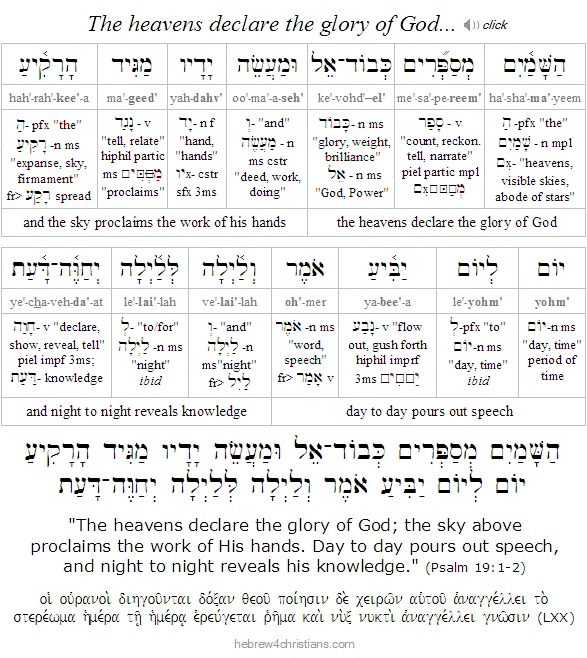 |
The advent of "God in the flesh," that is, incarnation of Yeshua, however, is the climax of all special revelation, the ultimate "Word of God" (John 1:1-14). Yeshua, who is fully God and the Creator of the universe (John 1:1-3; Col. 1:15-17; Heb. 1:3; Isa. 44:6; Rev. 22:13, etc.), emptied himself of all regal glory by clothing himself in human flesh to become the "Second Adam" and the atoning sacrifice for the fallen human race (Phil. 2:7; 2 Cor. 8:9; Rom. 8:3). Yeshua was "born to die" as humanity's exchange (1 Cor. 15:45; 2 Cor. 5:21). The "deeper truth" of grace is thereby revealed: because of Yeshua's intercession, the verdict of the law is overcome by God's mercy and yet God is both fully just (in upholding the verdict of the law) yet the justifier of the ungodly who trusts in the divine work of deliverance given in Messiah (Rom. 3:26; Psalm 85:10; John 1:17). The resurrection further reveals not only that Yeshua died for our sins but that his sacrifice was fully accepted for our atonement. Faith in his sacrifice for your sins means you trust that his blood was shed for you, that his resurrection means that he is alive, your Living God, Redeemer, and Savior.
Note: Charles Spurgeon once prophetically said: "A time will come when instead of shepherds feeding the sheep, the church will have clowns entertaining the goats." This article, I hope, moves in the way of the Shepherd who offers the bread of truth for his sheep:
From Darkness to Light...
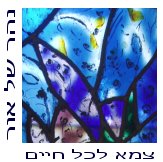
[ "Is it not wonderful news to believe that salvation lies outside ourselves?" - Luther ]
12.09.22 (Kislev 15, 5783) It is written in our Scriptures that the very purpose and goal of salvation is for us "to turn from darkness to light and from the power of Satan to God" (Acts 26:18). Hashivenu, Adonai... When the darkness seems to enshroud your way, pray for God's light to be rekindled within your soul. Keep faith that your gloom will soon pass, and that darkness and despair will not be your final end. Your mourning will find its comfort, your tears will be wiped away, and your grief will find its solace... Ask God to transform your heartache into the holy resolve to live and die for the truth of His great love.
The Light of Chanukah...
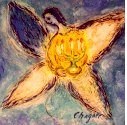
[ The eight day holiday of Chanukah begins Sunday, December 18th at sundown this year. ]
12.09.22 (Kislev 15, 5783) The Hebrew word Chanukah (חֲנֻכָּה) means "dedication" and marks an eight day winter celebration that commemorates the victory of faith over the ways of speculative reason, and demonstrates the power of miracle in the face of mere humanism. Although it is customarily observed as a "Festival of Lights," Chanukah is better understood as a "fighting holiday," since its central message is to resist assimilation to this world and to exercise faith in the LORD (1 John 2:15; Rom. 12:2). For us, Chanukah further remembers the light of Yeshua, the One who overcame the world for us (John 16:33).
Notice that the word chinukh (חִנּוּךְ), "education," shares the same root as the word chanukah (i.e., chanakh: חָנַךְ). Unlike the Greek view that regards education as a pragmatic process of improving one's personal power or happiness, the Jewish idea implies dedication/direction to God and His concrete purposes on the earth: "Train (חֲנךְ) a child in the way he should go..." (Prov. 22:6). Disciples of Yeshua are likewise called talmidim (תַּלְמִידִים) -- a word that comes from lamad (לָמַד) meaning "to learn" (the Hebrew word for teacher is melamad (מְלַמֵּד) from the same root). In the Greek New Testament, the word "disciple" is μαθητής, a learner or a pupil of a διδάσκαλος, or a teacher. True education is therefore foundational to being a disciple of the Messiah.
An essential part of our education in the Holy Spirit is to learn our identity as God's beloved children (1 John 3:1; James 4:4). We are to know ourselves in terms of what God has done for us, and not as the world defines us (2 Cor. 5:16). "If then you have been raised with Messiah, seek the things that are above (τὰ ἄνω ζητεῖτε), where the Messiah is seated at the right hand of God; focus your thoughts on the things above - not on things here on earth - for you have died, and your life has been hidden with Messiah in God" (Col. 3:1-4).
If we are spiritually identified with Yeshua, we are "dead" to this age (olam hazeh) and awakened to a realm that transcends the appeals of the flesh (olam habah). We no longer live chayei sha'ah (חַיֵּי שָׁעָה, "fleeting life") but chayei olam (חַיֵּי עוֹלָם, "eternal life"). The aorist verb "you have died" indicates "you have died once for all," that is, that this is a condition granted by the power and agency of God on your behalf. You don't "try to die" to the flesh; you accept what God has done by killing its power over you through Yeshua...
You are dead to this world; you are dead to sin's power; you are set free and no longer enslaved to the deception of the worldly matrix, etc. Now you are made alive to an entirely greater and more powerful order and dimension of reality, namely, the spiritual reality that is not disclosed to the vanity of this age. Therefore we are to consciously focus our thoughts (φρονέω) on the hidden reality of God rather than on the temporal world that is passing away: "For we are looking not to the things that are seen but to the things that are unseen. For the things that are seen are transient (i.e., "just for a season," καιρός), but the things that are unseen are eternal" (2 Cor. 4:18).
Hebrew Lesson
Isaiah 60:1 reading (click):
His Miraculous Light...
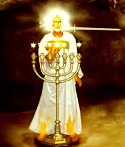
12.08.22 (Kislev 14, 5783) Chanukah isn't "Jewish Christmas," friends, though if Yeshua had been born during the time of Sukkot (i.e., Tabernacles), he would have been conceived around the time of Chanukah... At any rate, some people may question whether followers of Messiah should celebrate Chanukah or whether they should reject it because it is associated with Jewish nationalism (and later rabbinical tradition). Well, first it's important to remember that had God not given the victory to the Maccabees, then the Temple would have been razed and Jewish identity would have been lost. Worse yet, Jewish assimilation into Greek culture might have jeopardized the coming of the Messiah Himself. Moreover Chanukah is a prophetic holiday: Just as Daniel prophesied about how the Messiah Himself would be "cut off" for the transgression of God's people (Dan. 9:24-27), so he foresaw the ultimate doom of the Antichrist by the hand of the Messiah himself (Dan. 8:23-25). Indeed Yeshua taught that the "little horn" (i.e., Antiochus) prefigured the greater "Abomination that makes Desolation" to come (Matt. 24:15-22, Mark 13:14; cp. Dan. 9:27, 11:31;12:11). Yeshua was of course speaking centuries after Antiochus had set up an altar to Zeus and slaughtered a pig in the Temple, and therefore it is clear that He was prophesying of a future "abomination that makes desolation" that would occur later in Jewish history (2 Thess. 2:3-4). Further note that the though the word "Chanukah" (חֲנֻכָּה) is not mentioned in the Torah, it is mentioned in the New Testament (John 10:22-ff) where Yeshua testified that he was the promised Messiah!
 |
Secondly, as I've stated in my Christmas article (see link), it is entirely possible that Yeshua was born during the festival of Sukkot (in the middle of the seventh month), when God chose to "tabernacle" with us (Immanuel), and this implies that Yeshua would have been conceived nine months earlier, during the season of Chanukah. (Put the other way around, if Yeshua were conceived in late Kislev (Nov/Dec), he would have been born 40 weeks later during Sukkot.) Chanukah then would commemorate the miracle of the Incarnation -- when God the Son chose to divest Himself of his regal glory to begin his redemptive advent into this dark world -- an event which undoubtedly is the among the most significant in all of sacred history... In that case the message of Chanukah is that the true Light of the World has come in the Person of Yeshua the Messiah (John 8:12; 9:5).
There is also evidence of a Sukkot and Chanukah connection. According to early tradition (preserved in Megillat Antiochus, 2nd Century AD), since the Maccabees were unable to celebrate the holiday of Sukkot at its proper time in the fall, they decided that it should be observed after the Temple was restored, which they did on the 25th of the month of Kislev in the year 164 B.C. Since the festival of Sukkot lasts eight days, this was adopted for the "Winter Sukkot" of Chanukah as well.
Hebrew Lesson
John 8:12 Hebrew and Greek reading (click):
Deliver us from Offence...

[ "Be careful for what you wish: you just might get it... " ]
12.08.22 (Kislev 14, 5783) Yeshua forewarned that just before the End of Days, "many shall be offended, and shall betray one another, and shall hate one another" (Matt. 24:10). What dreadful people, you might imagine... what terrible depravity will mark that time! And yet here we are today, with so many crusading for their own personal sense of victimhood, demanding special treatment, and threatening retaliation for being treated unfairly... It must be remembered, however, that whenever we find offence in others, we are reflecting the evil within ourselves (Matt. 7:1-5). What is this evil within you ask? How about being intolerant toward those who differ from us? How about be impatient – refusing to allow others to share their perspectives? Indeed, how many of us make the demand that others be "perfect" but turn a blind eye to our own imperfections?
And what about the sin of unforgiveness? What about our attitude of suspicion -- using the "evil eye" regarding others' motives – looking for something impure – rather than extending to them the benefit of the doubt? Do you carry resentment with your heart? Do you hold on to a grudge over a real (or imagined) insult from the past? Do you harbor the desire to seek revenge? All of these evil attitudes are symptomatic of hardhearted unforgiveness, and failing to remember that all that is good in your life you owe exclusively to the mercy of God alone... When you feel offended, look within and carefully consider the assumptions at work in your thinking. Ask whether your indignation is based on the truth of God or something else. Are you demanding: "My will be done, in heaven as it is on earth?" Are you seeking to fulfill your own vision, or surrendering to the truth of Reality?
It is written, "Whoever diligently seeks good seeks favor, but evil comes to him who searches for it" (Prov. 11:27). The one who seeks good is called shocher tov (שׁחֵר טוֹב), "a seeker of good." The shocher tov uses the "good eye" (ayin ha'tovah) to see worth and potential in others. The one who searches out evil, on the other hand, is called doresh ra'ah, "a searcher of evil." The doresh ra'ah has an evil eye (ayin ha'ra) that is "stingy," critical and faultfinding. The proverb may therefore be stated this way: When you seek the good of others, you will find God's favor (ratzon), but when you search for evil in others, it becomes your own. As the Baal Shem Tov once said, "When we see faults in others, we must understand that they only reflect the evil within ourselves." Likewise King David said, וּתְפִלָּתִי עַל־חֵיקִי תָשׁוּב, "my prayer shall turn back upon my breast" (Psalm 35:13). Some prayers are conscious words spoken to God, whereas others are expressions of heart attitudes. Our proverb teaches that when we harbor indifference, ill will, or resentment toward others, we hurt ourselves; when we favor others and desire their blessing, on the other hand, we will find God's favor and blessing. Tov ayin hu yevorakh: "The one with the good eye will be blessed" (Prov. 22:9; Matt. 6:22).
שׁחר טוב יבקשׁ רצון
ודרשׁ רעה תבואנו
shoh·cheir · tohv · ye·va·keish · rah·tzohn
ve·doh·reish · rah·ah · te·voh·e'·noo

"Whoever diligently seeks good seeks favor,
but evil comes to him who searches for it." (Prov. 11:27)

Hebrew Lesson:
Proverbs 11:27 reading (click):
If you want to see blessing, then you must open your eyes. The "commandment" here is more of a mitzvah, that is, an opportunity to connect with God's heart -- to become alive and awake! The idea is that you "get to" see the miracle, not that "you must" see it. It is always a choice to believe (Col. 3:15).
Addendum:
Someone might object by saying that it is not right to overlook the evil we see in others, for example, the unjust practices of deceptive and immoral politicians, or the actions of criminals who commit acts of lawlessness. When we see evil, how do we see the good instead? Should we ignore wickedness and close our eyes to what is happening?
Well of course we should uphold law and the prosecution of criminals, and we should admonish (and sometimes even rebuke) our brothers and sisters when they sin, but in an ultimate sense, we have to see past the evil, to let it pass, in trust that God is sovereign and orders all things according to his sovereign purposes -- and that implies understanding that God suffers evil to exist in order to demonstrate his judgment, as it says: "The LORD has made all things for its purpose -- even the wicked for the day of evil" (Psalm 16:4).
The Power of Righteousness...

[ "And God said, Love your enemy, and I obeyed Him and loved myself." - Khalil Gibran ]
12.07.22 (Kislev 13, 5783) You've likely have heard the saying, "hate the sin, love the sinner," and while it is true that we should hate sin (most of all, our own sin), it is contrary to the gospel to hate the sinner. After all, Christ died for the ungodly; he came to seek and to save those who are lost (Luke 19:10). "God demonstrates his love for us, in that while we were yet sinners, Yeshua died for us - the just for the unjust - that we may reconciled with him (Rom. 5:8; 1 Pet. 3:8; 2 Cor. 5:21). Indeed Yeshua was maligned by the self-righteous of his day by being called "a friend of tax collectors and sinners" (Luke 7:34, 15:2). So it is a spiritual misstep to hate the sinner because we hate their sin.
On the other hand the sages have repeatedly taught that love cannot take root within our hearts unless there is a hatred of the enemy, that is of the devil and sin. Indeed to hate sin indicates love for the sinner because sin inevitably yields suffering and loss (Psalm 97:10). So how is it possible to love others - including ourselves - if we do not hate evil? How can we exist within this state of inner contradiction? Doesn't "holiness" mean separation from what is evil and to no longer partake of "works of darkness" that mark a godless life? (Rom. 13:12; Eph. 5:11; 1 Pet. 4:1-3). Is that not the meaning of "sanctification"?
How can we love someone who does evil? Well, it's not really that difficult. Indeed, as C.S. Lewis once observed, we love someone who does evil all the time - namely, ourselves! "You dislike what you have done, but you don't cease to love yourself. You may even think that you ought to be hanged... Love is not affectionate feeling, but a steady wish for the loved person's ultimate good as far as it can be obtained." The point Mr. Lewis makes is simple. If we are able to love ourselves despite our shortcomings and faults, surely we ought show the same compassion to others. "Forgive us our sins as we forgive others," Yeshua said, for if we do not forgive others, we ourselves remain unforgiven (Matt. 6:12-15).
It's easy enough to love goodness; it's no struggle to desire or cling to our supposed ideals. Even the pagans do as much. But Yeshua wants us to go beyond these sorts of natural affections to the realm of the divine, that is, to love our enemies and to care for them (Matt. 5:44; Luke 6:27). But how is that love possible if it is not a decision, an act of will to unconditionally give goodness to others (including ourselves)? When we pray and ask God to forgive us, our spirit cannot say "amen" and receive pardon unless we trust in God's unconditional love for us. And this is the very love he wants us to give to others...
Still, there is this tension within us - the "demand" to be perfect alongside the reality of our daily imperfections.... Since we must, however, coexist with evil, what is essential is for us is to remain righteous by holding God's goodness close to our hearts. This is the goodness of God's unconditional love, his grace that overcomes all the evil in ourselves and others.
The devil seeks to steal, kill, and destroy; he wants to steal goodness from our hearts. He tempts us to judge ourselves and others as being no good, unworthy, sinful - and therefore unlovable. To overcome this temptation is a work of faith wherein we reaccept that we are accepted by God on account of his great love. That is the meaning of the redemption, after all, that God so loves you that he bears your evil and loves you in spite of it all. Yes, the Lord will help us and transform us so that we will learn to walk in love and stop being evil, but we love God because he first loved us. Or as C.S. Lewis again said, "the Christian does not think God will love us because we are good, but that God will make us good because He loves us.
The only way we can overcome evil is by the power of faith, seeking God in all things, and understanding that his redemptive love is our salvation. Practically speaking this means learning to see the good in all things, and especially in others. We have to overlook much, to forgive much, and so on, but that is what Yeshua meant when he said "judge righteous judgment" (John 7:24). Such righteousness "sees beyond" superficial appearance to discern the underlying good. It is seeing by the truth of mercy and by the truth of hope more than "factual" seeing... The Hebrew word for "righteousness" is tzedakah (צְדָקָה), which is a kind of giving to others than goes beyond natural measures of justice, such as "eye-for-eye" retribution or even the reward for doing good.
"Judge righteous judgment." Don't be holier-than-thou, damning others for their sinfulness. If we are not willing to overlook imperfections in ourselves and others, we will be miserable, angry, and hateful people. As Friedrich Nietzsche once cryptically wrote: "Whoever fights monsters should see to it that in the process he does not become a monster, and if you gaze long enough into an abyss, the abyss will gaze back into you." Again, we overcome the power evil by means of the greater power of the good. And that's really the message of the cross, after all: God overcomes evil by means of love. Focusing on the good does not deny that sin and evil are real problems, but it ensures that our response to such is grounded in God's love that overcomes the darkness.
Hebrew Lesson
Isaiah 53:5 Hebrew reading (click):
Telling God your name...
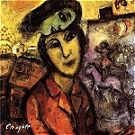
[ The following entry is related to this week's Torah reading, parashat Vayishlach... ]
12.07.22 (Kislev 13, 5783) Some people make it the business of theology to know God's Name, but God begins by first asking for our name instead. Recall that Jacob had disguised who he really was in the hope of obtaining the blessing (Gen. 27), though his duplicity forced him into an exile that lasted until he was finally willing to be honest with himself. And like Jacob, each of us must answer God's question: Mah shemekha? "What is your name?" (Gen. 32:27). When we "wrestle through" this question to face who we really are, we encounter God and find our blessing, that is, our true identity. Each of us has to go through the process of being renamed from "manipulator" (i.e., Yaakov) to "one in whom God rules" (i.e., Israel). But note the order: it is only when we "tell God our name," that is, own who we really are, that He meets with us "face to face" (Gen. 32:30). You will not be able to say, "I will not let you go unless you bless me," until you are willing tell God your name (Gen. 32:26-27).
Let me add that while "telling God your name" can be painful and even frightening, it is not the last word about who you really are. We are faced with an inner dualism as we struggle to take account of our lives. On the one hand, we need to confess the truth of our sinfulness, brokenness, and so on, while on the other we must endure ourselves and find faith that God's blessing nevertheless belongs to us, despite the mess we've made of our lives.... We have to be willing to accept God's new name for us and to believe that God will miraculously transform our inner nature for good. We are renamed from Yaakov to Israel, though we still know ourselves as both. Jacob was renamed "Israel" but afterward he walked with a limp, seeing both the new and the old natures within him. Jacob still struggled, though his struggle was now focused on walking as God's beloved child in this world: the limp was given to help him lean on the Lord for support.
Part of spiritual growth involves learning to "endure yourself." Many are able, it seems, to receive the hope that they are forgiven for their past sins, but they are subsequently scandalized by encountering their own inner struggles, and they eventually despair over their ongoing weakness... Tragically, some are even tempted to regard the warfare within the heart as a sign of being devoid of all saving grace! We must remember, however, that there is a real struggle between the desires of the flesh and the desires of the Spirit (Gal. 5:17). We must never move away from simple trust in the message of God's unconditional love demonstrated at the cross; we must never seek to legitimize our place in God's heart. When we walk by the Spirit, we are no longer under the law (Gal. 5:18), which is to say, we no longer need to justify ourselves but instead trust in God's power to transform us. Just as we are saved by the love of God, so are we changed, so do we grow.
Hebrew Lesson
Gen. 32:27-28 reading (click):
Audio Podcast:
Jacob's Surrender...
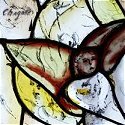
[ "The way to deeper knowledge of God is through the lonely valleys of soul poverty and abnegation of all things." - A.W. Tozer ]
12.07.22 (Kislev 13, 5783) Among other things, our Torah portion this week (Vayishlach) tells the story of how Jacob fled from the land of Haran to return home, but this forced him to directly face the pain of his past (Gen. 32:3-36:43). Jacob was especially anxious about seeing his aggrieved brother again, and therefore he prayed to God in humility for deliverance (Gen. 32:9-11). He then sent messengers ahead with gifts for Esau, and when he finally approached him, Jacob humbly bowed down "seven times" in deep respect. The sages comment that Jacob realized the only hope he had of protecting himself and his family was to diminish himself... His long-standing battle with Esau had really been an inner struggle with his own ego - his own insatiable desire to be first, to secure his father's favor, and so on. Because of this, Jacob realized he could only find peace with his brother if he first found peace within himself, and therefore he let go of his need to be first and surrendered himself. Paradoxically this teaches that we must descend in order to ascend, and the "the way up is the way down" (John 12:24). As Yeshua said, "The first shall be last and the last shall be first," and "Whoever would be first among you must be the servant of all" (Mark 9:35; 10:44). Becoming "nothing" (i.e., ayin) in this world is the condition for life in the world to come (Gal. 6:3). When you are "not there," you are no longer enslaved to the lower nature, and therefore you are set free to serve God (Col. 3:1-3).
Of course we are only enabled to extinguish the demands of the ego by trusting in the miracle of God, not by trying to efface ourselves... Genuine surrender is not another venture of the ego, after all. Life in the Spirit means trusting that God will do for you what you cannot do for yourself... We can only take hold of what God has done for us by "letting go" of our own devices (Phil. 2:13). When we really let go and trust, we will be lifted up by the "Torah of the Spirit of life" (Rom. 8:2). The way is not trying but trusting; not struggling but resting; not of clinging to life, but of letting go...
Hebrew Lesson
Jeremiah 29:11 reading (click):
Blessed Need of Heart...

[ "You have made us for yourself, and our hearts are restless until they can find rest in you." - Augustine of Hippo (Saint Augustine) ]
12.07.22 (Kislev 13, 5783) "I need Thee every hour..." More than anything else, God's love is what we desperately need, isn't it? In moments of testing when we feel wounded, alone, unworthy, afraid, and needy; and especially when we succumb to the depths of despair... God's love descends to the depths of our soul - to the very dust of death itself - to hear our cries and to profoundly touch us... Praise the Name of Love - despite everything, God saves us from ourselves, from our worst fears, and from the hell of shame and abandonment. My soul yearns for you in the night; my spirit within me earnestly seeks you (Isa. 26:9). I say to the LORD, Adonai atah: "You are my Lord; I have no good apart from you" (Psalm 16:2).
אָמַרְתְּ לַיהוָה אֲדנָי אָתָּה
טוֹבָתִי בַּל־עָלֶיךָ
ah·mart · la·doh·nai: · A·doh·nai · ah'·tah
toh·vah·tee · bal - ah·ley'·kha

"I say to the LORD, "You are my Lord;
I have no good apart from you."
(Psalm 16:2)
Hebrew Study Card

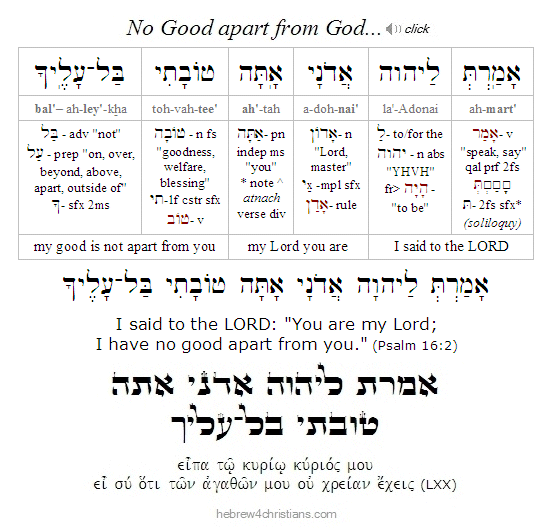
The ongoing need for the LORD is perhaps the highest estate of the human soul, even if it is nevertheless attended with heartsickness and unrelenting longing. It is a great, great gift from heaven to know God as your heart's true desire - to fully understand that your relationship with Him is the ultimate concern and treasure of your existence.
Finding Real Treasure...

[ "He is no fool who gives what he cannot keep to gain what he cannot lose." - Jim Elliot ]
12.06.22 (Kislev 12, 5783) "The kingdom of heaven is like treasure hidden in a field, which a man found and covered up. Then in his joy he goes and sells all that he has and buys that field. Again, the kingdom of heaven is like a merchant in search of fine pearls, who, on finding one pearl of great value, went and sold all that he had and bought it" (Matt. 13:44-46). Here Yeshua teaches us that a relationship with God is the true source of joy and value in life, and that all other passions and desires are like "fools gold" when compared with its overwhelming worth... In this connection Soren Kierkegaard wrote: "If anyone thinks he is a Christian and yet is indifferent toward being that, then he really is not one at all. Indeed, what would we think of a person who gave assurances that he was in love and also that it was a matter of indifference to him?" (Works of Love).
The Shema, the "first and greatest commandment," is to love God "bekhol levavkha" (בְּכָל־לְבָבְךָ) with all our hearts, and yet how is that love possible apart from the revelation of the passion of love itself? "We love because God first loves us" (1 John 4:19), and therefore teshuvah ("repentance") is a matter of being in love, celebrating God's heart for us, awakening to its wonder, and being thrilled and overjoyed at its reality. Is this not the essence of the matter? "Shimon ben Yonah, atah ohev oti?" – "Simon son of Jonah, do you love me?" (John 21:17). But how can we love the Lord apart from trusting his heart for us? "Come unto Me," Yeshua says, "live in Me and I will live in you." O Lord God our Savior, deliver us from apathy and indifference! Soften our hearts and awaken us to our great desire and need for you! Hashivenu, Adonai: turn us, O LORD, and we shall be turned; heal us, and we shall be healed... Help us to know the breadth and length and height and depth of your great love.
So for what do you hope, friend? What are your dreams? Your deepest desires? Where is your treasure? Yeshua cautioned those who sought their happiness in this world: "Do not store up for yourselves treasures upon earth... be rich toward God" (Matt. 6:19-20; Luke 12:21). When we treasure God, our focus is directed toward the eternal reality, and our interest in this world fades. We trust God to meet our daily needs and surrender our future to His care. The only worry we face concerns our own deficiencies in our obligations to the Savior. Our duty is to love God in the truth - bekhol levavkha - with all our heart, having no thought of ourselves. Indeed, self-denial means to quit thinking about yourself (from α-, "not," + ῥέω, "to speak") by accepting what God has done for you. "It is not my business to think about myself. My business is to think about God. It is for God to think about me" (Simone Weil).
Hebrew Lesson
Jer. 24:7a reading (click):
The Way of your Life...
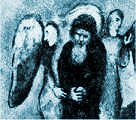
[ "If you don't know where you are going, any road will get you there." - Lewis Carroll ]
12.06.22 (Kislev 12, 5783) The Hebrew word derekh (דֶּרֶךְ), often translated as "way," can refer to a physical road or pathway, but metaphorically it often refers to the journey, manner, or course of one's life.
Everyone who is alive and conscious is "on the road," and every day presents us with choices about how we will walk down that road. If you are reading these words, you are presently on the way, and there is no escape from this journey you are on...
Walking a road implies decisions. You simply cannot walk anywhere without having a "where" or destination in mind (even the decision to be aimless is itself a decision). When we make decisions, consciously or not we are choosing what we believe will bring us nearer the goal or end or our journey.
Along the way we will always encounter "forks in the road" – junctions where we must decide whether to turn to the left or the right, or to go backward in our journey. Such decisions are unavoidable, though many will choose to become victims of their own unreflective consciousness by choosing the path of "least resistance." People choose this path because they do not know "the end thereof" they walk…
So there is a way, or road, that you are walking, comprised of a (finite) series of choices you have made, are making, and will make, which are leading you somewhere. You cannot get off this road, and no one can walk it for you.
Since this road represents the way of your life, you are ultimately responsible for how you choose to walk it. You are not free to choose the "what" of your journey (which is a brute fact), but you are free to choose its "how." The LORD offers wisdom to all those who wish to make their days count for eternity...
Hebrew Lesson
Psalm 25:4 Hebrew reading (click):
Note: For more on this topic see: "Derekh HaYashar: Finding the Straight Way."
Honesty and Deliverance...

[ "If we do not die to ourselves, we cannot live to God, and he that does not live to God, is dead."- George MacDonald ]
12.05.22 (Kislev 11, 5783) "Those who are well have no need of a physician, but those who are sick. I have not come to call the righteous but sinners to repentance" (Luke 5:31-32). Every one of us has a "dark side" or a "shadow self" that has destructive and selfish urges. We try to conceal this truth from others (and even ourselves) but such denial doesn't change the reality within our hearts (Matt. 5:19; Jer. 17:9; Eccl. 9:3). Indeed, when we pretend to be something we are not we are more likely to be overwhelmed by dark forces hidden within us. Paradoxically we most vulnerable when we think we are well, that is, when we deny our sickness our heart and minimize our need for deliverance.
The way of healing is to "own" or confess the truth of our inner condition and to acknowledge the dark passions that sometimes overmaster our best intentions. We must give ourselves permission to allow the hurt, angry, and fearful voices to be heard and sanctioned within us - and then to bring these dark and hidden aspects of our selves before God for healing. The failure to do so will split the soul and cause the hidden aspects of the self to seek "revenge" upon the "parent self" that censors their message. The struggle within our hearts is real and we should attend to it seriously. Denying evil by pretending that we are okay, or by blaming others, blinds us to the truth of our ongoing need for deliverance. May God help each of us to be honest with ourselves and to confess our great need before our Heavenly Father.
Why do we have such difficulty being genuinely honest with ourselves? Despite the fact that we may profess that we are "sinners saved by grace," we often make excuses for our failures, rationalizing that we are not "that bad," and therefore we postpone genuine teshuvah (repentance) and trifle with our spiritual lives. We do this because we feel an almost irresistible desire or "need" to justify ourselves, to "save face" by pretending that we are not "incurably sick," or by attempting to find something about us that makes feel valuable and worthy. As H.L. Mencken once wittingly noted, "the 'truth' that survives is simply the lie that is pleasantest to believe."
The LORD wants us to be truthful in the "inward being" (Psalm 51:6), though that truth will cost us something, namely whatever worldly gains we might find through self-deception... Opening our hearts to divine examination eventually means colliding with the world of men and their conspiracies, since the godly man no longer abides their presence (Psalm 1:1-2). The Apostle Paul said there was an exclusive disjunction between seeking the approval of men and of the approval of God: "Do I seek to please men? for if I yet pleased men, I should not be the servant of the Messiah (Gal. 1:10). Likewise we are told not to deceive ourselves (lit., "reason around" the truth, from παραλογίζομαι, from παρά, "around, beside" and λογίζομαι, "to reason") by merely hearing the truth of Scripture and not living it (James 1:22). God is not interested in "lip service" any more than he desires heartless sacrifice (Isa. 29:13; Hos. 6:6; Matt. 15:9). "Let your love be genuine (ἀνυπόκριτος, without a "mask" put on), abhor what is evil; cling to what is good (Rom. 12:9). God abhors those who pretend to know Him but who are really spiritual impostors (Matt. 7:21-23; 25:11-12; Luke 6:46).
Tragically (and paradoxically) many people can talk themselves into believing something without really believing it, and that is perhaps the most dangerous thing of all (Matt. 7:22-23). On the other hand, some people can talk themselves into believing (or accepting) something that they know is untrue (or morally wrong), and that self-deception leads to inner fragmentation, chaos, and dissolution of character. A "double-minded man is unstable in all his ways" (James 1:8). As I have said before, the word translated "double-minded" is dipsuchos (δίψυχος), a word formed from δίς, "twice" and ψυχή, "soul." The word describes the spiritual condition of having "two souls" that both want different things at once -- a state of inner contradiction and ambivalence.
Hebrew Lesson
Psalm 51:6 reading (click):
Thank the LORD our God that there is real healing for our inner dividedness, ambivalence, and double-mindedness, but that healing demands rigorous honesty. As Kierkegaard rightly observed: "No person is saved except by grace; but there is one sin that makes grace impossible, and that is dishonesty; and there is one thing God must forever and unconditionally require, and that is honesty." Therefore we are instructed to confess our faults one to another, and pray for one another, that we may be healed (James 5:16). May the LORD our God help each of us to be wholehearted in our devotion to Him.
Finally, friend, a closing thought. Do not despair by thinking that you will never change. Simply enter into the presence of God in Yeshua. That is what "self-denial" means. Turn to God and know his heart. When you do, you receive a heart to know him in return... Believe to see the goodness of the LORD in your midst. Amen.
Seeing with Wonder...
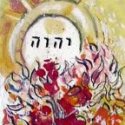
[ "To become sober is: to come to oneself in self-knowledge and before God as nothing before him, yet infinitely, unconditionally engaged." - Soren Kierkegaard ]
12.05.22 (Kislev 11, 5783) The commandment not to take the Name of the LORD "in vain" (Exod. 20:7) implies that we must affirm the sanctity, meaning, significance, and worth of life itself. We must never live as though God does not exist, or, to state this positively, we must "set the LORD" always before us (Psalm 16:8). It is therefore forbidden to ignore the miracle of existence, to scoff at the value of life, or to debase ourselves by refusing to receive the truth. We are to take every thought "captive" to the reality of the Messiah (2 Cor. 10:5). Everything belongs to God, and every moment we have is beholden to Him...
שִׁוִּיתִי יְהוָה לְנֶגְדִּי תָמִיד
כִּי מִימִינִי בַּל־אֶמּוֹט
shee·vee'·tee · Adonai · le·neg·dee · tah·meed
kee · mee·mee·nee · bahl-e·moht

"I have set the LORD always before me;
because he is at my right hand, I shall not be shaken."
(Psalm 16:8)

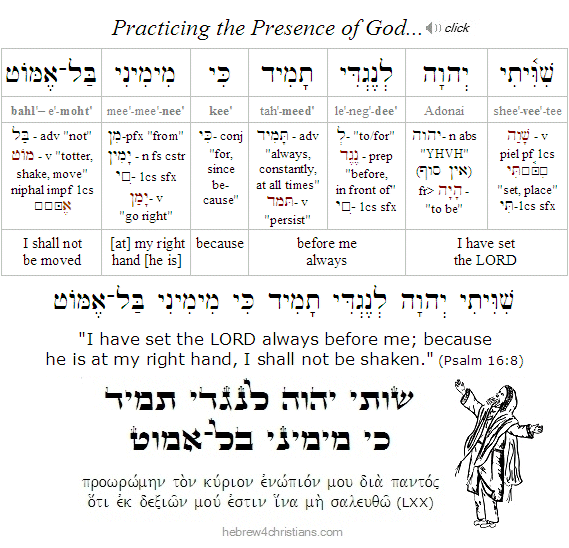 |
Finding deliverance from profane thinking requires concentrated focus, or "kavanah" (כַּוָנָּה). As it is written: "We destroy arguments and every lofty opinion raised against the knowledge of God, and take every thought captive to obey Messiah" (2 Cor. 5:10). We are instructed to "bring down reasonings" (λογισμοὺς καθαιροῦντες) and every high thing that is lifted up against the knowledge of God (κατὰ τῆς γνώσεως τοῦ θεου) and to bring every thought "as a captive" to the obedience (ὑπακοὴν, from ὑπό: by, under, + ἀκούω: hear, obey) of Messiah. We can do this negatively by fighting against evil thoughts and censoring the inner evil of our hearts, or we can do this positively by being "captivated" by the words and love of Yeshua, and often we have to do both! This is the deeper meaning of "profanity" - to deny reality, to live in willful ignorance, and to miss the wonder of God's presence. If we sanctify God in our hearts, we will be far less likely to use God's name in vain, of course.
God invites you to come to Him for relationship... Since the LORD is a Person, He wants to know you as a person. He is not interested in formulaic prayers, religious rituals, or your membership at a particular religious organization. God wants to know your inmost thoughts and heart. Drawing near to God is God's way of drawing near to you... In other words, as you draw near to God, He will draw near and touch you (James 4:8; Psalm 145:18; Isa. 55:6).
Hebrew Lesson
Exodus 20:7a Hebrew reading (click):
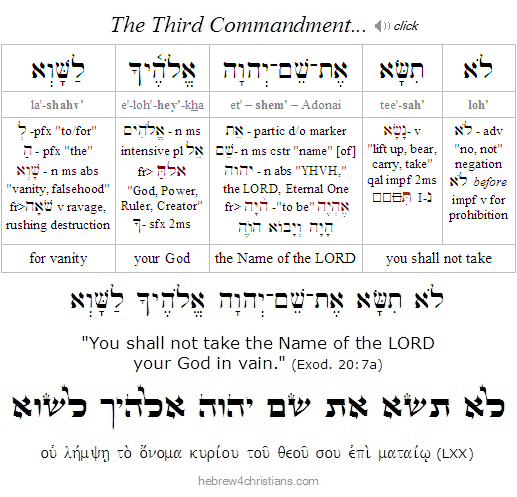 |
Wresting the Blessing...

[ "And now brothers, I will ask you a terrible question, and God knows I ask it also of myself. Is the truth beyond all truths, beyond the stars, just this: that to live without him is the real death, that to die with him the only life?" - Frederick Buechner ]
12.05.22 (Kislev 11, 5783) In our Torah portion for this week (i.e., Vayishlach), we read how Jacob wrestled with a mysterious "Man" until the break of dawn, but refused to let go until he had secured God's blessing (Gen. 32:24-26). This climactic moment marked a "rebirth" experience for Jacob as signified by his new name "Israel" (יִשְׂרָאֵל), meaning "one who has striven (שָׂרָה) with God (אֱלהִים) and prevailed" (Gen. 32:28). It is fascinating to notice that Jacob was not renamed "God-fearer," or "God-lover," or even "Man of faith," but rather "God-wrestler" – one who struggles with God until the blessing comes... As Yeshua said, "Blessed are those who hunger and thirst for righteousness" – that is, for those who struggle and search for truth – "for they shall be filled" (Matt. 5:6). The blessing comes with a wound, however: The limp that Jacob acquired constantly reminded him of his ongoing need for God's help as he walked through this life. "The one who falls on this Stone will be broken to pieces; but when it falls on anyone, it will crush him" (Matt. 21:44).
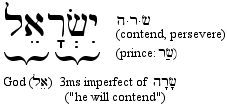 |
So how are you struggling? And how does your need feed your hunger for God? The characteristically Jewish approach to life is to struggle, to fight, and to ask hard questions until we find out who we really are and what we call ourselves... We can change what has happened in our past by changing what is happening in our present: "For thus says the LORD to the house of Israel: dirshuni vichyu (דִּרְשׁוּנִי וִחְיוּ) - "Seek me and live" (Amos 5:4).
Hebrew Lesson:
Amos 5:4 reading (click):
|




























